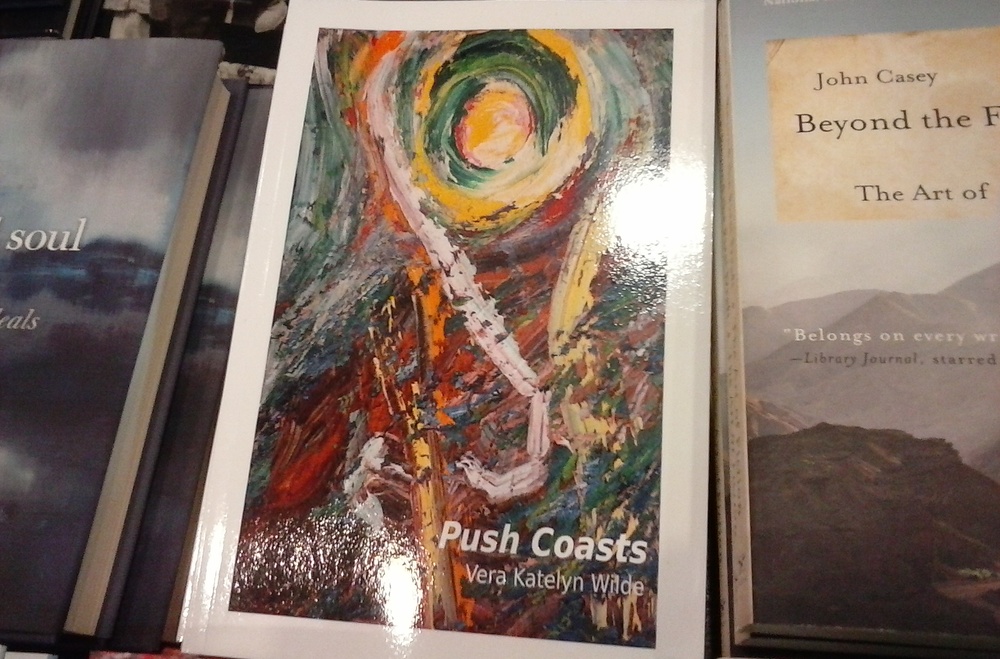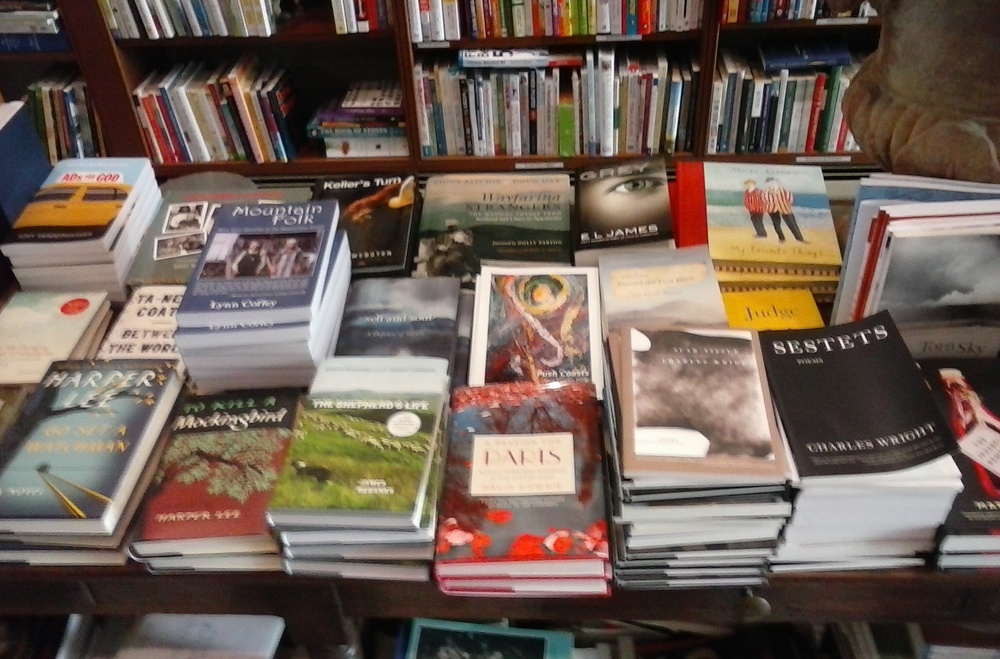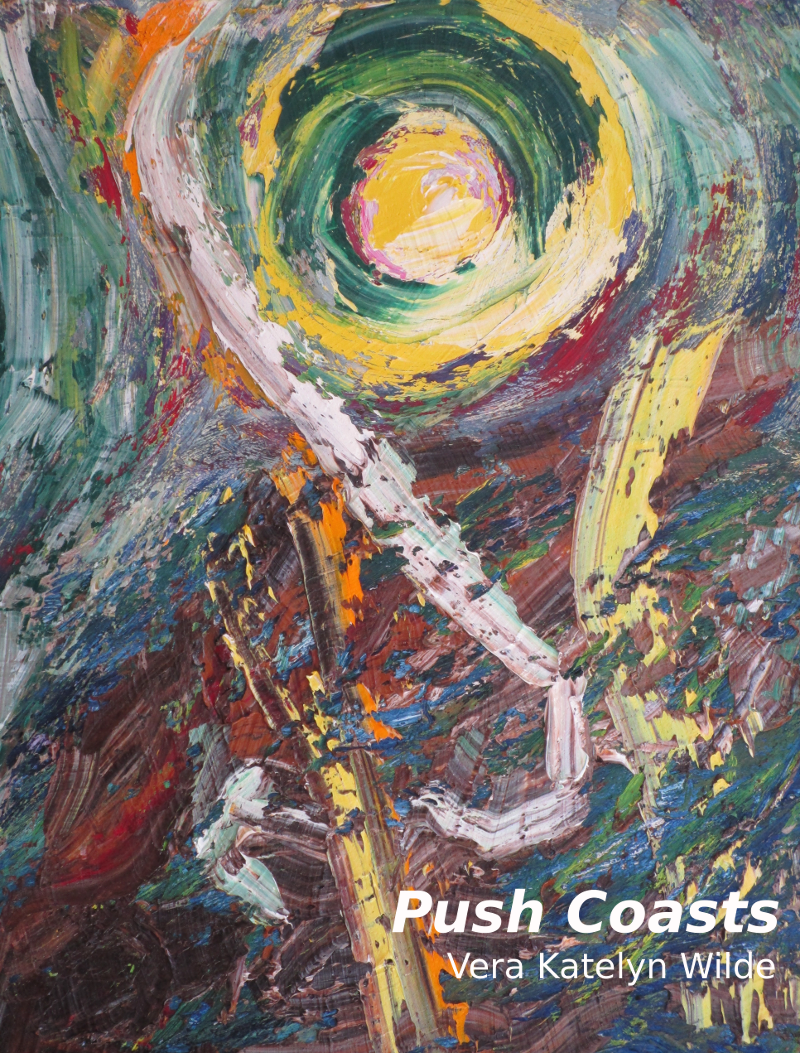“Fidelity to the nature to which we belong, as parts however weak, demands that we cherish our desires and ideals till we have converted them into intelligence, revised them in terms of the ways and means which nature makes possible. When we have used our thought to its utmost and have thrown into the moving unbalanced balance of things our puny strength, we know that though the universe slay us still we may trust, for our lot is one with whatever is good in existence. We know that such thought and effort is one condition of the coming into existence of the better. As far as we are concerned it is the only condition, for it alone is in our power. To ask more than this is childish.”—John Dewey (h/t Melvin Rogers)
Crypto Reloaded Lightning Talk
Now in artist newsletter form!
Poem published at Science Creative Quarterly
A tribute to Sigmund Freud (and Edna St. Vincent Millay) published at The Science Creative Quarterly this week by friend of the blog Kit Wilder.
Crypto Reloaded: Rebranding the Dark Web, Spreading Art and Information (Security) Around the World
Part of my amazing time at Chaos Communication Camp 2015 this past week was giving my first Lightning Talk. It was actually my first conference-type talk. So naturally, I did it wearing a ballerina-princess outfit with butterfly wings. Here’s the video:
And here’s the working paper drafty-draft.
Please get in touch in the comments, on social media, or via email if you want to talk about these ideas! It would be great to get your ideas on how to better make and spread Wtf Butterfly Kits, get help making a website telling makers how to make them and giving patrons a way to fund them, and brainstorm about how to make this a self-monetizing project to help make it sustainable. I have a few ideas about all those things—like how I can just make the apocryphal album while writing a constructive critique of the surveillance state, and then distribute Wtf Butterfly Kits globally while touring. But perhaps for now I’ll just write a bit about the basic idea from the talk.
Today we struggle with one central paradox in politics, and that is the paradox of discretionary power in the age of big government. In the realm of the security state, that means mass surveillance, mass incarceration, and global Davos political culture. The paradox is that on one hand, discretion can be dangerous in the context of centralized power—but at the same time, trust in the discretionary power of our fellow hacktivists underpins the workings decentralized spaces and action that can help empower otherwise disempowered people.
I propose two interventions to resolve this paradox in the realm of information security. The first intervention is a rebranding of the subset of those decentralized spaces and action structures formerly known as the dark-Web—now the EDTR (expressing, dissenting, teaching, resisting) web—to make it more sustainable, safe, and simple to talk about. The second intervention is a reproducible art and info kit—Wtf Butterfly Kits—designed to produce trust spirals with art supplies and positive psychology exercises, enhance information security by propagating crypto, and transmit free books around the world.
I’m only too happy to expound on every point in this summary six ways from Sunday. But you get the idea. So leave a comment on the blog or other social media, or email me (wildethinks at gmail dot com) if you want to talk. I’m especially excited to get your ideas about what Wtf Butterfly Kits should look like, how to spread them globally, and how to make this project self-monetizing. It would also be great to get help with the website telling makers how to make them and giving patrons a way to fund them. Plus I want to know how to present better next time, since this was my first conference-like talk…
Poetry Book at New Dominion Bookstore in Cville, Virginia
A Brief Dialogue with Keith Downy
And now, full of gratitude and coffee, covered in dirt and happiness, still at camp and not ready to leave—a brief dialogue with Keith Downy:
VW: You know all about encryption tools like VPNs and Tor, but didn’t use them when engaging in a direct denial of service (DDOS) attack on PayPal in response to their blockade of WikiLeaks as a journalistic organization engaging in free speech. Why?
KD: It was an act of civil disobedience and I saw no need in hiding.
VW: You were convicted of one misdemeanor count of damaging a protected computer without authorization, and sentenced to the lowest possible crime under the Computer Fraud & Abuse Act (CAA). What can people do to support you now?
KD: They can help by donating to our restitution fundraiser.
VW: There were efforts to legalize DDOS as a form of free speech and peaceful civil disobedience following your prosecution. What reform would you like to see in the legal regime surrounding DDOS and why?
KD: I wouldn’t say DDOS in general should be legalized. A good example being people that use it for extortion or other form of personal gain. However, I think it should be legalized as protected as political speech when used by people to address their grievances.
Ten Things I’m Grateful for—Chaos Communication Camp Edition
Continuing the gratitude-listing tradition, here are ten things I’m grateful for after an amazing week-ish banging around the woods outside Berlin, at Chaos Communication Camp 2015 near Zehdenick, Germany.
1. Finding my Tribe, being welcomed by my people. Remember that high school robotics team? And the dissertation research with all the techie things that no one in political science knew what I was doing with, and the releasing of files to the excellent reporter? And the manic living room dancing? Yeah. Turns out I’m a hacker.
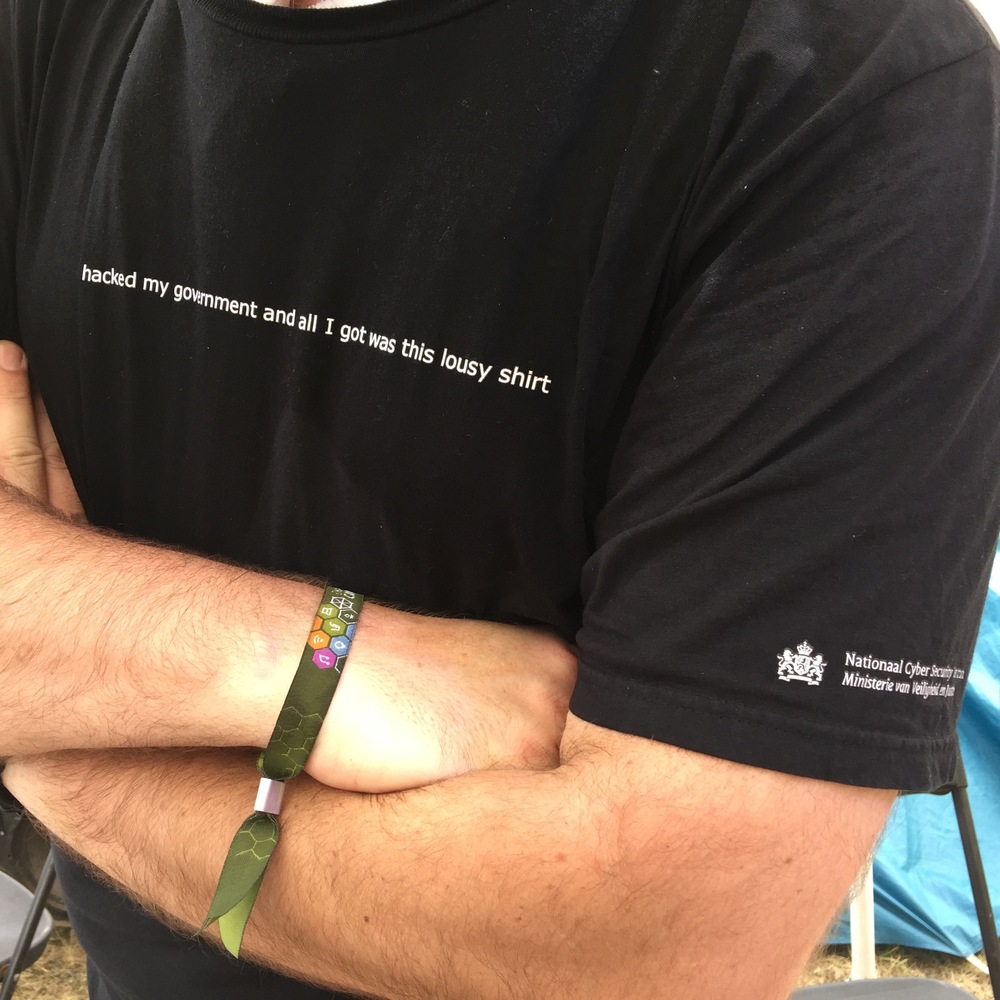
2. Sleeping outside under the stars.
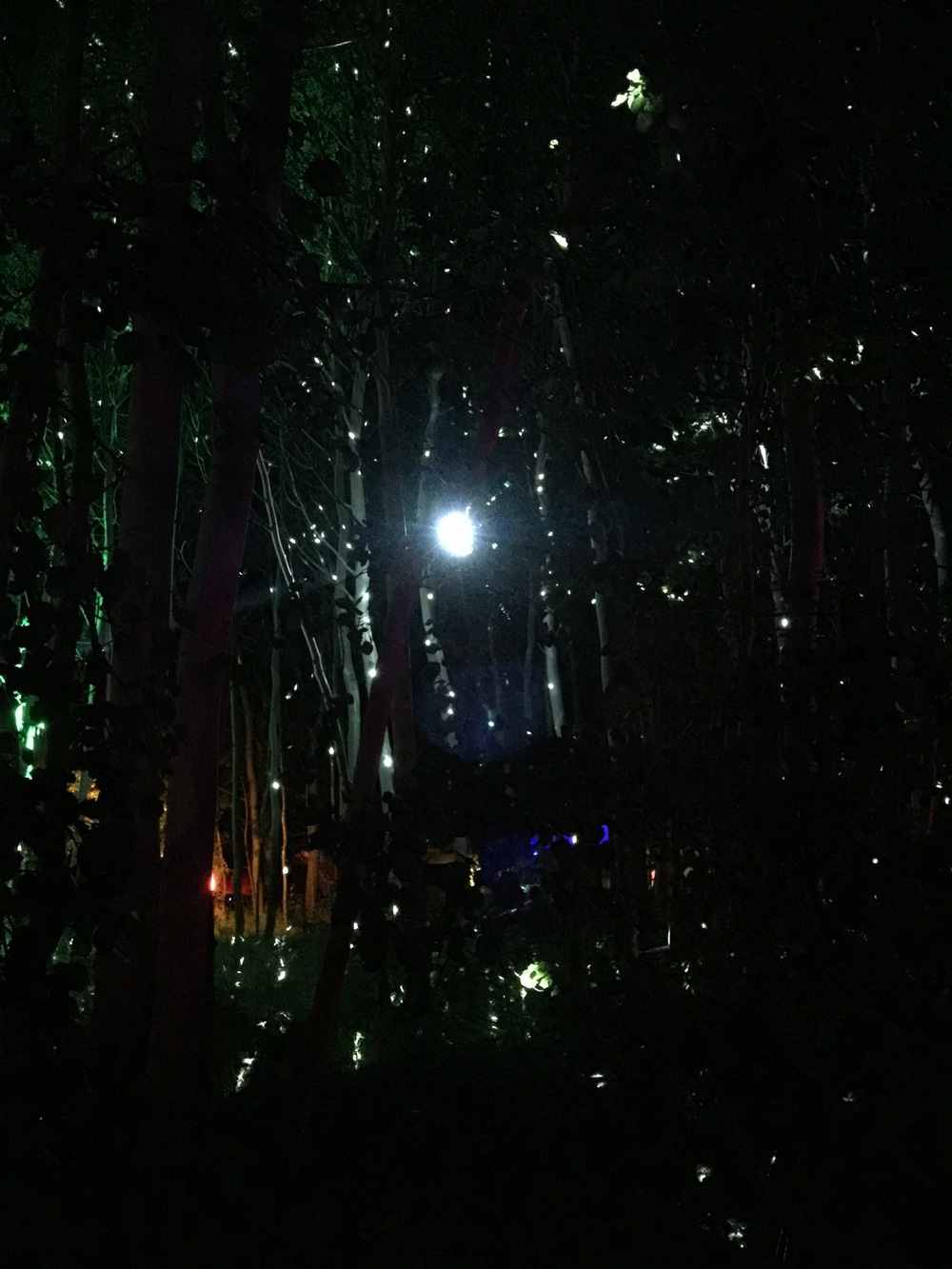
3. Sky-diving with Sarah Harrison & friends.
4. Lasercut-fitted butterfly wings and matching ballerina-fairy-princess ensemble. Directions for making your own wings, video of Wtf Butterfly lightning talk coming soon.
5. Lightning talk—scarier than sky-diving, but done! Good ideas and people. Good practice for the next, hopefully 45-minute version to a bigger audience. And for a prospective 20 minute presentation of my research on bias in polygraphy (lie detection) at Hacktivity in Budapest in October. And for feeling good on camera even when I’ve lost my foundation and been running around in the woods for days with my underwear inside-out and my birth certificate in my purse.
6. Plum wine.
7. Writing my first (slow down, girlfriend—latest prospective) Guardian essay under my new(ish) name in under an hour in a tent with some of the world’s foremost information security and investigative journalism experts.
8. Lake with laughing children and beautiful families, showing how normal and simple and wonderful life can be, even when one takes risks working on serious problems.
9. Making and drinking tea with new friends—so many new friends—and old internet acquaintances. Finally meeting two particularly heroic and deeply admired female writers on contemporary surveillance state issues, Asher Wolf and Biella Coleman IRL. Blue-haired people.
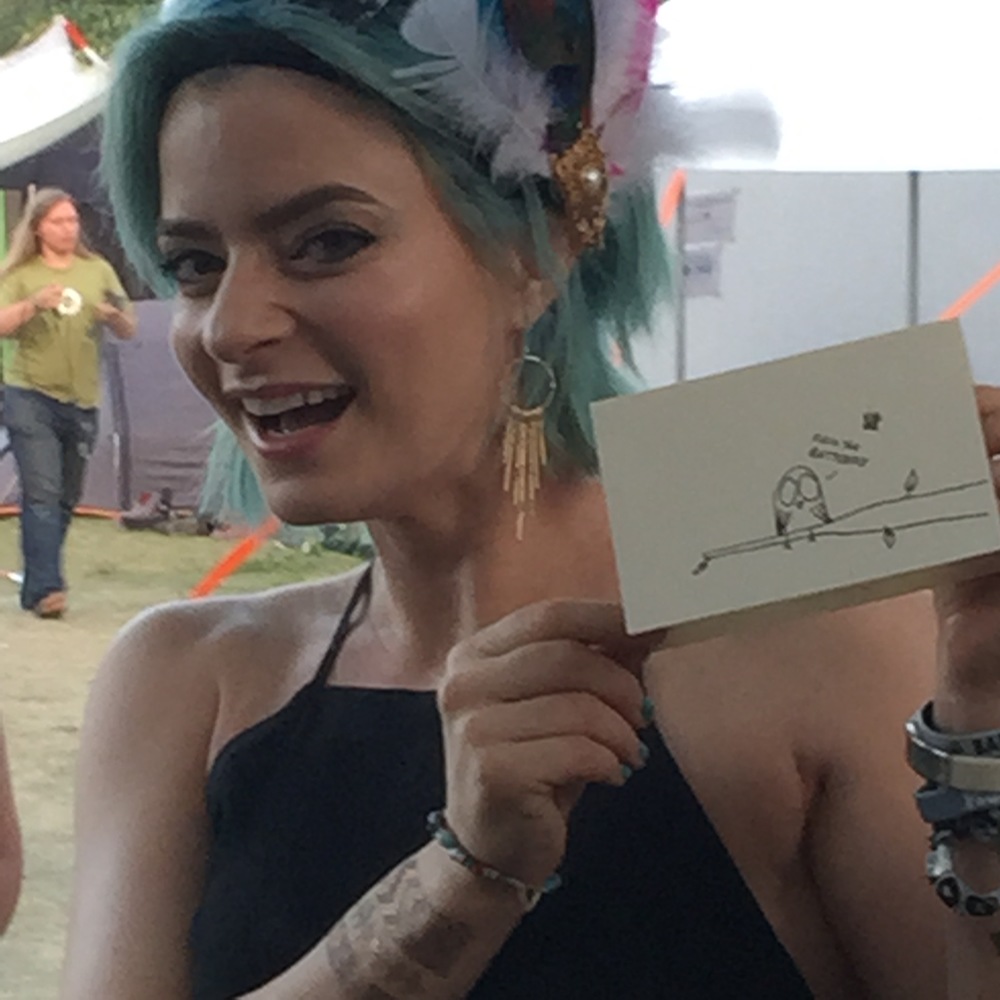
10. Skinny-dipping and civil disobedience with Keith Downy of the PayPal Fourteen.
Lightning Talks @ CCC ’15, Near Zehdenick
In/near Berlin? Come to these awesome lightning talks tomorrow, the last day of Chaos Communication Camp ’15!
On gender equity, inclusivity in hacking.
On Internet freedom, distributing art and info (sec) globally.
Thanks to everyone who made these exciting happenings possible! Looking forward to productive dialogue on these and other favorite topics, hoping to not break my butterfly wings hugging people (again) before camp ends…
Ten Things I’m Grateful for—Lisbon Edition
Continuing the gratitude-listing tradition, here’s a quick (challenge yourself, Vera! WRITE A SHORT THING!) post on ten things I’m grateful for after an unbelievable week in and around Lisboa, Portugal.
1. Publishing my first book in online illustrated, free ebook, and physical form.
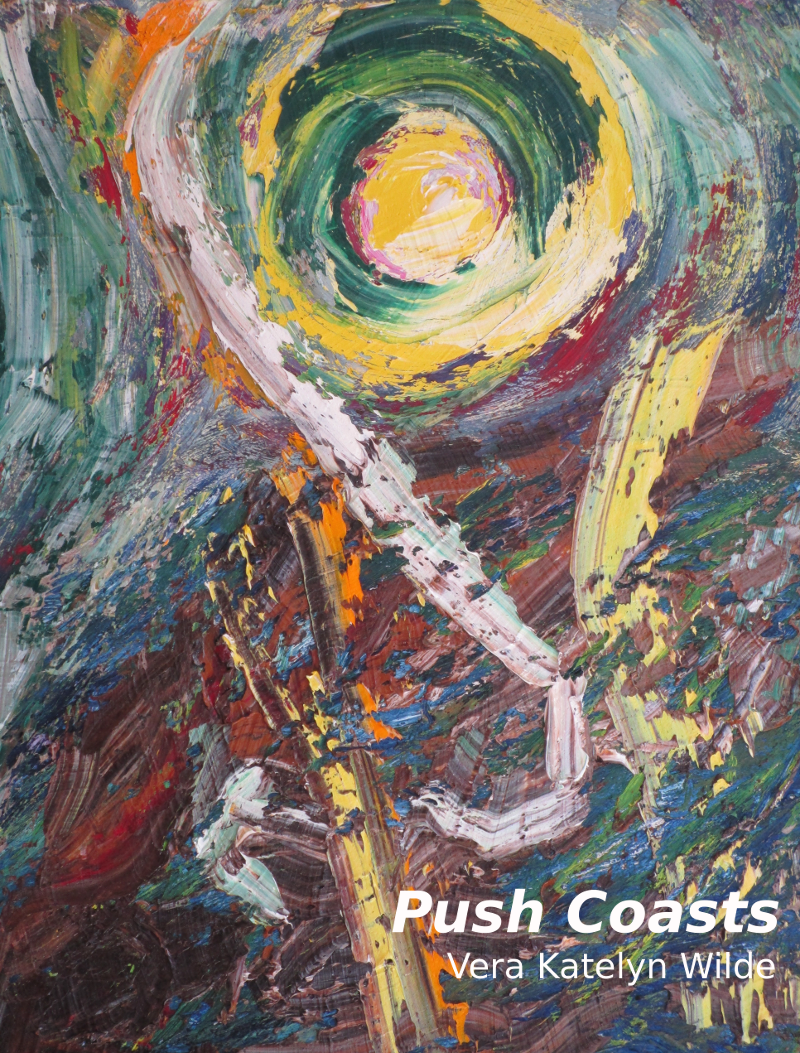
2. Thinking about preparing for my lightning talk on Crypto and the Dark Web at Chaos Computing Camp 2015 outside Berlin this week.
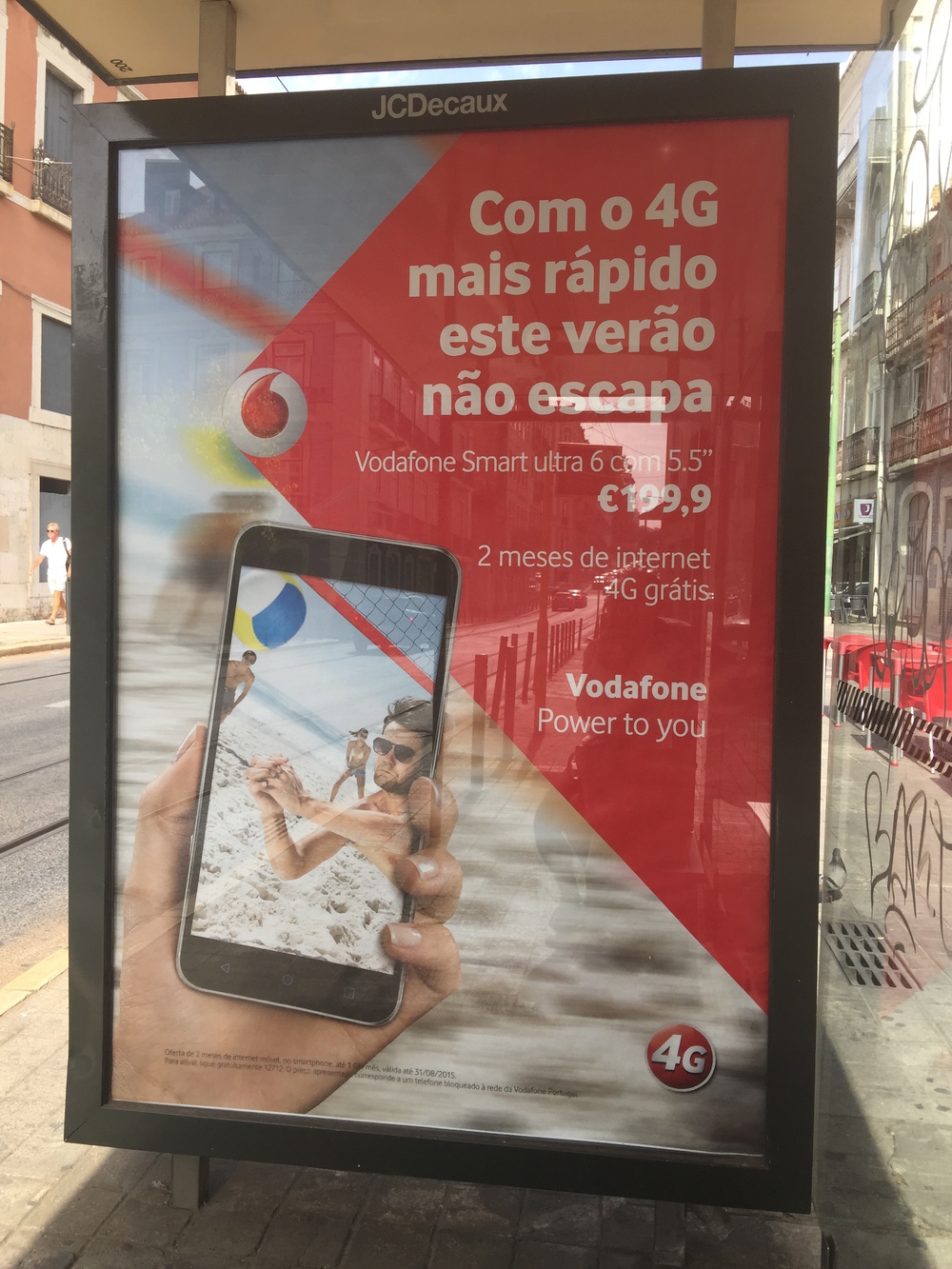
3. Pierre Lindenbaum’s lovely drawing of one of Dennis van Zuijlekom’s amazing photo-portraits from Hack42.
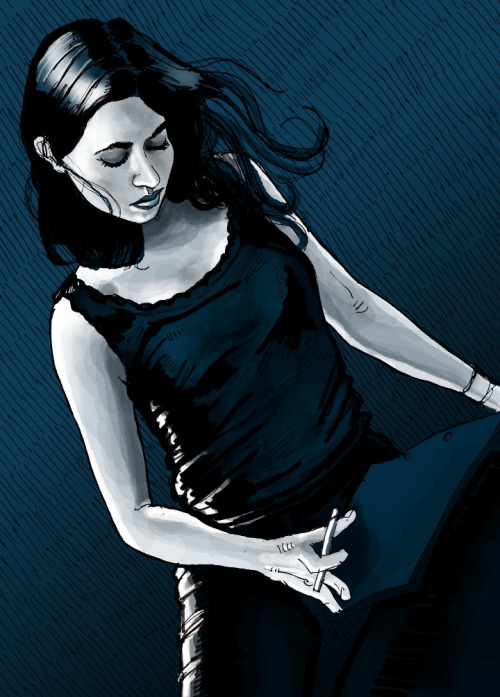
4. Camping right by the ocean with a dear friend at the Westernmost edge of the European continent.
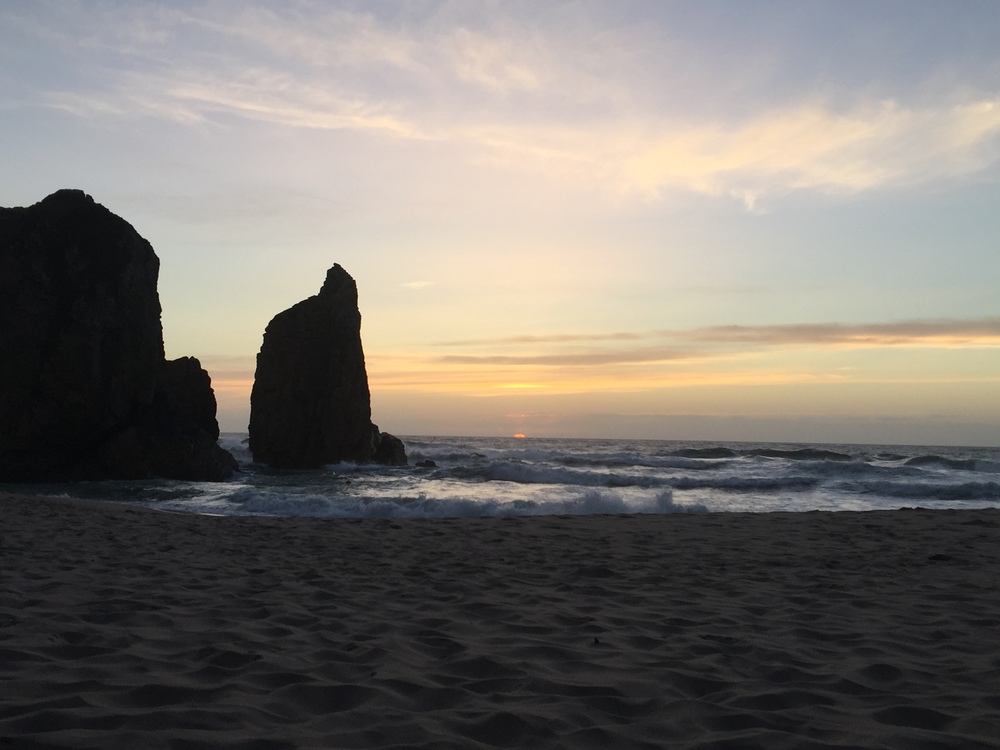
5. Rodrigo, Tom Drake, and what they told me about time. It makes me angry and ecstatic at the same time—Desassossego, as the Portuguese poet who lived across from Rodrigo’s eponymous bookstore would have it. Quiet on the outside while a revolution rages within. How you don’t give up rule of law to get it—just like you don’t trade your time for living now in the hope of having a life another day. Because time and people are irreplaceable. And holding sacred life, liberty, and the pursuit of happiness is what we do as free people. How we do it is the art of expressing and enacting our free will. It’s the greatest art of all. Someone should really write a book about that.
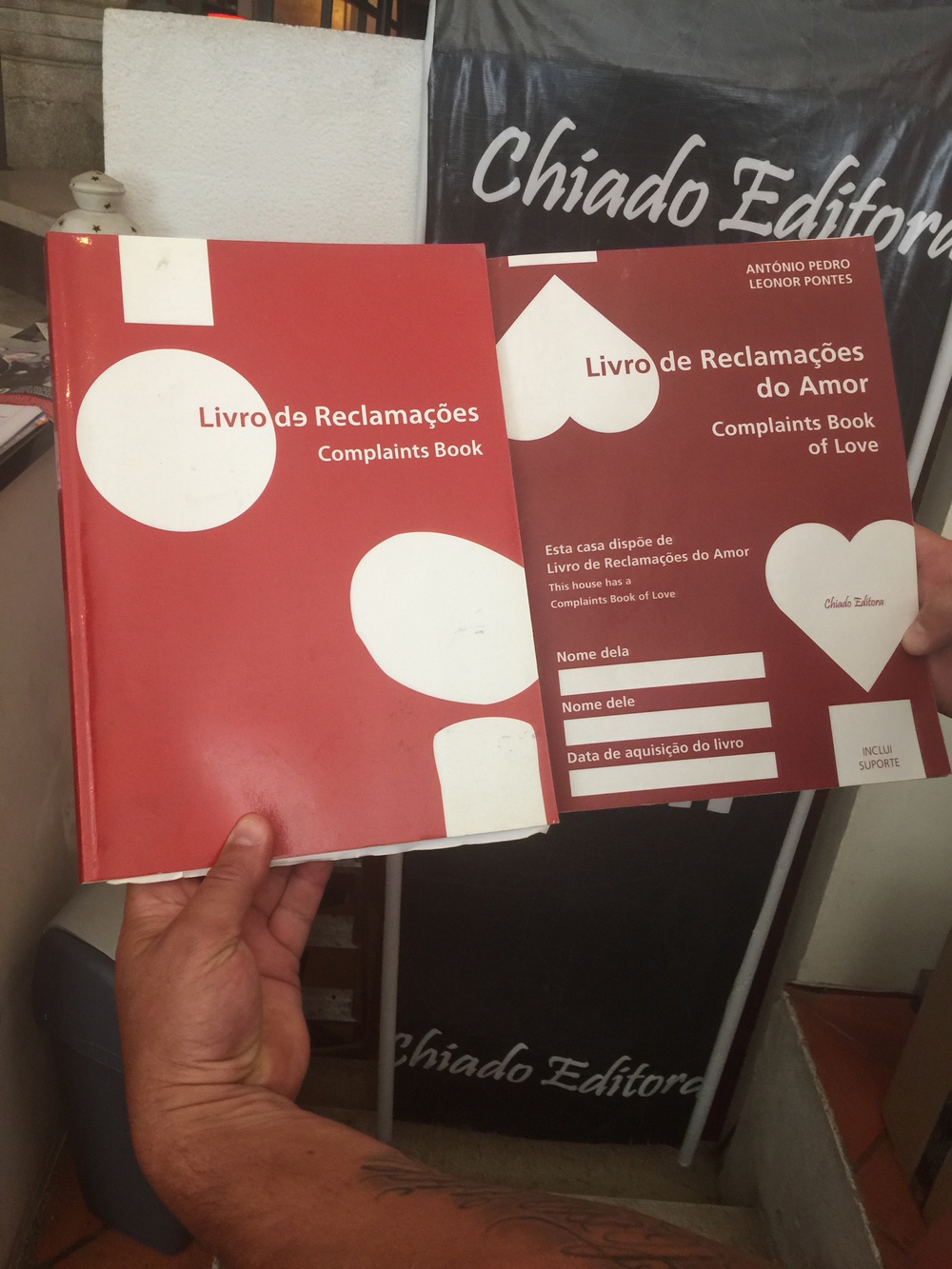
6. Back up. Deeply meaningful connection. I’m grateful for stumbling across Rodrigo’s gorgeous book store/wine bar/art gallery, Desassossego, where I wandered in and learned from the best about Portuguese poetry, applying J.S. Mill’s insights about unpopular or wrong minority opinions to theology (solving the problem of evil coexisting with an omnipotent God), delicious Portuguese beet juice, how smart, kind men with motorcycles and tattoos make time disappear, and the beautiful gift of Antologia de Poesia Contemporanea Vol. IV that immediately yielded this random but hilariously appropriate poem—
“plano de contingéncia”
Heleno Pinhal
acordei sem desejo
virei-me e adormeci
no cérebro um cortejo
como eu nunca previ.
transform-me em relogio
rodo-o ao contrario
sono vira refugio
e altera-me o horario.
almofadado, terno
sem poder descansar
ha poemas dum inferno
a atacar pelo ar.
7. Forthcoming poem in The Science Creative Quarterly and interview in Redbird Review that were fun.
8. Distinct feeling that art explosions are imminent. Must paint, still figuring out how to explode oil paintings while traveling since this generates small problems of storage and such. But I’m grateful, too, for S in Brighton letting the paintings I made on her porch brighten her living room since I don’t know what else to do with them and she was so kind to host me. And I’m grateful that I will figure out how and where to make myself a little nest somewhere with a month’s stability, where I can explode paintings and songs. That might come next after drafting next book, which would be fine and might (someday?) generate income? Right now I am just doing what I have to do, which is make art and travel, and trusting that part of this life experiment is figuring out how that works.
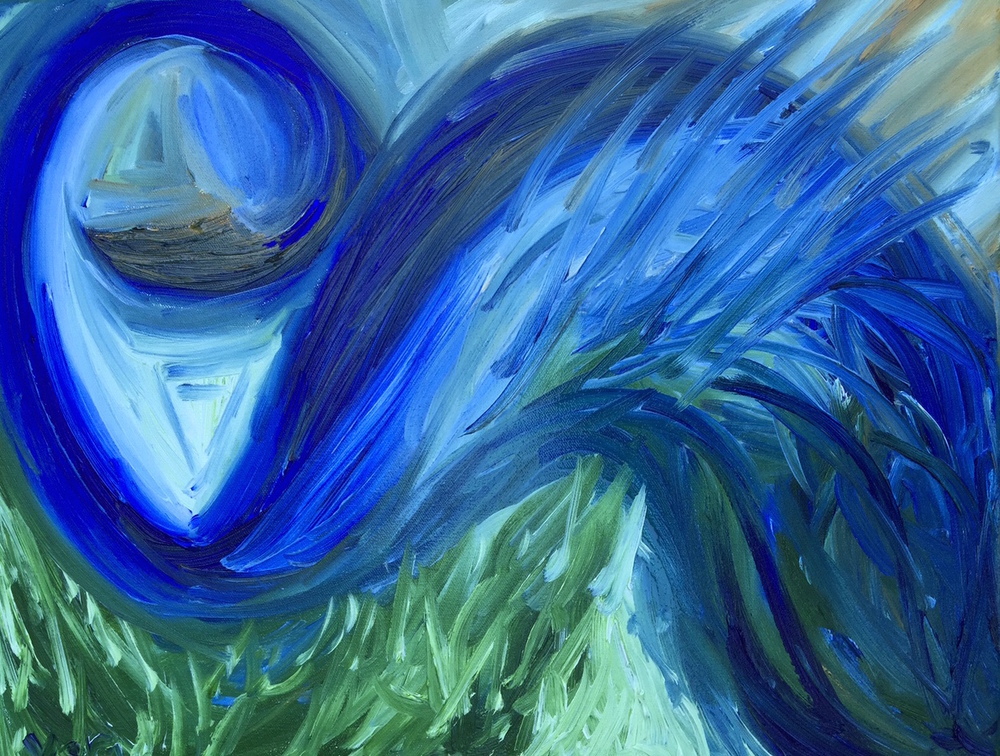
9. The feeling also that I am in the process of finding my voice. I still wish I had it better clarified and made more noise (music, comedy—podcasting, stand-up, improv). But clearly I’m a painter and a writer first. And I’m talking with lots of interesting, nice people. So if my art is going to involve making more noise, this is how I’m going to get there. I’m showing up to it. And the more I show up, the more I feel and know that the world needs what I have to give it, and a lot of people care about me. Weird as I am.
10. Freaky good intuition. Trust in the universe. Amazing music for free, in playlists tailored precisely to what I like and might like to learn that I like, on Youtube throughout Western Europe. (That’s beyond an old utopian fantasy—maybe it was Fourier? Someone thought it would be heaven to have music pumped in wherever you went. We have that now, and so much more.) Tasty fish. The ridiculously beautiful French family who made a little bit of world peace by the water where I like to write, watching their little girl in a sparkly butterfly dress feed her pastry to pigeons.
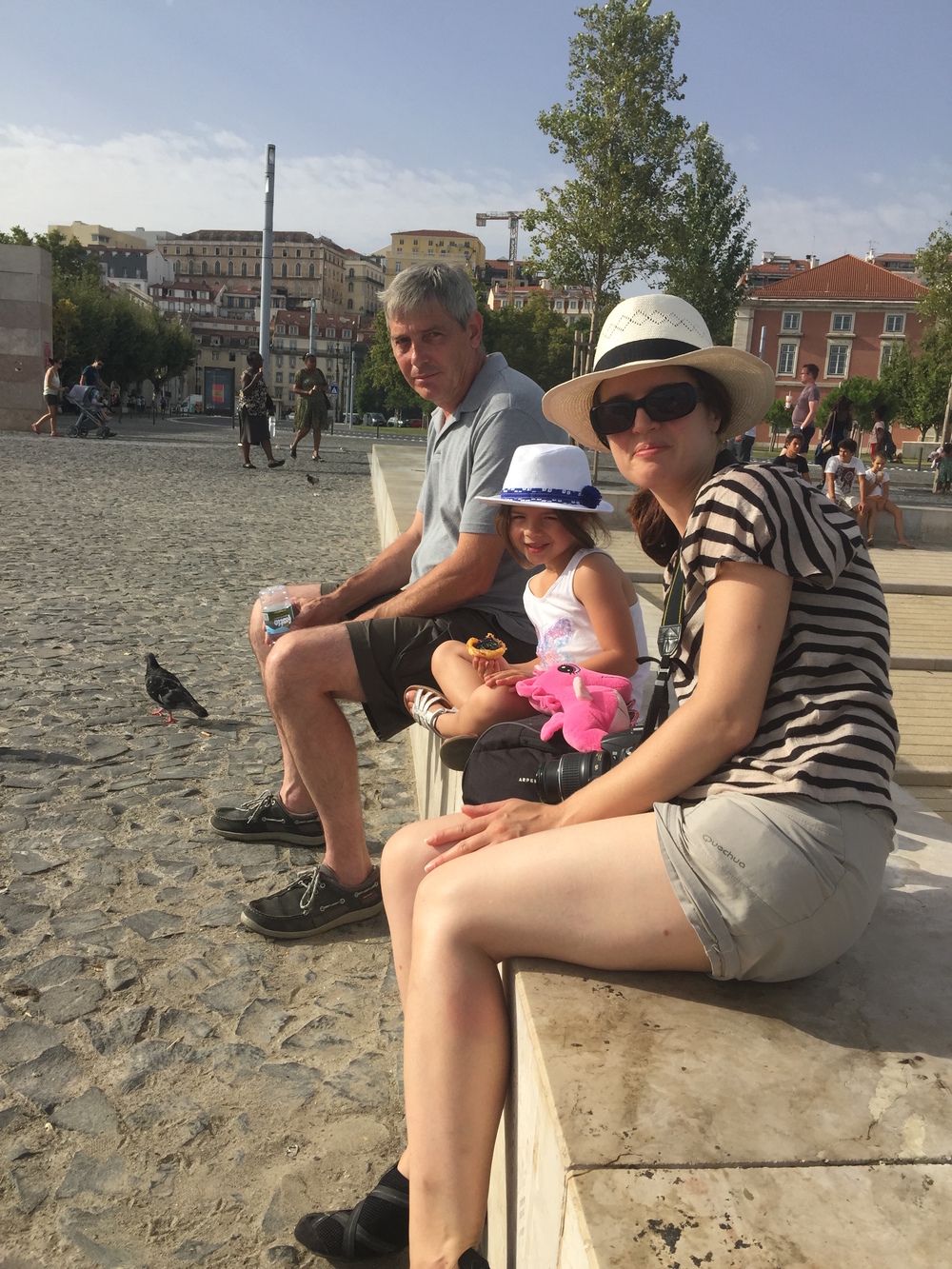
This is not one thing. It never is.
Sintra by the Sea and Two Next Projects
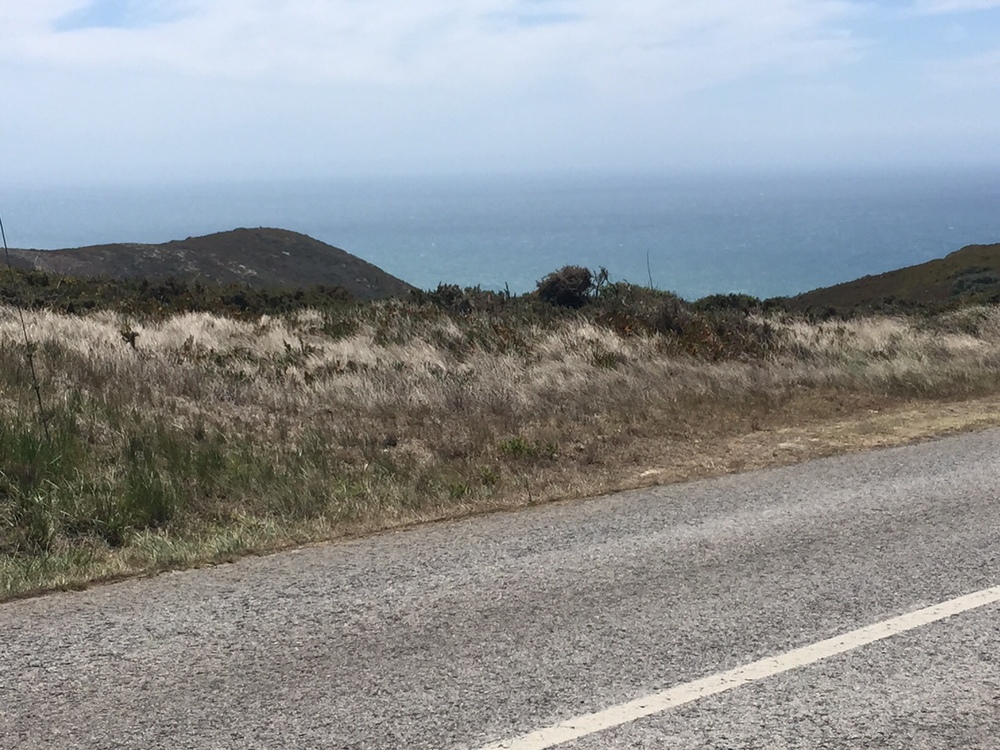
Walking Portugal is helping me orient to two next projects. First, the first-next priority project. And second, a new researcher-practitioner collaboration tool that I’m seeking collaborators on.
Too Big to Surveil: Next Book Is Next
First, an announcement of my next priority project. I want to do four things in the next 4-6 weeks. I have to pick one priority in order to get things done. This is normal.
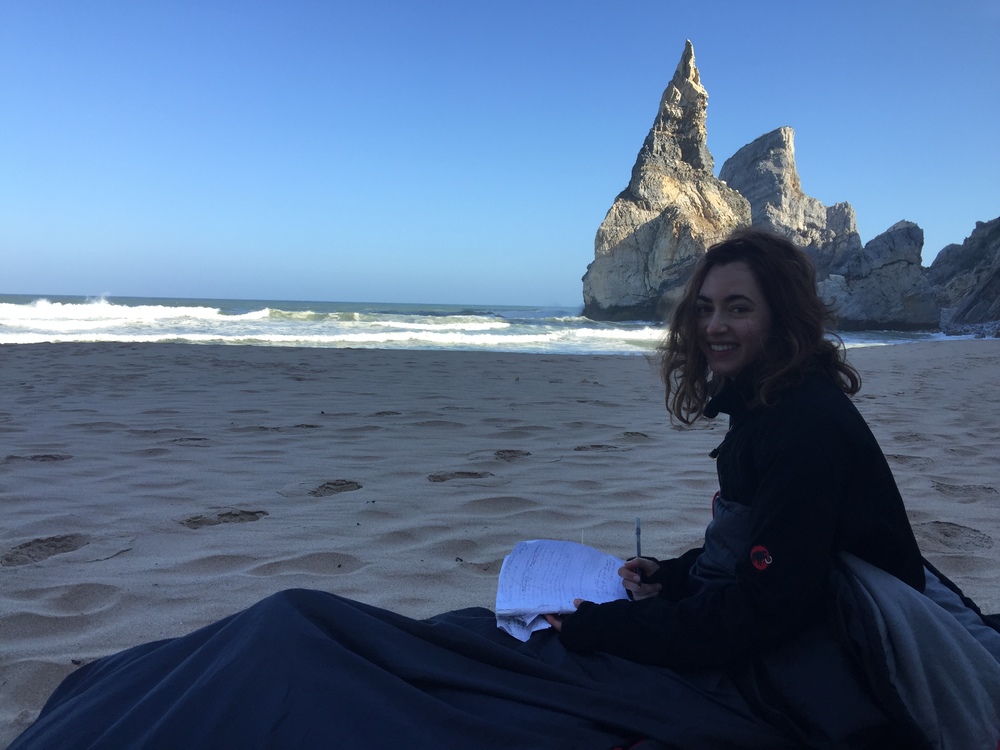
The four things are: making the apocryphal album, writing the next book (having just published the first), shutting down all the defunct interrogation programs in the world, and making a researcher-practitioner share economy sort of web platform.
The album will have to wait until I have better music-making infrastructure in place in my life—perhaps in Berlin in the fall? Did I mention I might move to Berlin? Or back to London? Or New Zealand?—but I can keep collecting song snippets in the meantime.
The book will have to happen now because I am always writing. The shutting down of the defunct interrogation programs will have to fit into the book as a result of the always-writing business. That works out well because doing the book tour(s) gives me a platform to work the social justice project in a crowdsourced sort of way. And the researcher-practitioner website is a longer-term project, because that is not a one-person project and I have to have my own job to do right now.
So the top four potential next book projects were hard to winnow down to one. They were:
– Wtf, World?! An artistic, scientific, and humanistic guide to the universe. An illustrated methods book applying chaos theory to social science methods in an unoriginal (Hayekian) critique of Popperian falsifiability that is somehow not usually taught. Also featuring stories about climate change from around the world, weather being a chaotic system like human societies. I started this project on my last blog, and it was my favorite child for a few months. Now I’m unsure who the audience is. An illustrated art-science methods book? Who does that?
– Too Big to Surveil: Tech, world peace, and chocolate. A translation of my dissertation and postdoctoral research and beyond for a popular audience. Also a constructive critique of the surveillance state and travel memoir. Sarah Vowell meets… Somebody much nerdier than Sarah Vowell.
– Interviews with Dead People. A historical, magical realist novel about soft power, derealization, and creativity—or, how art imitates life imitating art. Tim O’Brien meets Borges. Also started on last blog.
– Justice as Forgiveness. An illustrated poem, essay, and storybook about an unoriginal (Biblical, Stoic, Shakespearean) conception of justice that is orthogonal to all the most common justice processes practically—adversarial, inquisitorial, and restorative—and also to the most common justice theories philosophically—justice as fairness in the liberal tradition, procedural justice on the leading empirical edge, and others (e.g., Marxian and anarchist theories of justice as revolution). G.A. Cohen meets Randall Munroe. Also started on last blog.
While walking Portugal, I decided Too Big to Surveil would add the most value to the world most immediately. So that should be #1, and Justice as Forgiveness can be the #2 writing project I rotate to when I need to do a secondary thing since it’s more of a collage project and I am always doing more than one thing no matter how hard I try to focus.
But then a ridiculously beautiful little girl who saw me writing in a seaside café in Portugal asked me to write a children’s book instead. And so I fretted. What about the ten books in the planned Where the Wilde Thinks Are series of illustrated children’s books, of which I drafted two and got stuck on eight, and didn’t like the two I had drafted? And then I felt, and put my hand on my heart the better to feel it, and remembered Ceiling Ballerina and her story, too. What about her? What about the acting class—better embodied cognition, smaller motions with more feeling, closing more of the feedback loops between is and seems, and a long, social study of a Chekhov, Shakespeare, Ibsen, or Wilde? What about finding a way to teach early Platonic dialogues as art? What about Australia?
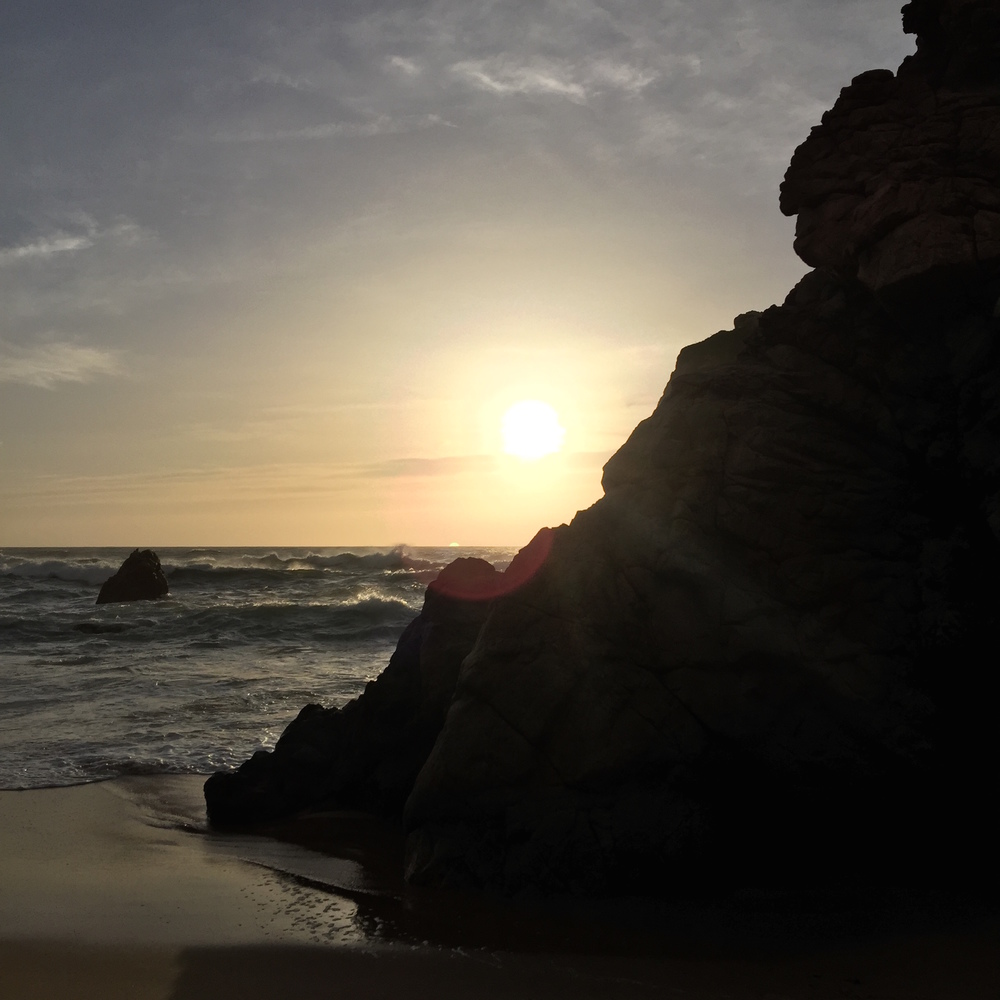
One. Thing. At. A. Time. First-next. For now. Too Big to Surveil. Book draft in 4-6 weeks. Goal. Set. Go! Well. Maybe after another walk.
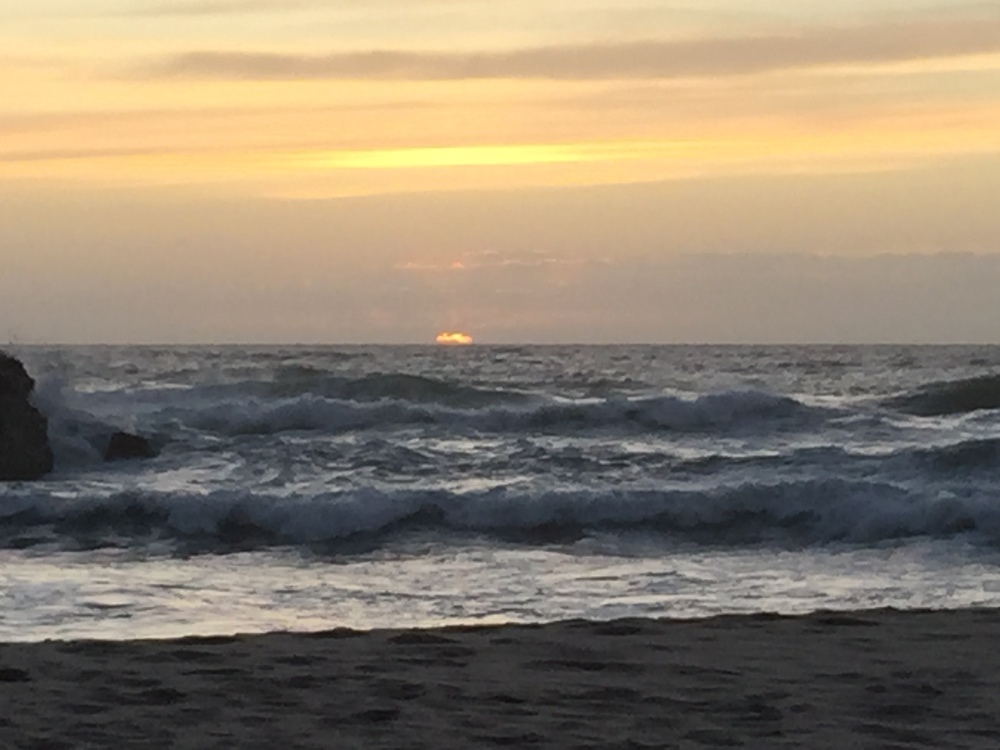
This brings me to the second announcement.
ISO Team of Heroes
Nerdy ones. Hard work, no pay, safe return doubtful.
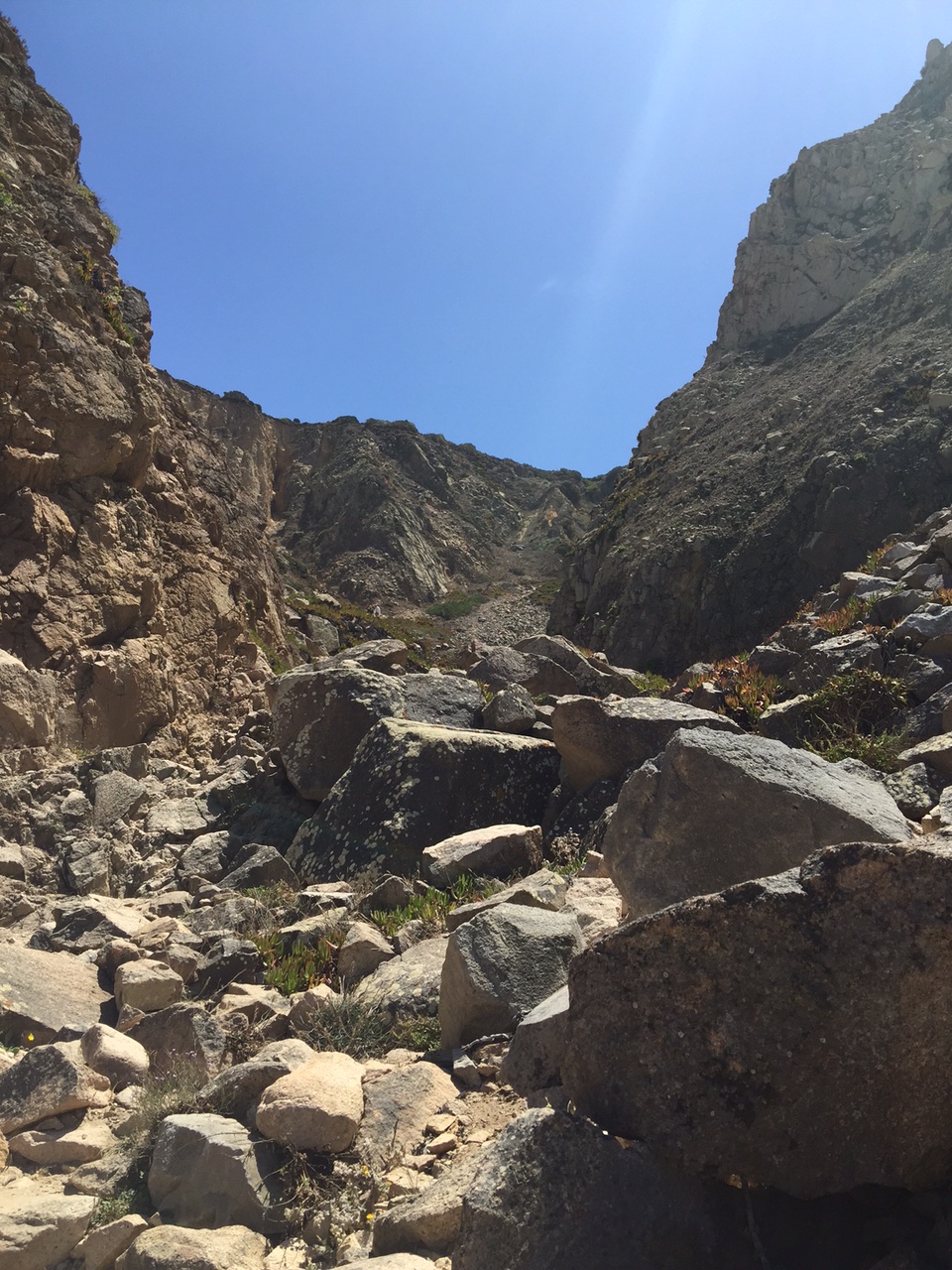
Let’s make a self-sustaining researcher-practitioner share-gift economy hybrid web platform. I will spend the rest of this blog post trying to say that again ten different ways in plain English, but in the meantime—reach out to me if you want to talk about this and maybe do this together, because it will be faster and more fun that way.
The share economy is stuff like TaskRabbit, Lyft, and AirBNB—relatively new businesses that work on an online, end-to-end user model. So they make money, as I understand them, by serving as middlemen between people who want something and people who have it to give, just like most any other business. But share economy businesses usually do that by connecting freelance workers with ordinary individuals who need something small and basic, like help waiting in line for a moving permit (TaskRabbit), getting to work without a car (Lyft), or finding a place to stay for a bit in a strange city (AirBNB).
Sometimes, the share economy overlaps with the gift economy. CouchSurfing, for instance, connects kind people who have a spare couch with decent vagabonds who need a place to crash—mostly when both sides are also looking for community, meaningful human connection, and to share an experience rather than simply exchange value (money) for value (good/service—here, lodging). In this case, the share economy will overlap with the gift economy as some practitioners (businesses, public service organizations) will want a particular problem solved on a particular timetable on a particular budget (which works on the share economy model)—while other practitioners will just want to invite community researchers to see how they work, to learn and help learn (gift economy model).
It’s important to set up a platform that works on share and gift economy models now, because somehow the share economy has not yet expanded to bring together the worlds of academia and business or public service. But it’s just a matter of time before someone figures out how to do this (or that this needs to be done). And it should be done in a way that promotes the public interest, which means including options for share and gift economy, and for directed and open-ended collaboration. So we should do it, to make sure it gets done that way. But I can’t do this by myself.
This is what I mean by directed and open-ended collaboration: sometimes you want to solve a problem, and sometimes you just want to learn more about what works. It’s important to set up a platform that facilitates both directed and open-ended collaboration. Because we often don’t know enough as researchers about tons of stuff to know how best help most practitioners make their best practices better. But sometimes busy practitioners just want a problem solved, and researchers can learn from that, too. So both sides can benefit from both types of collaboration that are better in different contexts.
Overall then, the platform works on a business and research model that varies on a 2×2 matrix of share/gift economy in monetary terms, and directed/open-ended collaboration in research methods terms.
Here are three examples of what I’m talking about.
1. Policing. Local and state law enforcement leadership often express frustration with limited resources and revolving-door problems, like criminalization of drug and mental health problems that are really medical and community support network rather than criminal justice issues per se. Meanwhile, leading criminal justice researchers often express frustration with the U.S. drug law regime as a new Jim Crow. Why not help law enforcement leadership and criminal justice researcher leadership work together to field test alternate models, to show that what works in Portugal—the medical model of drug treatment rather than criminalization—could work in the U.S.? We have a resurgent heroin epidemic on our hands. People are dying. More people are probably dying because we’re addressing the problem the wrong way. And law enforcement are just trying to enforce the laws we’ve given them to enforce. But they are also always making discretionary choices in how they allocate limited resources to enforce interpretive and thus in some respects unlimited laws. So maybe they could use more help—not more criticism—in learning and helping others learn how best we can work together to protect and serve our communities. Maybe research partnerships can help them use their street-level discretionary power in ways that build evidence for better public policy.
2. Education. A lot of educators I know have expressed frustration with public administrative demands for evidence-based educational outcome improvement that measures improvement through standardized testing. There have to be better ways to apply Carol Dweck’s evidence-based growth mindset research on pedagogy that both meet public servants’ need for objective improvement metrics—for democratic accountability in the street-level application of policy-level innovations—and that meet expert educators’ need for discretionary power, creativity, and adaptability in doing their jobs.
3. Art and health. There is not enough arts funding for all the truth and beauty explosions we could all be making all the time. But in part that is because people don’t know about the empirical benefits of making it. For example, Pennebaker’s research suggests expressive writing has significant physical and mental health benefits. Maybe if a bunch of researchers worked with a bunch of practitioners to generate more of that evidence, we could get better arts funding and health outcomes alike.
All of this is basically just a search for a way to practically extend Carol Dweck’s research on mindsets to the way researchers and practitioners work together. Dweck’s research shows the “learn and help learn,” growth mindset correlates with better outcomes across professional, educational, and personal contexts, as compared with the “judge and be judged,” fixed mindset.
I am always thinking about this research because it applies to everything. And I am really bad at applying it. But getting better. And the getting better is all that matters. And that is the growth mindset.
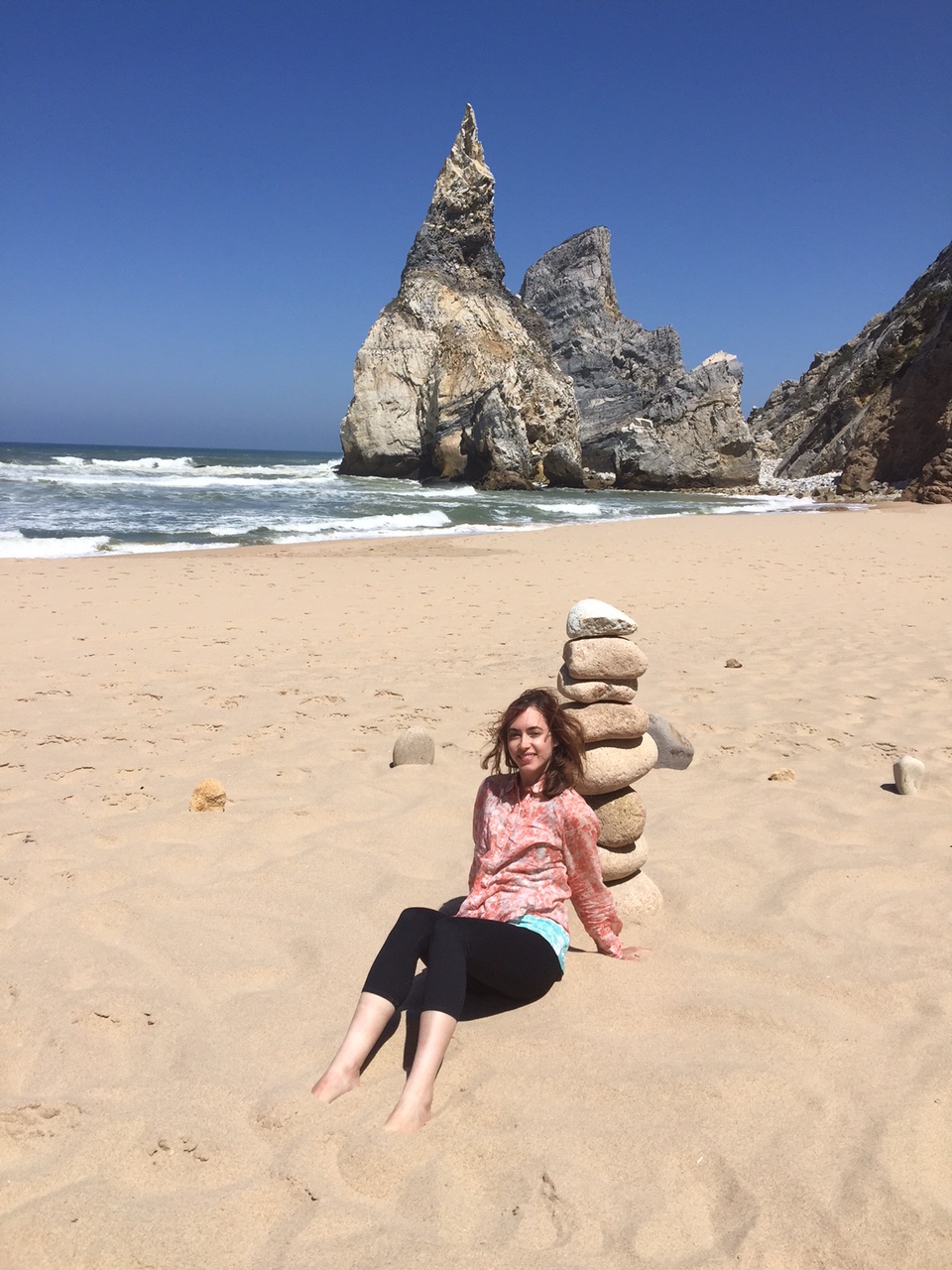
Researchers can be better about making constructive recommendations for how practitioners can make their best practices better. Everybody wins. And that is the growth mindset applied to research.
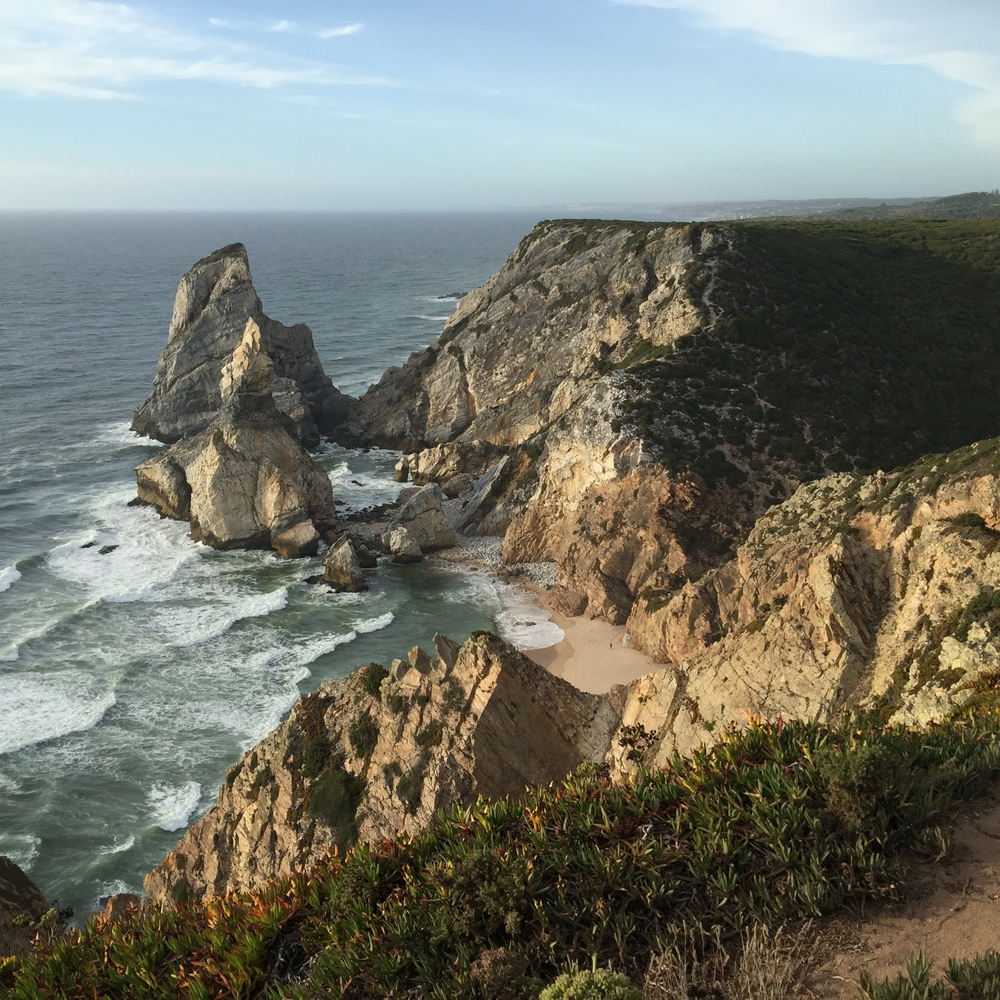
Lost in Woods, Don’t Send Help
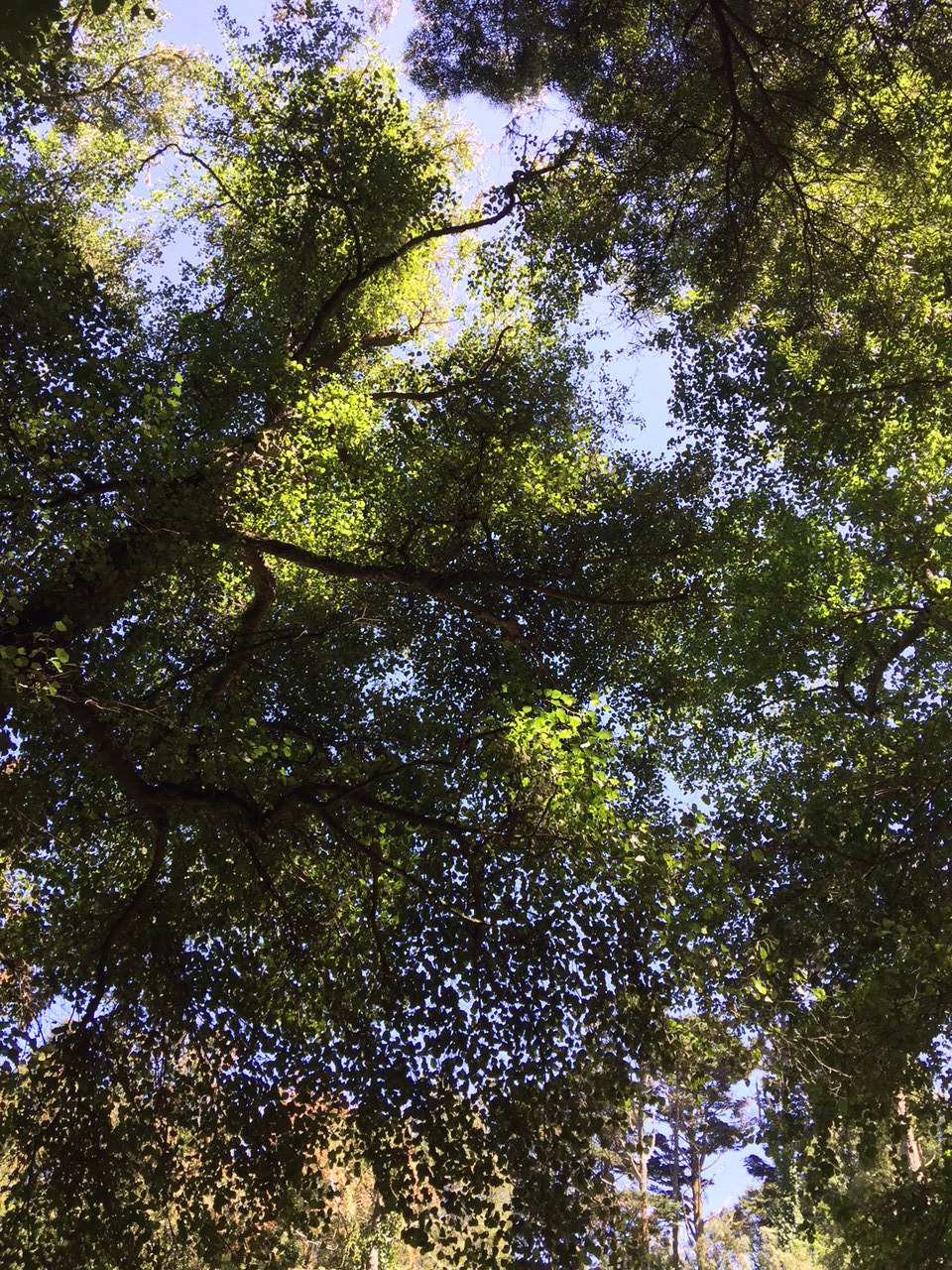
Did I say I was in Lisbon? What I meant was, I was in Lisbon.
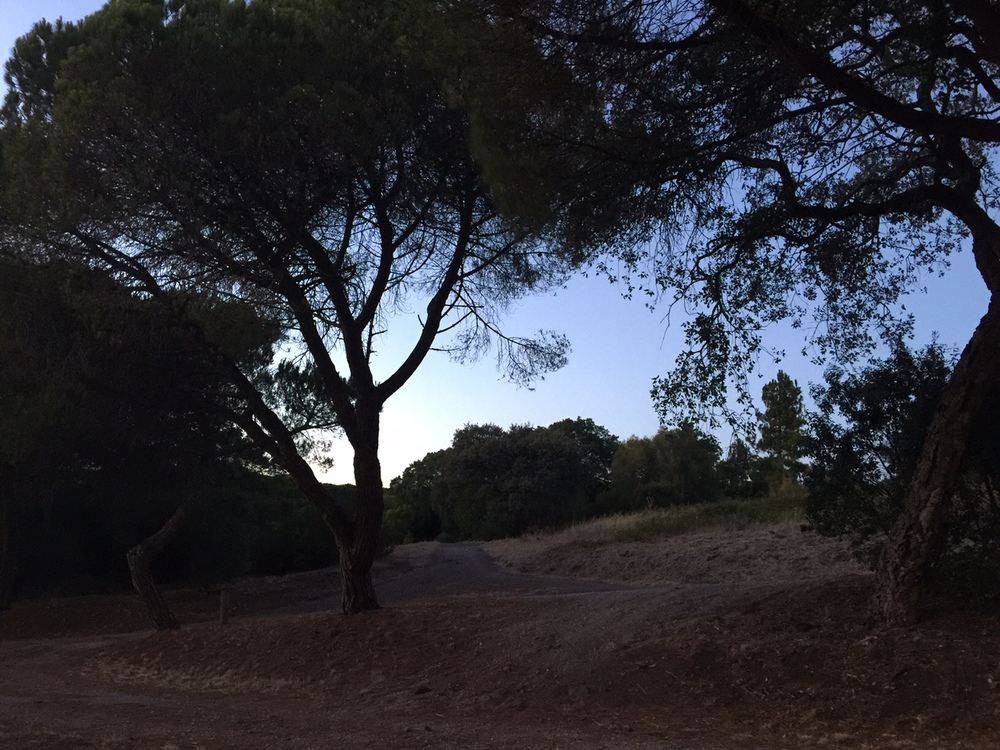
I seem to be on the road again. An EDTR web FAQ page exists—an interview in Redbird on my first book, paintings, surveillance, and more is done and coming soon—and I have almost gotten my next priority project down to one thing.
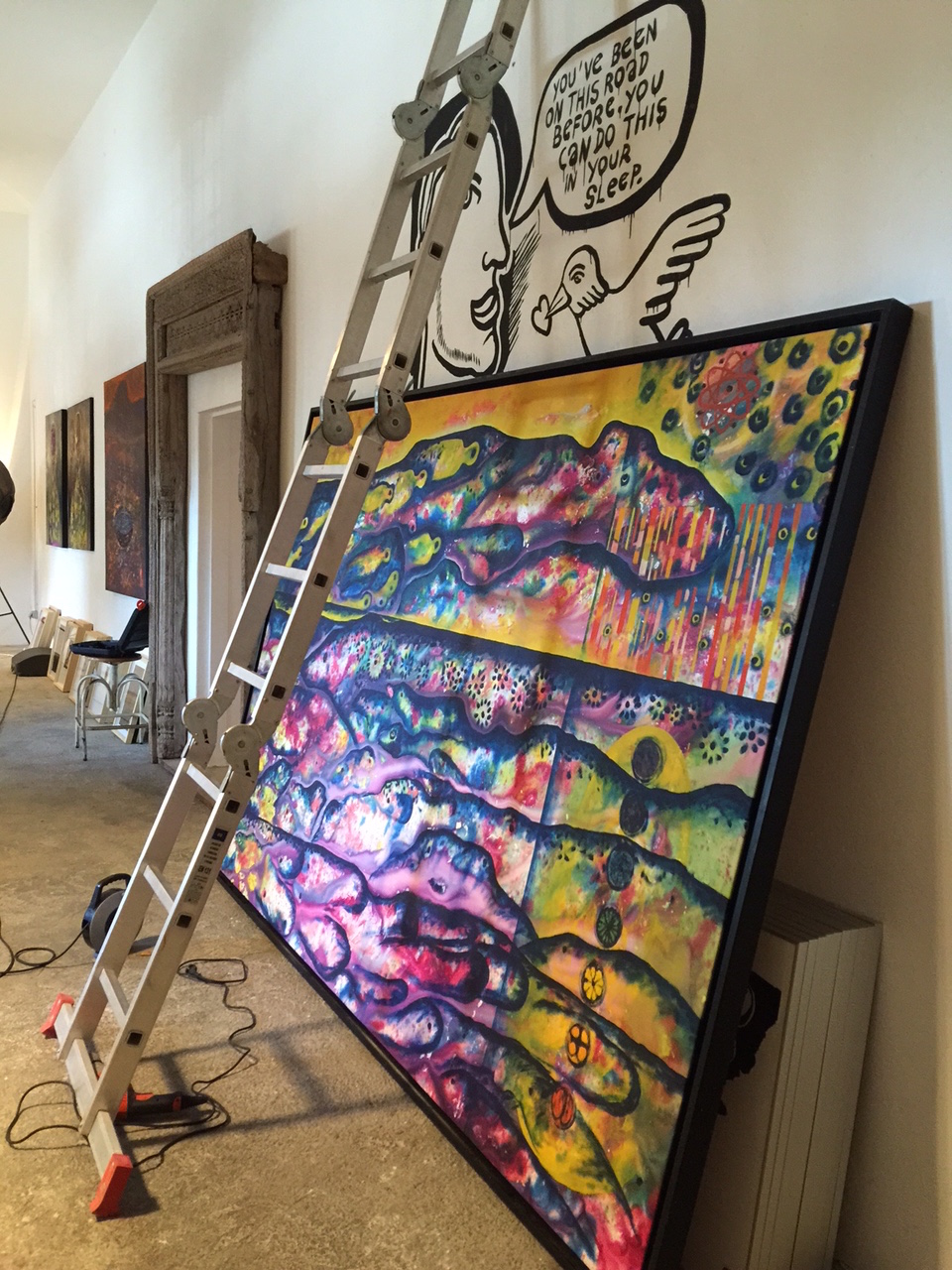
Actually, I had it down to one thing. But then a lovely French family accosted me in a seaside café as I re-combobulated my scribbles to ask if I was writing a book—I am! I am writing a book!—and they wanted it to be a children’s book after I drew one of their ridiculously beautiful daughters, and now I want it to be a children’s book, too, and I had a list of those, but it wasn’t flowing, the drafts weren’t good enough, and now I have to have another walk, think, talk, walk, walk, walk on the question of the next priority project. What is best. What offers most value to most people. Truth and beauty explosions eminent.
Push Coasts Publication
Poetry Book Published
My first poetry book, Push Coasts, is out now in hard copy, free ebook, and online illustrated versions.
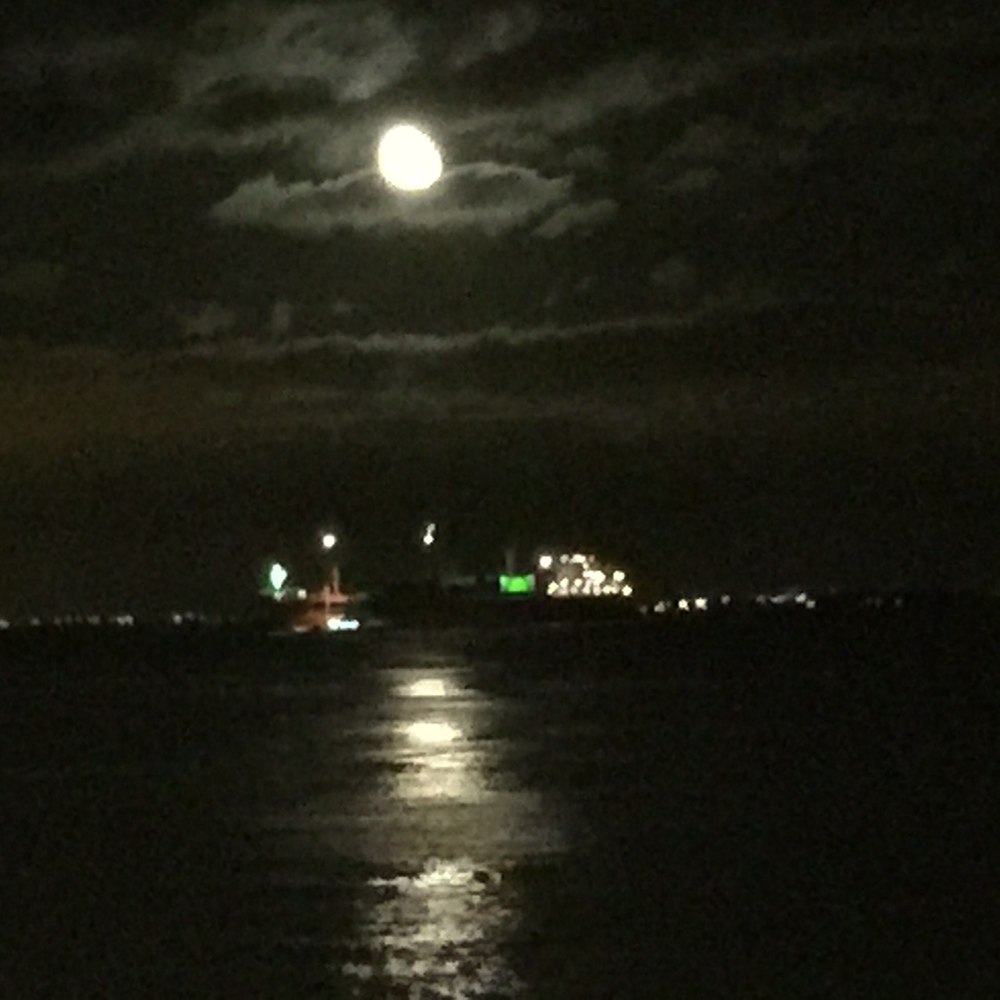
Back from the long final-edit walk here in beautiful Lisbon. And I only want to go walk some more. Or run. Dancing will have to do for the moment.
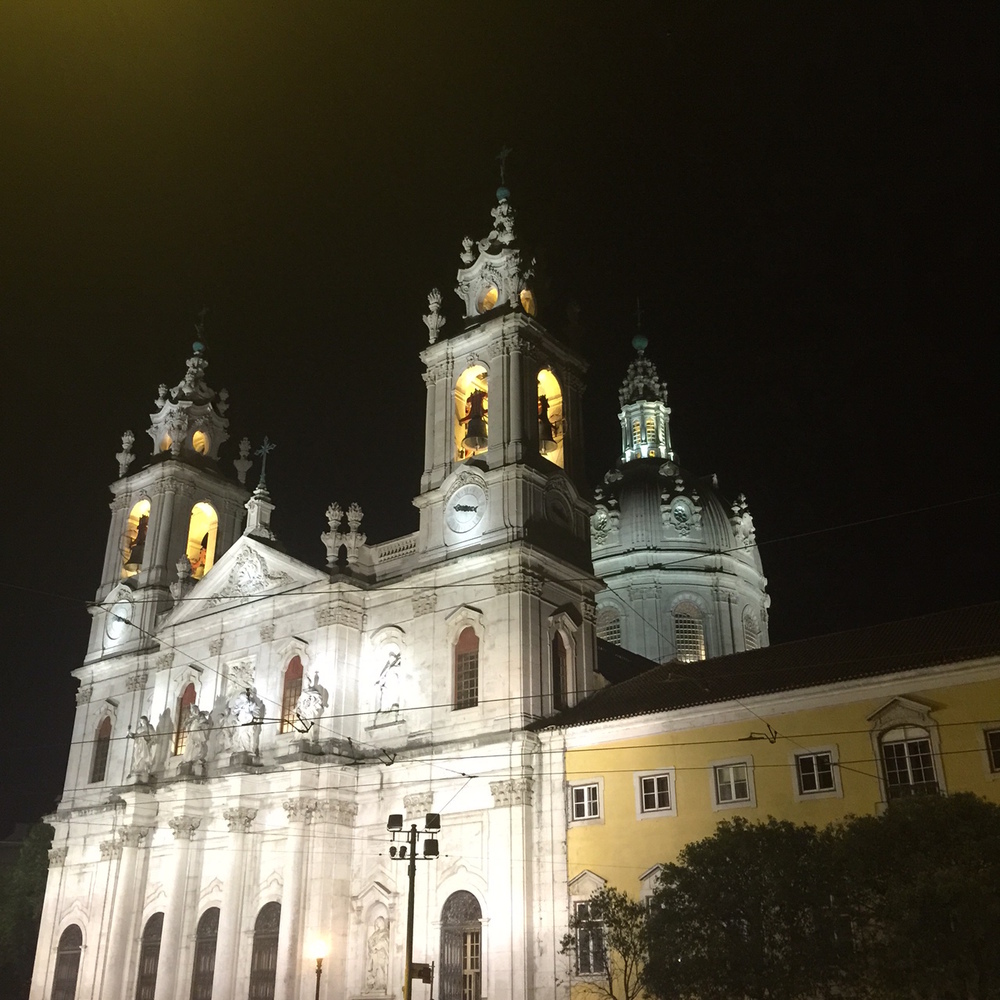
Thank you, Portugal.
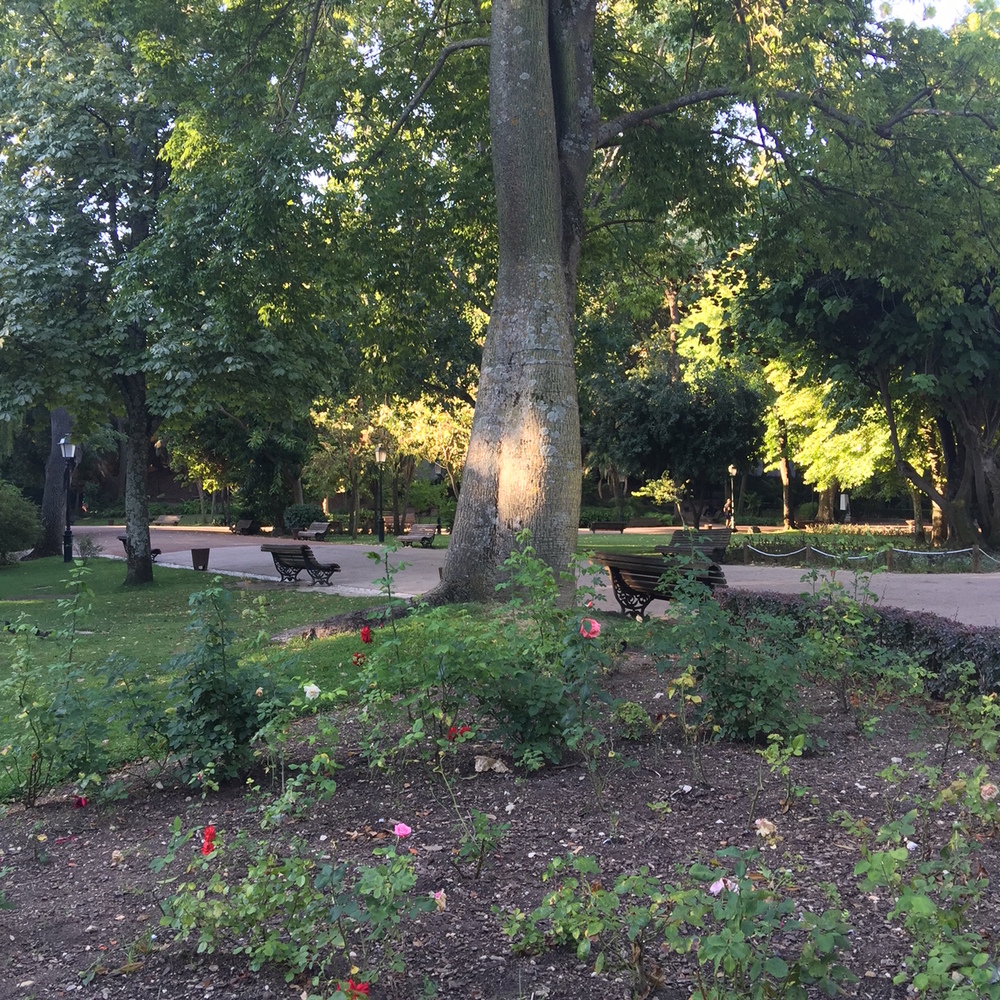
Thank you, Hack42.
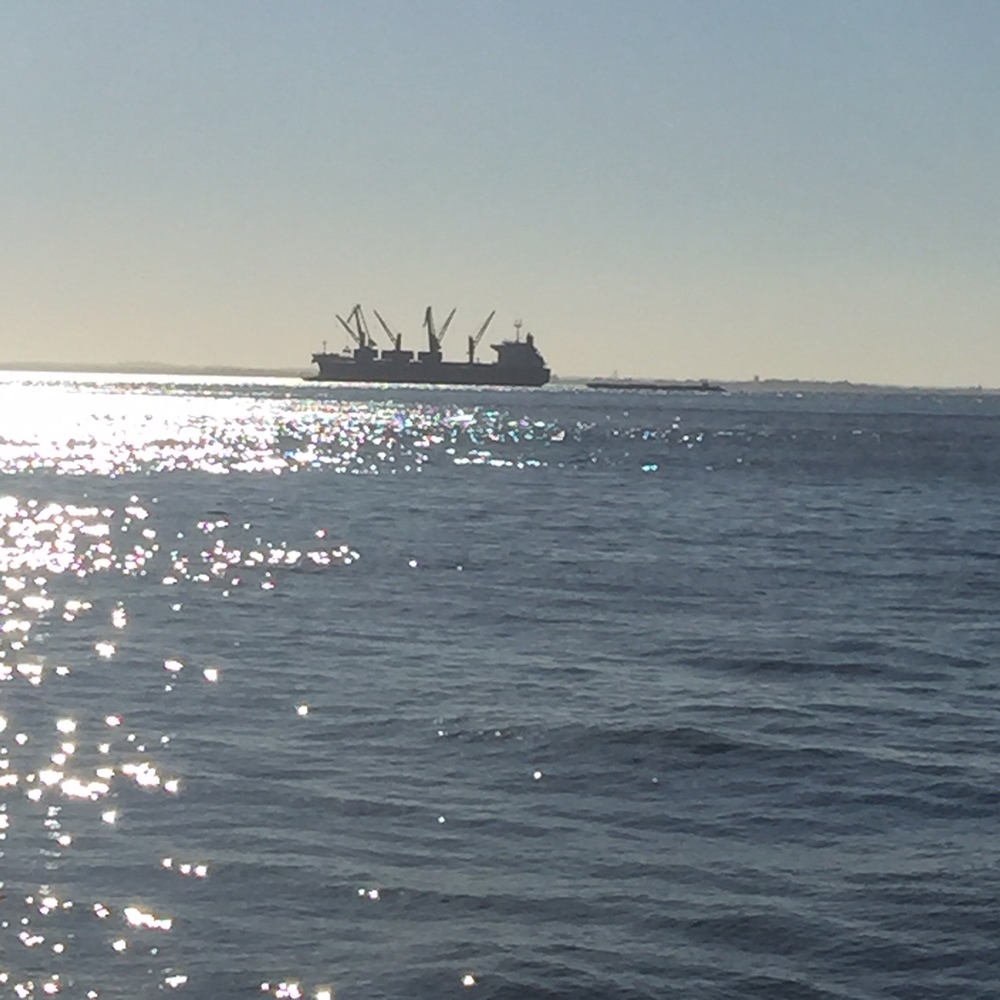
Thank you everyone who gave me bits of truth and beauty I gathered and stashed in this odd little nest of a book.
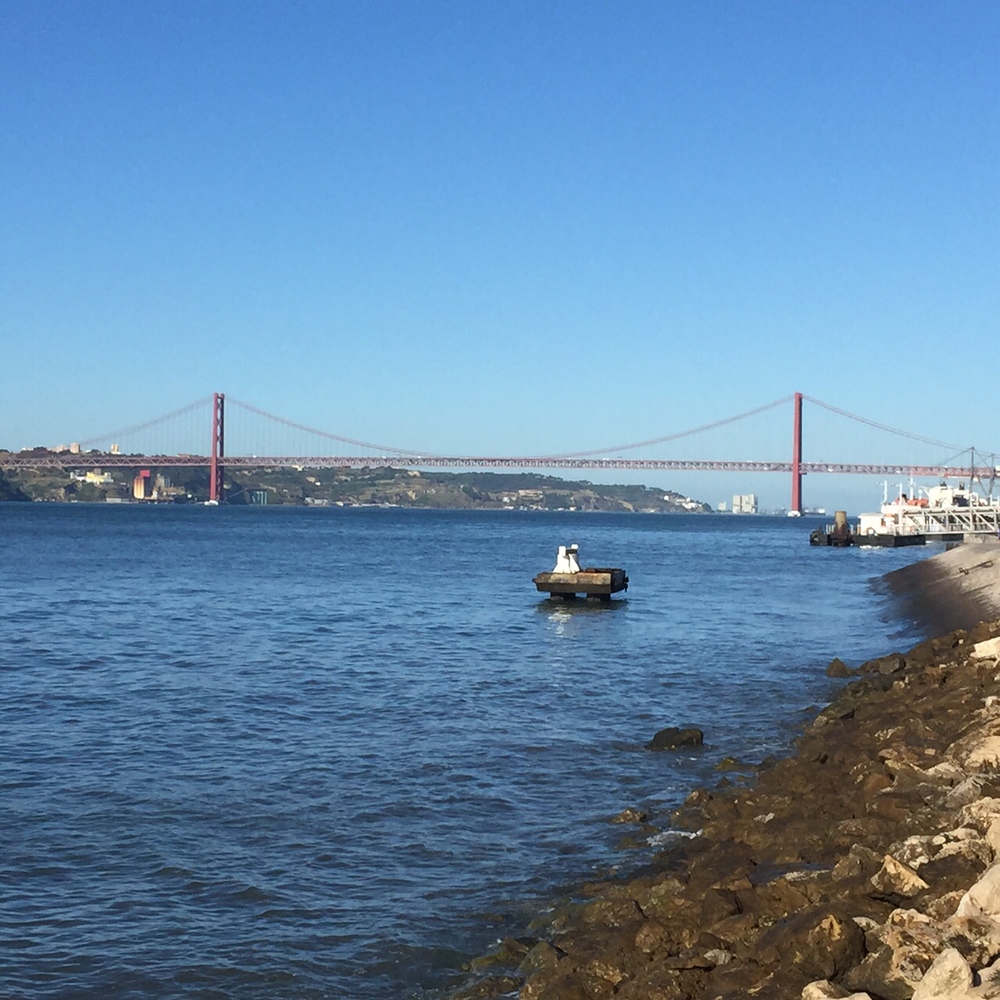
Thank you sanctuary and home in the world.
Going for a Walk Until Poetry Book is Ready to Publish
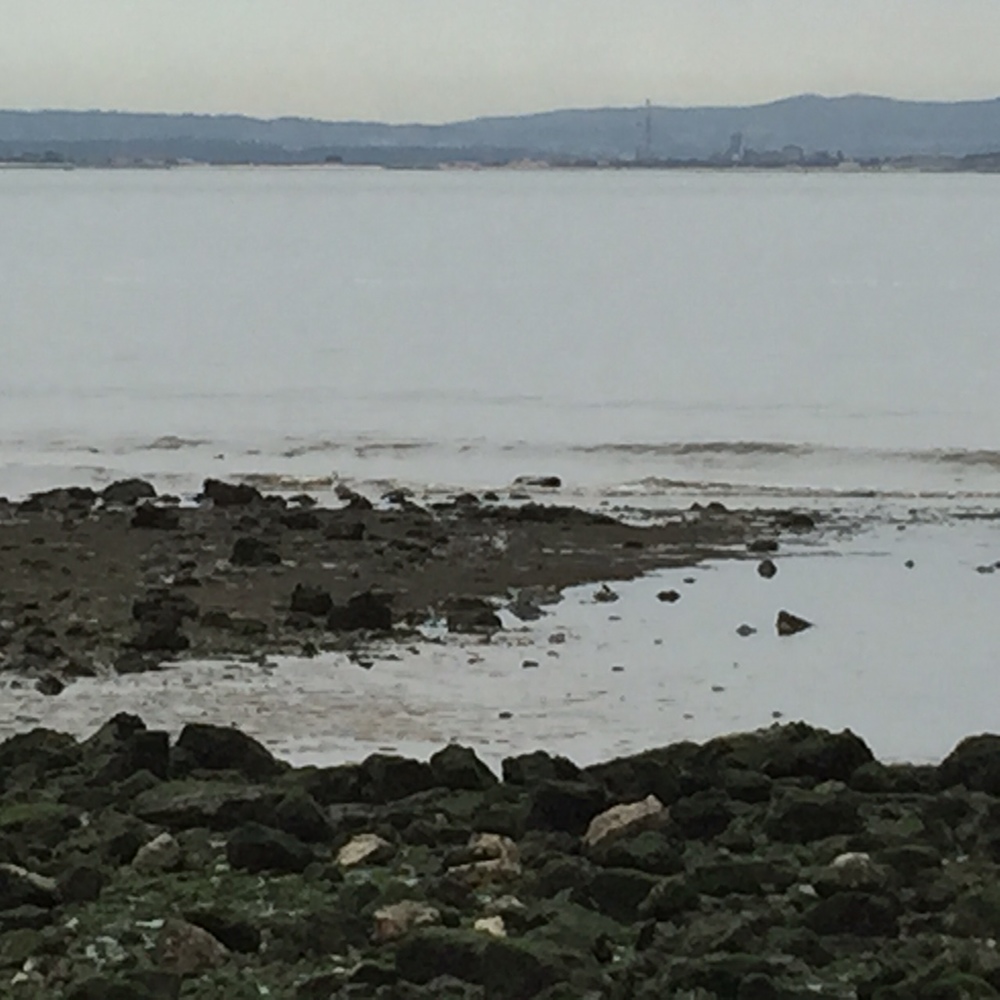
Walking Lisbon with a hard copy of the manuscript, talking it out, having one last go at the thing before calling it, putting it online free and illustrated, self-publishing it in electronic and physical forms (unillustrated, that you can pay for if you like), and then moving on to the next.
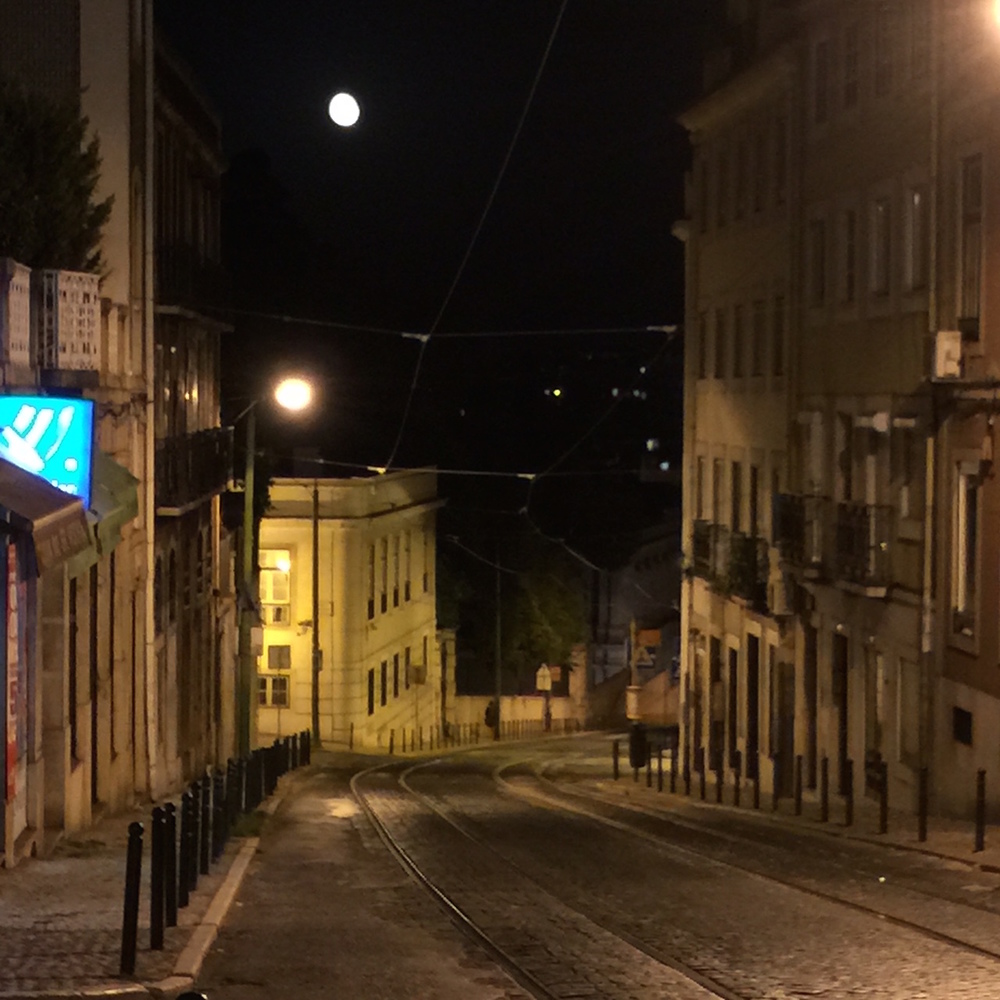
Meanwhile here [deleted immediately on advisement, sigh] is my brainstorming on goals that might someday eventually get somewhere as a reasonably reasonable orientation to goals. Closer. Help. Don’t help. I’m figuring this out. This thing is on. Hush. Tell me what you think. But don’t talk to me right now. I’m going for a walk.
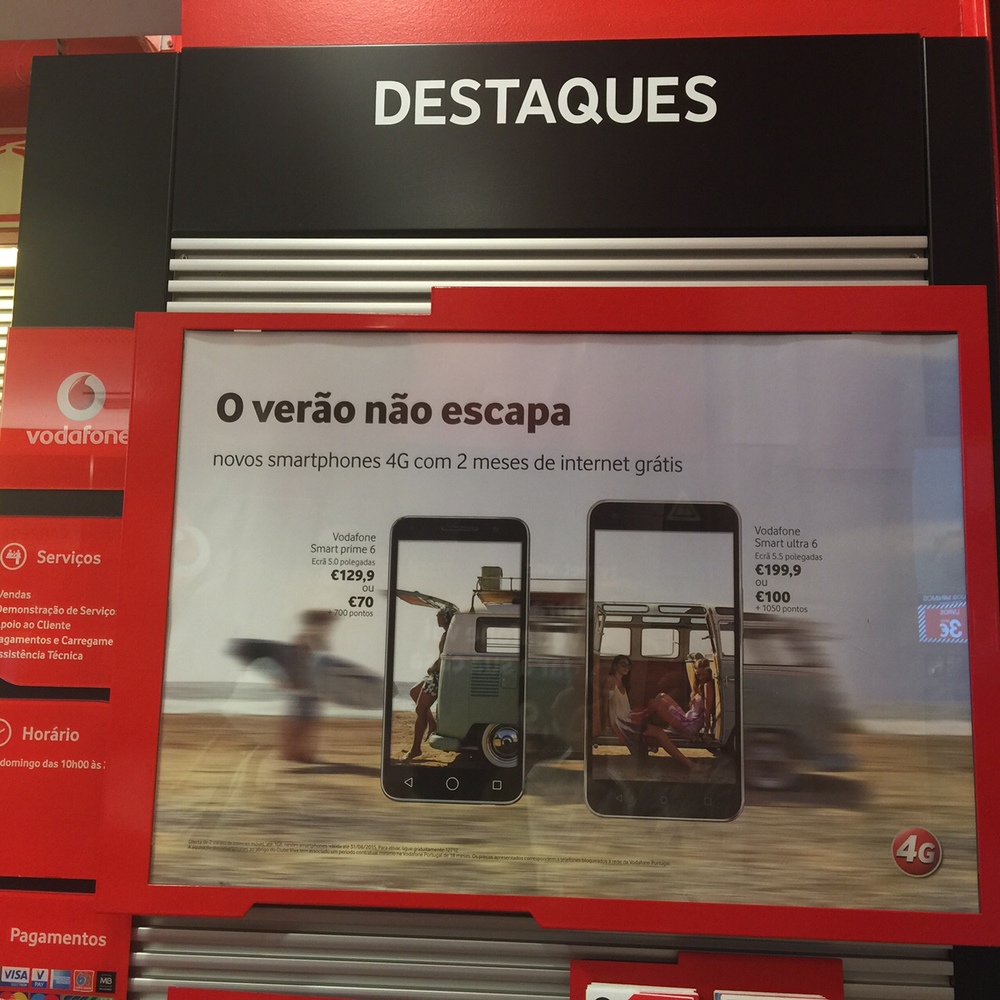
It’s still a new dawn.
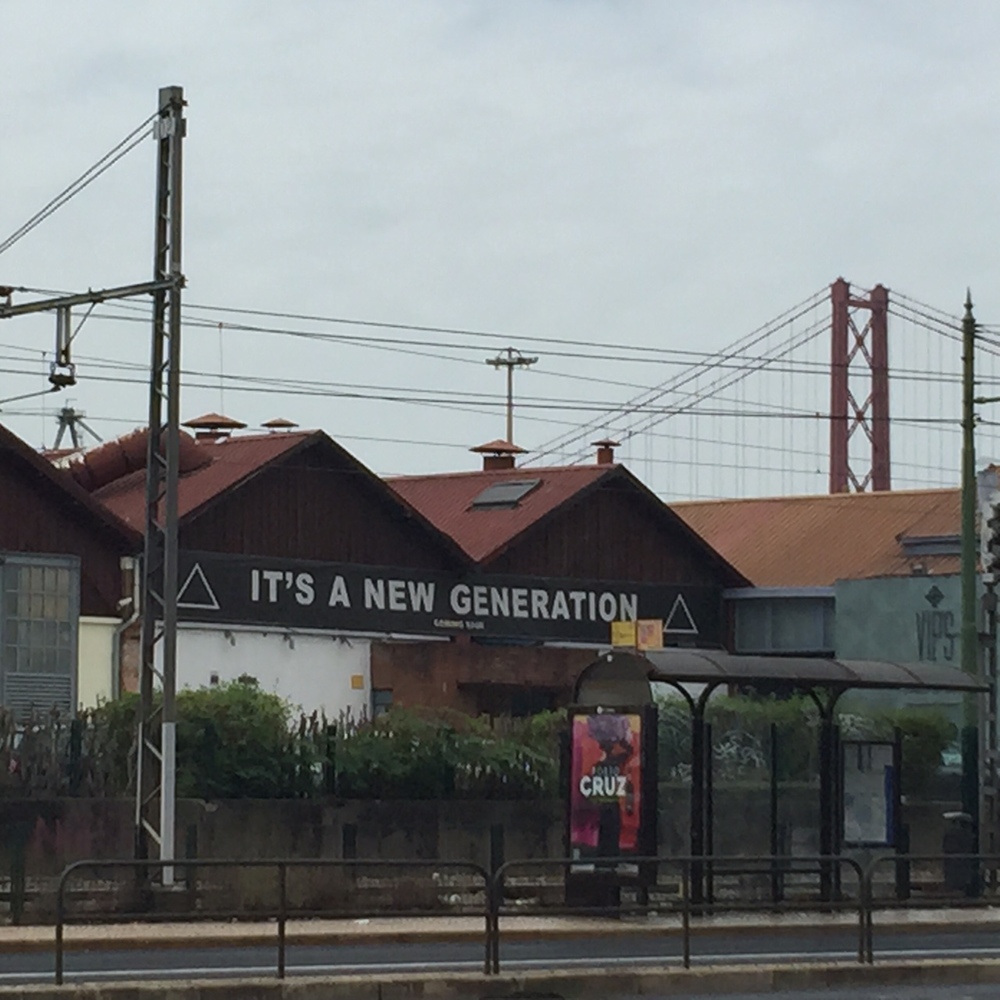
Going to Walk Portugal now
Hi and bye from the airport en route to Lisbon. Here’s my latest artist email newsletter update. Thanks again to everyone who made my first artist residency a success!
Special Thanks to Hack42
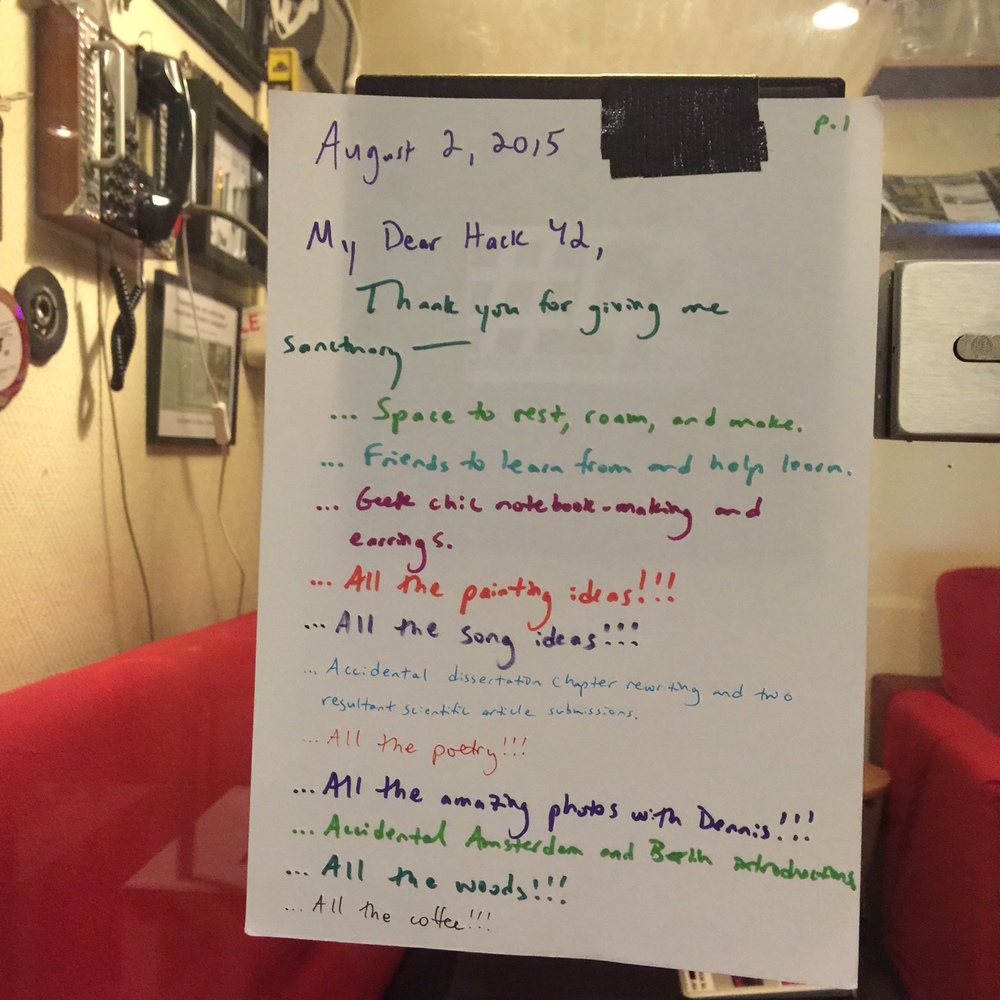
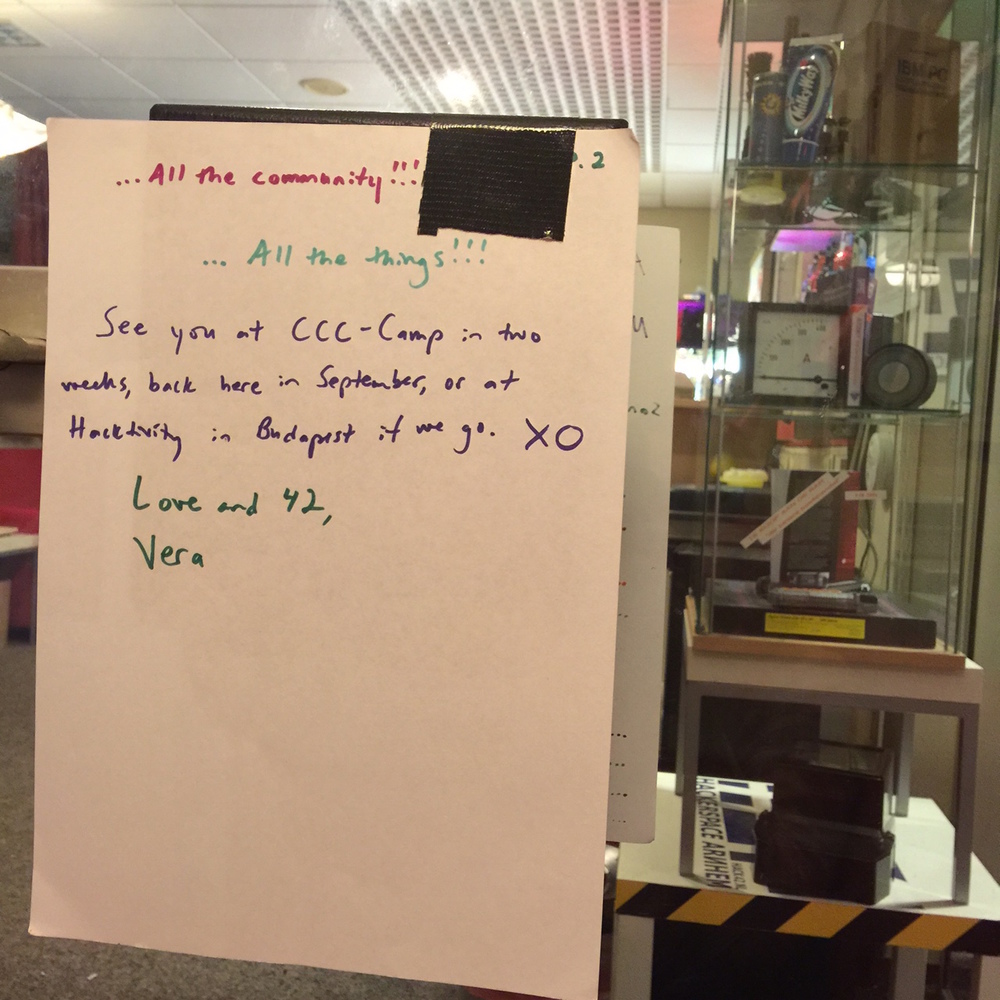
My Dear Hack 42,
Thank you for giving me sanctuary—
… Space to rest, roam, and make.
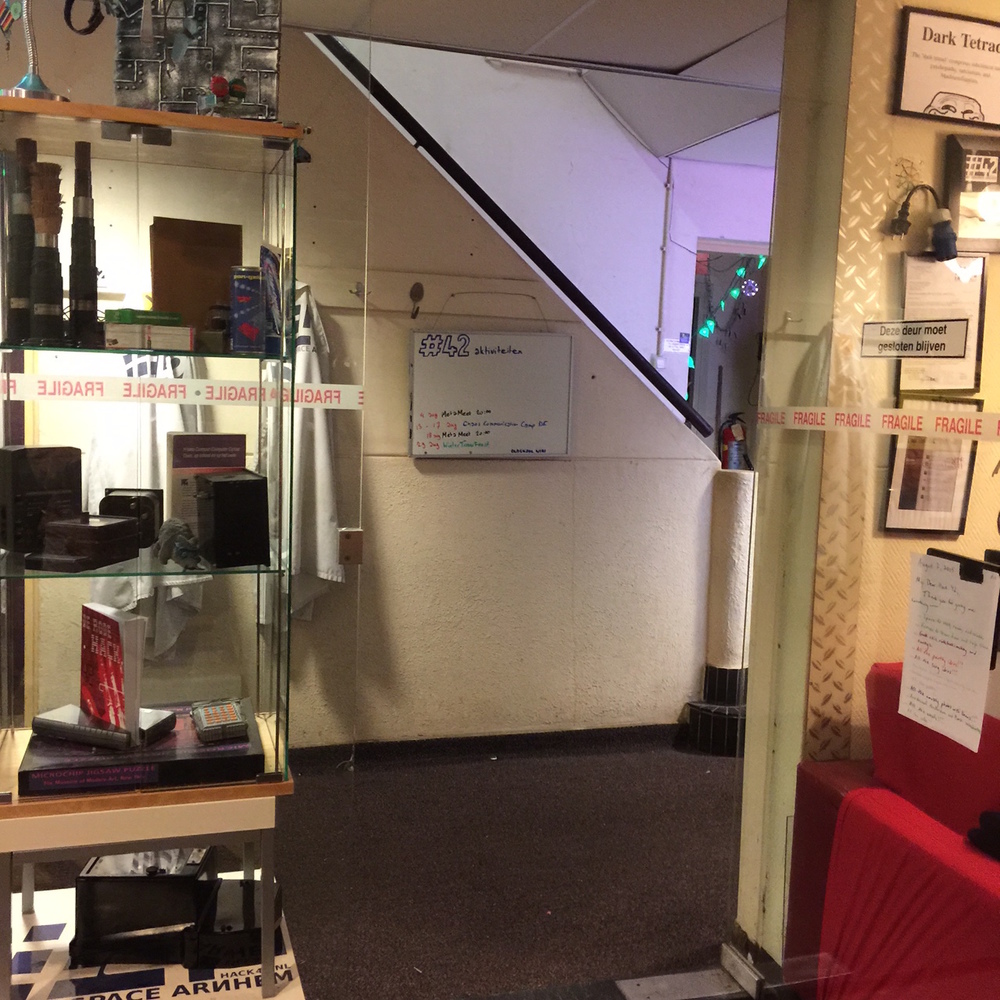
… Friends to learn from and help learn.
… Amazing conversation and ideas about the “Dark-Web,” surveillance, and Internet freedom.
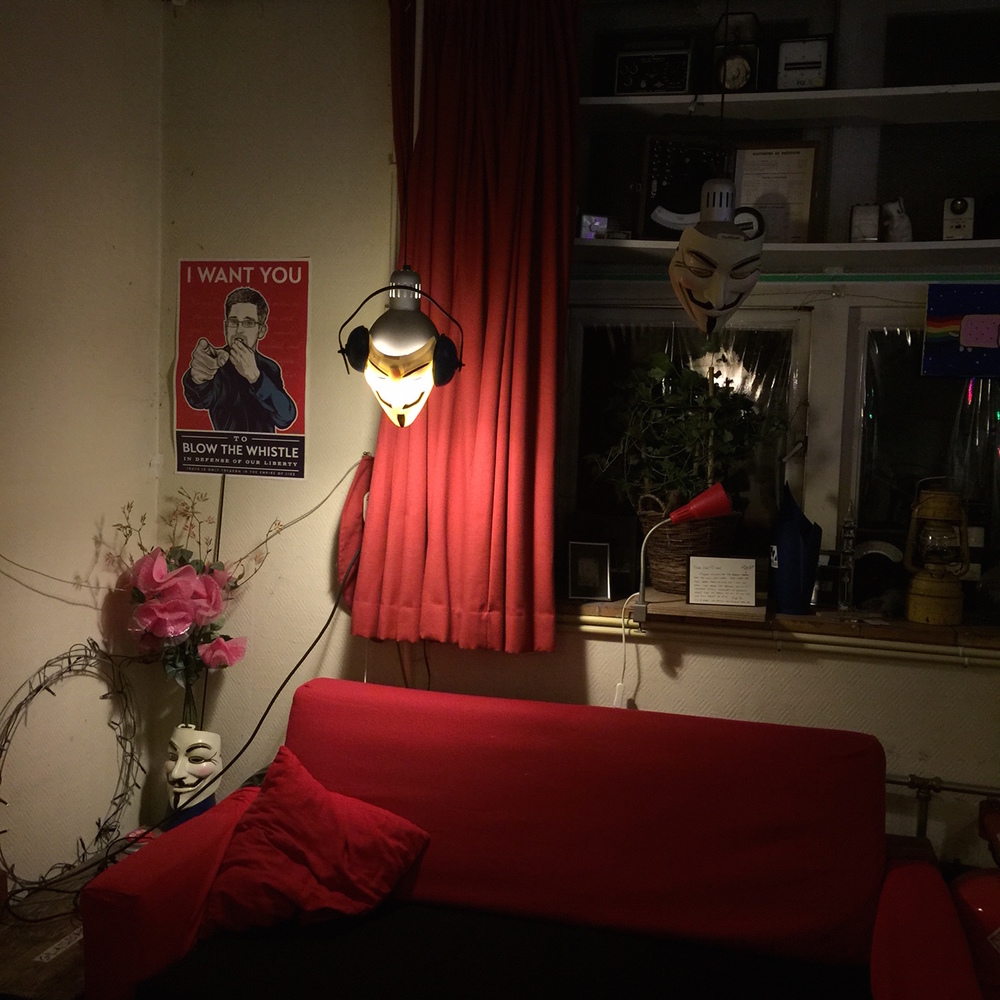
… Geek chic notebook-making and earrings.
… All the painting ideas!!!
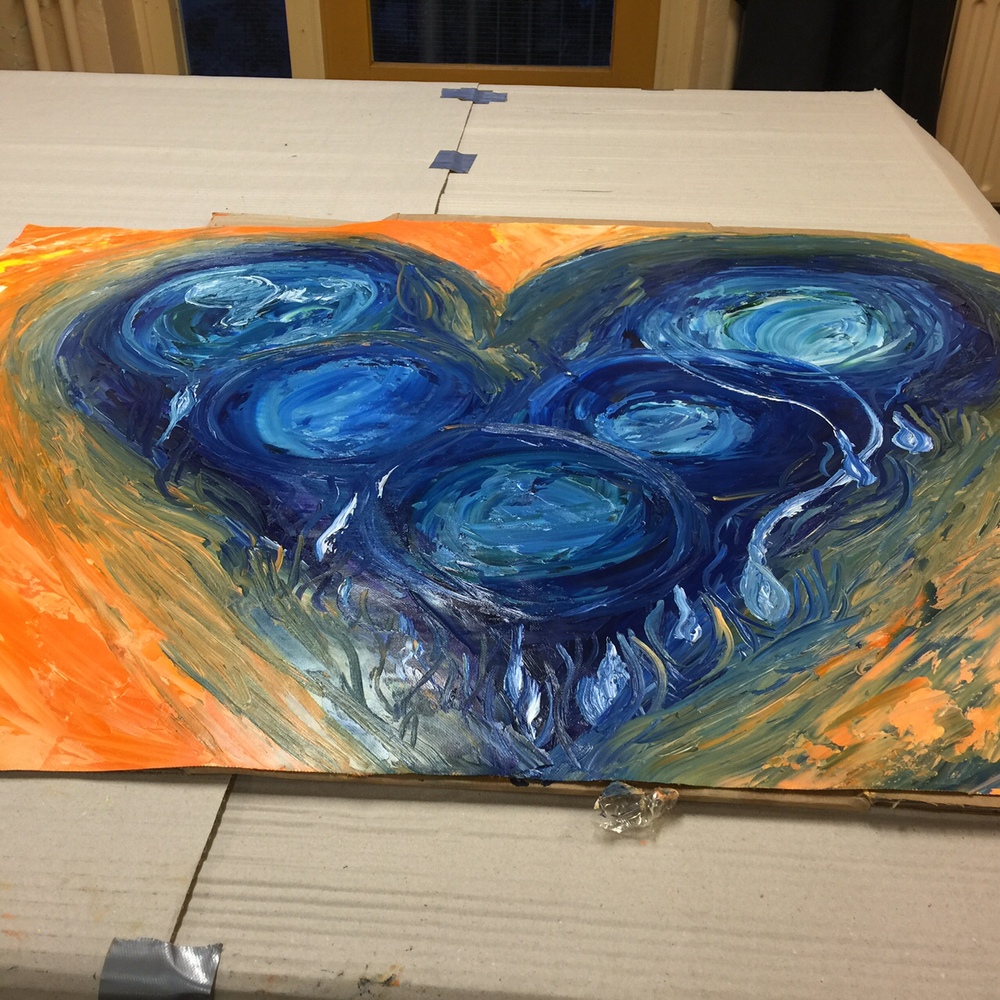
… All the song ideas!!!
… Accidental dissertation chapter rewriting and two resultant scientific article submissions.
… All the poetry!!!
… All the amazing photos with Dennis!!!
… Accidental Amsterdam and Berlin introductions.
… All the woods!
… All the coffee!!!
… All the community!!!
… All the thingz!!!
See you at CCC-Camp in two weeks, back here in September or at Hacktivity in Budapest if we go, XO
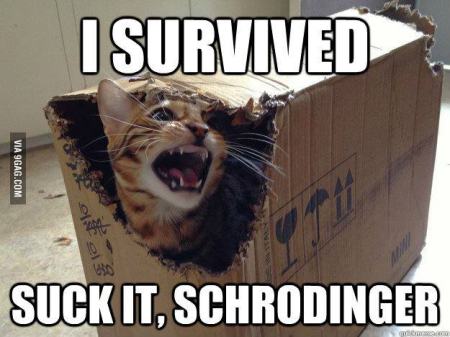
Love and 42,
Vera
Great Moments in Popular InfoSec, Installment #2
Information security is everywhere. It’s in the music we listen to on the radio, on and offline. In the water we drink when we’re not swigging mate soda like the hacktivist hipsters we are. And all over the Interwebs. I think the cats brought it in. This ongoing bloggular series examines its pawprints on the good carpet.
Step 1. Leave computer in hackerspace momentarily to make tea.
Step 2. Come back to find message typed above draft thank-you note to hackerspace for first artist residency:
You should not leave your laptop unlocked…
Step 3. Cackle madly and look around at apparently deserted hackerspace.
Step 4. ????
Step 5. PROFIT!!!!
More Photos from Hack42
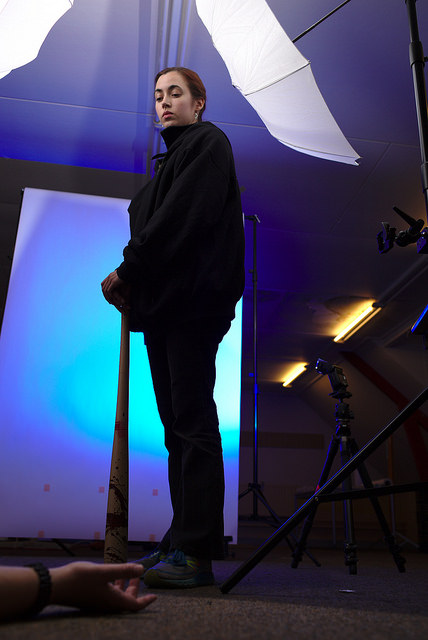
The amazing Dennis van Zuijlekom has added the product of our third photo session from my Hack42 artist residency to his Flickr page.
More soon! Suddenly not enough time for half of what I still wanted to do here before leaving for Lisbon tomorrow…
But I figured out on another long walk in the woods today why I’ve been so confused about my life direction for so long. “Roaming Vera” was not on any of the career lists on any of the standardized career tests I took.
Duh. I want to be a Roaming Vera when I grow up. Now it all makes sense.
Quote of the Day—Nin on experiments
“One word I would banish from the dictionary is ‘escape.’ Just banish that and you’ll be fine. Because that word has been misused regarding anybody who wanted to move away from a certain spot and wanted to grow. He was an escapist. You know if you forget that word you will have a much easier time. Also you’re in the prime, the beginning of your life; you should experiment with everything, try everything… We are taught all these dichotomies, and I only learned later that they could work in harmony. We have created false dichotomies; we create false ambivalences, and very painful ones sometimes—the feeling that we have to choose. But I think at one point we finally realize, sometimes subconsciously, whether or not we are really fitted for what we try and if it’s what we want to do.
You have a right to experiment with your life. You will make mistakes. And they are right too. No, I think there was too rigid a pattern. You came out of an education and are supposed to know your vocation. Your vocation is fixed, and maybe ten years later you find you are not a teacher anymore or you’re not a painter anymore. It may happen. It has happened. I mean Gauguin decided at a certain point he wasn’t a banker anymore; he was a painter. And so he walked away from banking. I think we have a right to change course. But society is the one that keeps demanding that we fit in and not disturb things. They would like you to fit in right away so that things work now.”
― Anaïs Nin (h/t Jeff Isaac)
Ten Things I’m Grateful for—Amsterdam and Berlin Edition
Continuing the gratitude-listing tradition from last week and beyond, here’s a quick post on ten things I’m grateful for as I close out the unbelievable second week of my artist-in-residence post at Hack42 in Arnhem, Netherlands. Only I’m not actually in Arnhem. That would be too residential. I seem to be in Amsterdam. No, wait, Berlin. No, wait, back to Amsterdam. Danke, Universe.
1. Embarrassment of riches of photos from my friend Dennis van Zuijlekon the Photographer’s second photo shoot, a portraiture one. That my friend B.R. the Editor—who recently started this cool podcast—helpfully points out makes it next to impossible to choose an author photo, because there are so many good possibilities there.
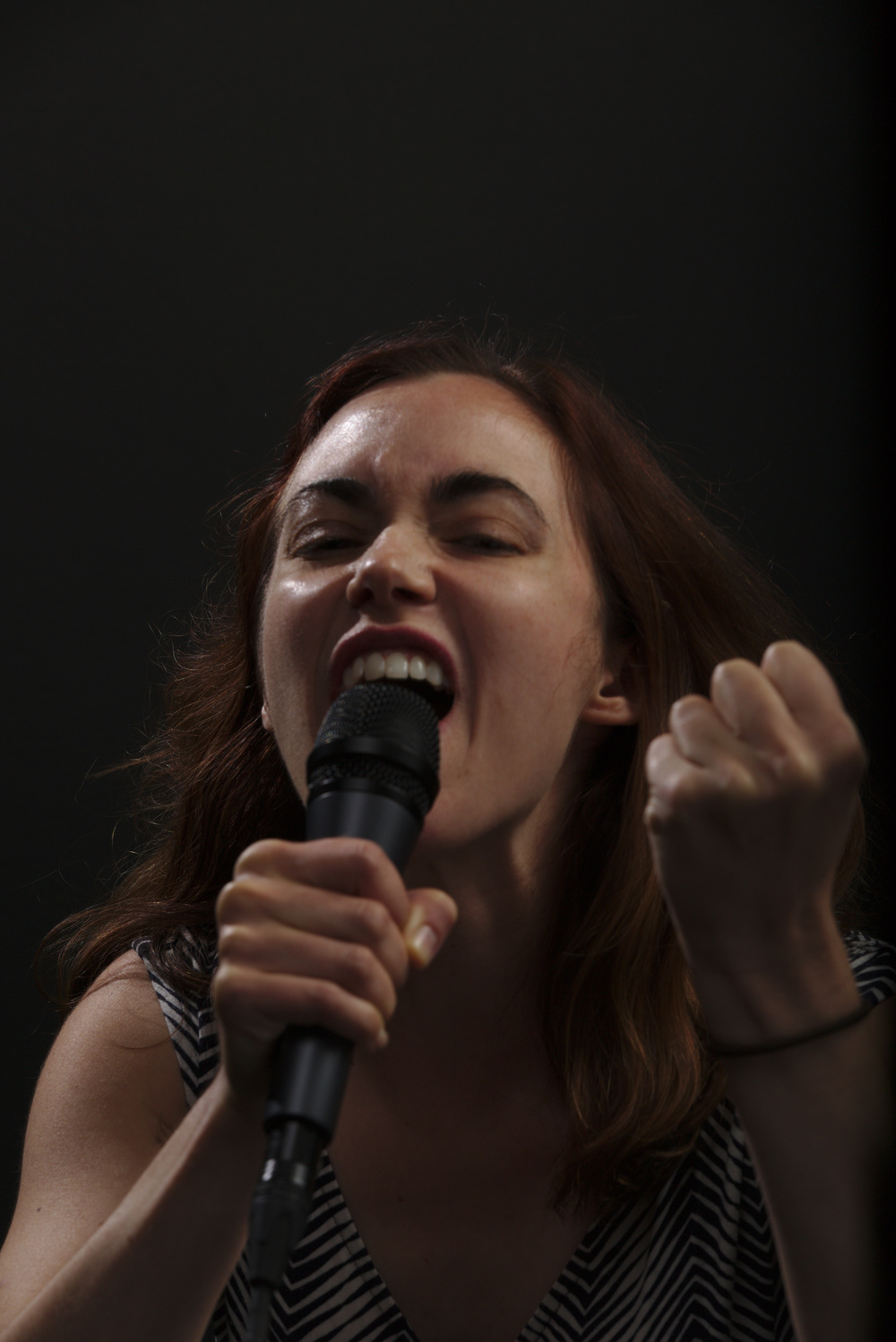
It’s a punk-rocker!
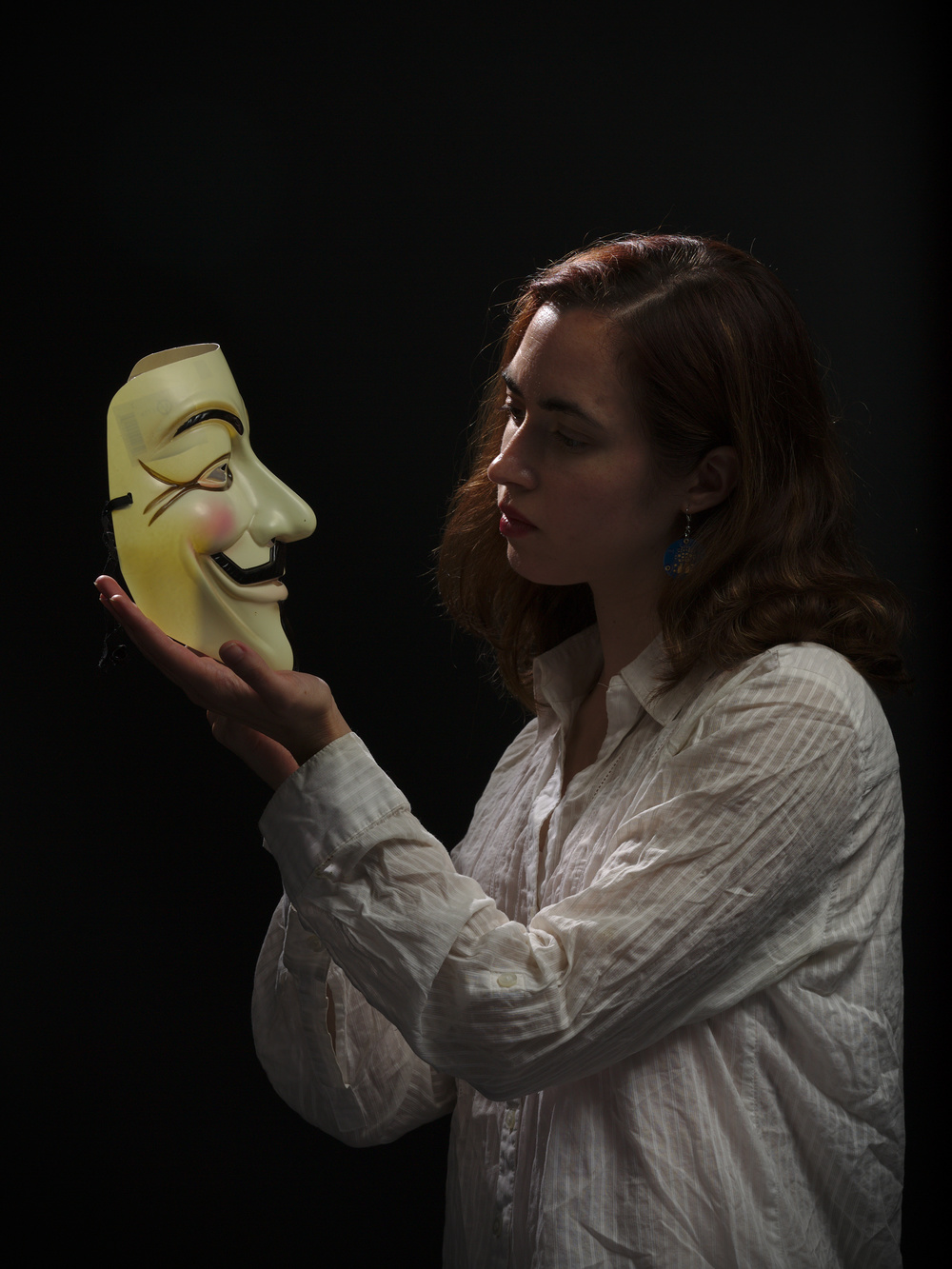
It’s a an actress!
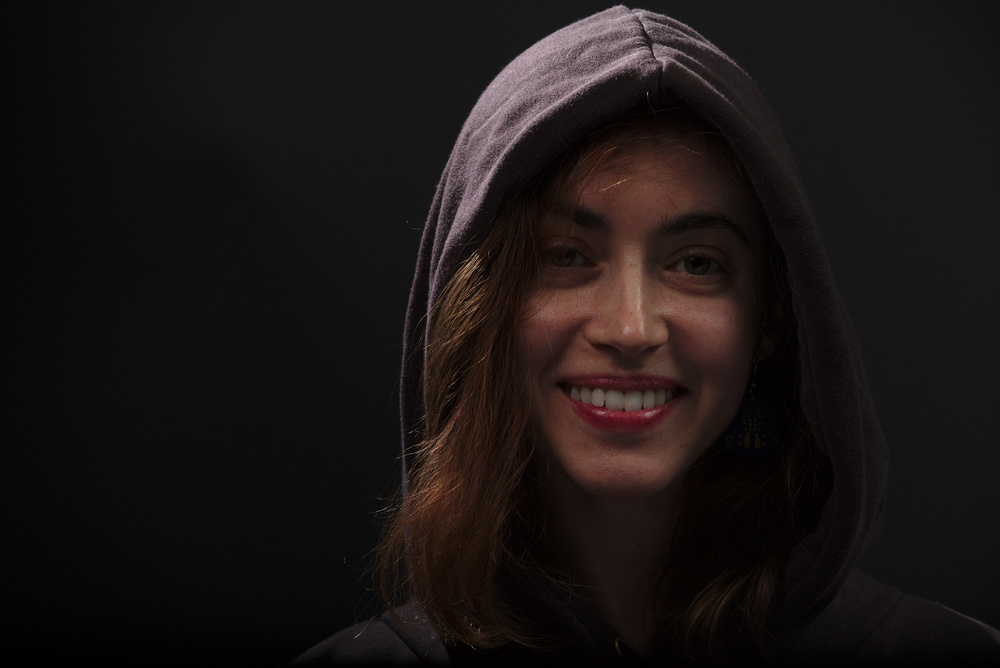
It’s a hacker!!
Bwahaha. Oh, commitment issues. You’re fun.
2. Van Gogh Museum, Oasis of Matisse, and oceans of bicycles in Amsterdam. Amsterdam feels like home. It’s so safe! So free! So cold in July! I want to have babies on bicycles here.
3. Amazing journalist-activist Brenno de Winter, who has been targeted by police for his “acts of journalism.” A new hero. A feeling of refuge. An incredible cook.
4. Art business insights from the kind folks at Berlin Noir by Checkpoint Charlie.
E.g., people do not want the bracelets on the shelf. They want the one on your arm. And they do not want the toy cars in the tray. They want the ones in the back that look like the ones out front.
Maybe people want what seems real? Or maybe we don’t know why they want those things, just that they want what they see. Like the stockings experiment that’s one of my favorites but I can’t find the citation for offhand… Nefarious researching researchers took identical stockings. Placed one, I imagine, on each arm. No—more proper. On benign objects, surely. And they had passersby in supermarkets feel them and say which they preferred. People can give you lots of reasons why they want what they want—and in this experiment, they did. But at the end of the day Woody Allen was right. The heart wants what it wants. (And people tend to prefer the stocking on the right, probably because of right-handedness and the effects of hand dominance on nerve ending development. That’s my guess, anyway.)
5. Running into Claas, a very cool organizational change consultant who steered me to Kunstraum Kreuzberg/Bethanien, a very cool artist space in Berlin.
6. Talking with music producer Ksenija Ladic. Ksenija offered a brilliant insight that I’m grateful for as an artist, that might help others who do independent creative-intellectual work, too. “The deadline is the performance,” she said. This works on several levels for me as someone who used to be pathologically deadline-oriented. But deadlines are, in fact, only performances—for most of us, most of the time. And performances—showing up to play—are deadlines, too. Collaborative art is beautiful that way.
7. Singing with Olaf Bahn in the park between Art Center Betanien and the East Side Gallery. Olaf is the Director of what he calls the First Offline Radio, Veganes Funkhaus Europa, which roughly translates as Fuck You European Vegans. This seems like as good a time as any to cite to recent research on how sarcasm is really good for you.
Anyway, Olaf was playing the guitar in the grass, and I started dancing and singing with him. We improv-ed a few songs that way that I wish I had written down now, as usual. My improv singing is my best, and it makes no sense because as an artist, I want it to be perfect, I want to compose, rewrite, produce, rehearse, and have it be so much better… But then that gets in my way. Just showing up and playing with other people is magical. Not only do I get over the crushing performance anxiety that sometimes keeps me from making a sound when I’m by myself. But I flow. Sometimes. Magic.
8. The discussion with a wonderful tutoring student thanks to my occasional employer Ingenius Prep that led to a fun interview idea. Invite: Eichmann, Arendt, Glenn Carle and Martha Nussbaum to debate similarities and differences between U.S. post-9/11 violations of international law and the violations thereof that landed Eichmann in Jerusalem. Is it weird that I want to make Eichmann and Arendt hand puppets, put on a suit that does not hide the fact that they are hand puppets, and interview Carle and Nussbaum that way? Or is it only weird that I would post that on a blog because I really, really want to actually do it even though I know it’s weird? (Sigh.) Message. Being on it.
9. Poetry book pretty much ready to publish after 10-12 years of writing, a year off and on of intensive rewriting, structuring, and new writing. I ended up combining what were my first and second poetry book manuscripts, along with a bunch of paintings from the last year or so. So the online version of the single poetry book coming out of that will be illustrated with paintings, and probably the print version will be unillustrated since it’s so much harder to make a properly illustrated, physical book… The online version might be free, I don’t know… But I know I’m happy this is coming along, grateful for help along the way, and excited to cross it off my list soon and move on to the next priority project(s). Showing up to my life as an artist. Doing my work. Being open to changing what that means, life and art being changeable things.
10. Completely accidentally having the time and mental space now to rewrite some of my dissertation research as (Continental hacker) conference and peer-reviewed (political science) article submissions. As soon as I figure out how to add these to my updated publications page, you can read the first one—on advancing equity in medical diagnosis—as a working paper, along with my Chaos Computing Camp lightning talk summary. And another reformed diss chunk/infosec conference paper/article draft—on a confirmation bias, why it matters in tech-mediated security decisions, and how to neutralize it in lie detection—will be out under submission and up on that page soon as well.
11. Recharging with new friends.
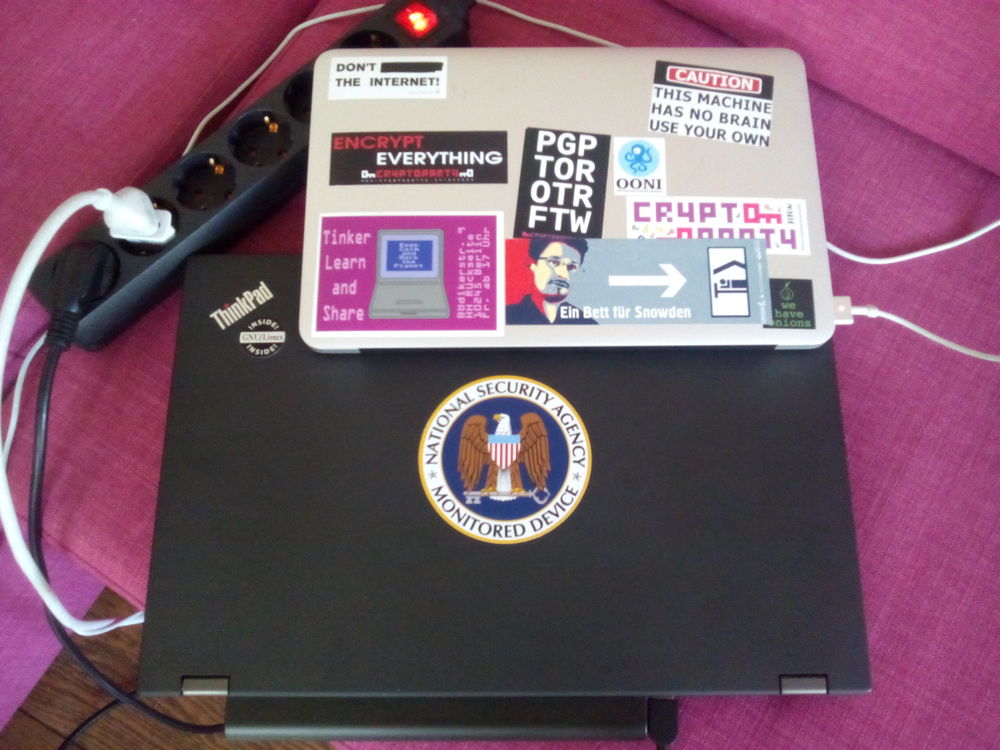
12. Too many things to be grateful for to limit them to one list.
13. Good direction on my one primary goal for the next month. Probably mostly from Lisbon, I’m going to hone in every day to the process of one of the following goals as primary—
– (Re)writing the apocryphal album, (re)learning to play and sing while playing the piano, learning music production on a free copy of Protools I should get any day now, recording the album, doing open mics. Showing up to play as a musician.
– (Re)writing a novel, probably pulling the screenplay draft I wrote last spring in LA, chopping it off at page 60, and adding a bunch of new stuff, both updating it with a bunch of crazy shit that’s happened since then and fictionalizing more so it’s more plausible.
– (Re)writing a nonfiction book, probably pulling a bunch from my old blog.
– (Re)writing a historical fiction collection of interviews that turns into a mystery novel, Interviews with Dead People, that I had also started on my last blog.
– (Re)writing and illustrating the first two in the children’s book series Where the Wilde Thinks Are, What Kind of Bird Am I? and Our House.
– Writing and illustrating the next two in that series, one on trust and justice as forgiveness, the other (or maybe the same one) on policing and the surveillance state.
– (Re)writing the critique of the surveillance state that may or may not have gotten me informally exiled, but I trust the universe, and it’s fine, it’s cool, I love the world, I have lots of friends who love me, I need very little and I am free. I feel so safe in Europe. I feel so at home in the Continental hacker community. And for the first time in my adult life, I feel worthy of love and like it’s actually only a matter of time before somebody kind and weird like me sees me for who I am, picks me up off the shore where I am only mildly dashed but completely autonomous and grateful to be here, and loves the shit out of me. I might even come around to talking about that fantasy in a sweeter way. As long as I can still do the punk-rocker hacktivist bit.
– Shut down all the defunct interrogation programs like I’ve been meaning to do since 2008, by planning, testing, and launching a Kickstarter with a clear call to action for this purpose.
– Pick a field experiment, any on my list of over a dozen field experiments I’ve been meaning to run. Find an organization that wants to pay me to run it. Have fun with that.
This choice must happen tonight. With 100% commitment. Or not.
This choice should be easy. I’m a writer first. What I want to do first is write. Writing makes me happy. I can do it anywhere. In fact, I have trouble sometimes making myself stop to do other things. I have in the past made money doing it. In fact, I have made five figures in half an hour doing it. (I gave it back.) Plus, I want to have published my first novel before I’m 30. At this point I have to settle for “while” instead of “before,” publish it myself, and do it before Thanksgiving or it’s not getting done. So probably I want to prioritize a novel draft. Just pick one and just do it. (Twitch, twitch. Must shut down defunct interrogation programs. Research question: Can I do that with a novel?)
But then a piece of me has always loved singing. I’m not getting any younger, and that matters for female artists even though I want to kick that little voice out of my head. And I worry if I find my voice, I can translate my poetry and politics for a mass audience like no one else—and if I don’t, I might hit the point I’ve reached a few times in the past, when I can barely make noise at all. And I can’t let myself be silenced, even if it’s only me doing the worst of it, because people are basically good. The world is basically good. I am basically good. And I am gonna show up and play.
So I still have to pick one priority goal for next month, commit to it 110%, set it in stone—perhaps literally, with the help of a laser cutter— and then finish clearing this month’s goals—the second article manuscript rewrite/submission and poetry book publication—stat…
And also work on all these as also-goals next month—
– Rewriting and submitting the psychophysiology chunk of my dissertation research to Psychophysiology already.
– Rewriting and submitting the public administration chunk of my dissertation research to Administration & Society already.
– Find a job that pays me money and stuff. (Research questions: Can I make money making art instead? Wasn’t that the plan? What about just not making money? How often do people literally starve to death in Western nations?)
– Find a place to live where I have a place to sleep that is mine and stuff.
– Briefly consider rearranging order of these secondary goals.
– Take an acting class. Find a theater family. Make pretty stories with my body and voice in this way, with
– Re-try stand-up again.
– Paint three painting commissions.
– Walk forever and ever, until my head clears with the summer sky and my thoughts fly like birds, not listless but without indentation.
Great Moments in Popular InfoSec, Installment #1
Information security is everywhere. It’s in the music we listen to on the radio, on and offline. In the water we drink when we’re not swigging mate soda like the hacktivist hipsters we are. And all over the Interwebs. I think the cats brought it in. This ongoing bloggular series examines its pawprints on the good carpet.
“No one on the corner has swagger like us/ Hit me on my burner prepaid wireless.”—MIA, “Paper Planes”
Q: How, oh how shall I communicate over phone lines that are relatively secure when the NSA is grabbing everyone’s metadata and perhaps even tapping my phone in particular since I went off on a surveillance state blogging binge last winter and the universe lost its shit?
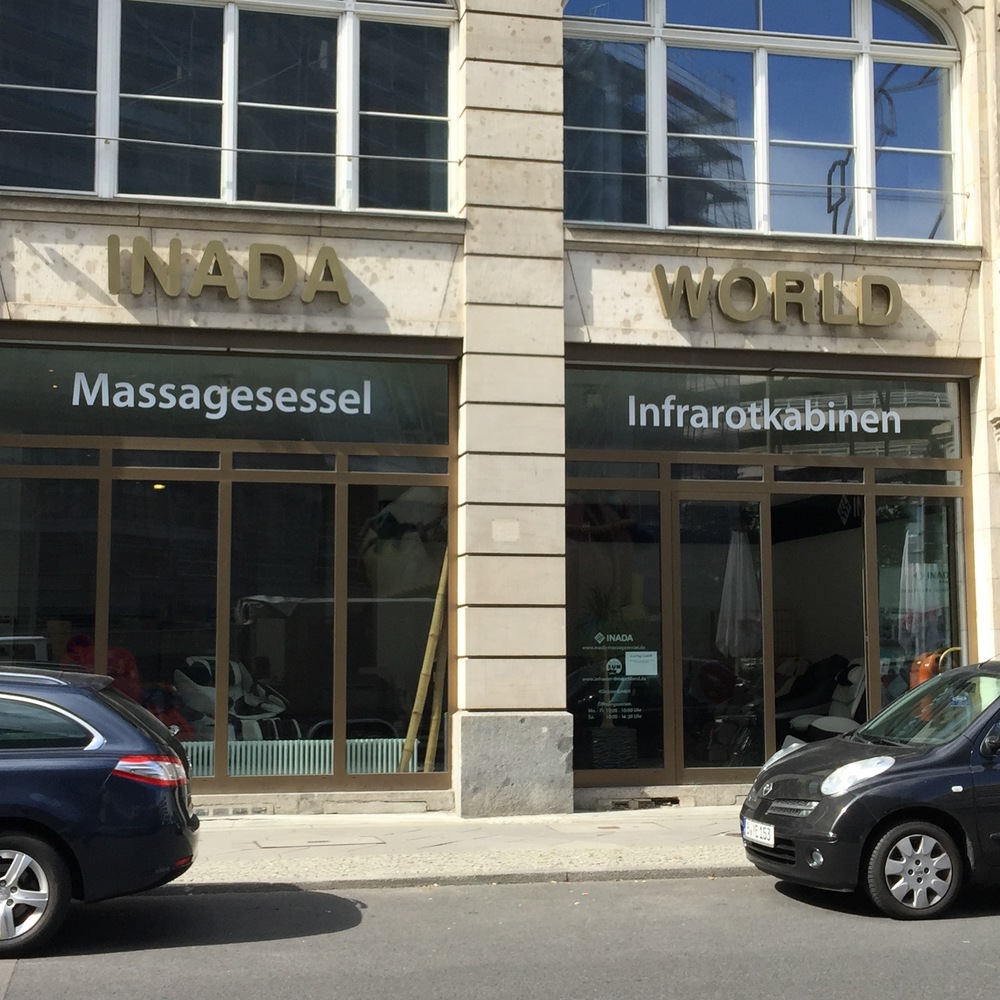
A: With a burner prepaid wireless. “Little poison for the system.”
How this works:
Step 1. Buy ten cheap used phones from a Pakistani vendor in East London. Share dates with him before Ramadan. Wonder aloud why he doesn’t do what he wants with his life if he doesn’t like running this shop—it’s really hard physical work, really long hours, and he had dreams—and he could have another job in four minutes with his language skills. Be reminded by his fearful response—“Oh, um, no, I was wrong, this is exactly what I want to be doing with my life forever never mind oops I misspoke kthankbai”—that you are a white chick with an American accent. Enjoy irony of fact that, while destitute, unemployed, and probably on some lists for criticizing the guvment, you, too, can still be mistaken for a possible spy while trying to have a human conversation!
Think of what you should’ve said to easily explain the burner prepaid wireless phones—a month too late: “I’m just a humble drug dealer!”
Sounds better than the truth, which is closer to: “I’m an itinerant poet-philosopher bouncing around foreign countries finding new friends on five-figure credit card debt and faith, scheming about how to make world peace through art! JOIN US!!!”
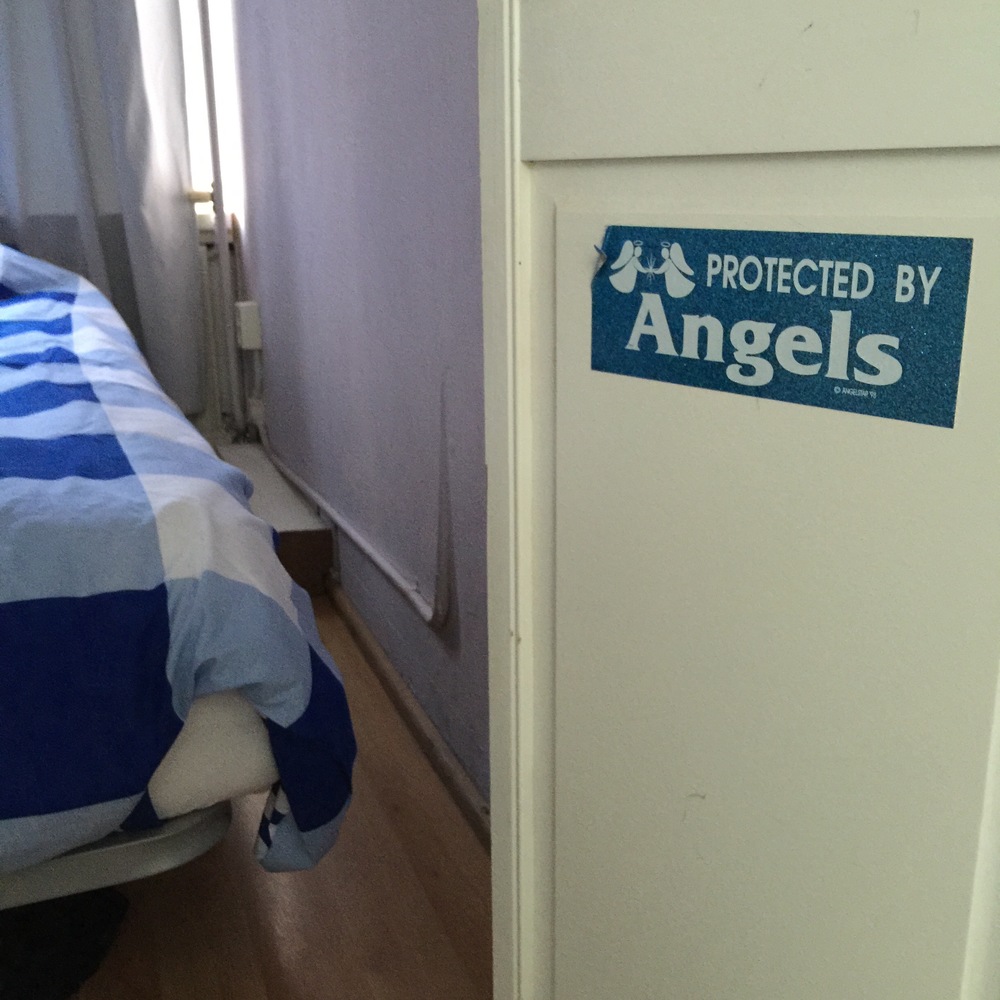
Step 2. Buy ten cheap used SIM cards on the Continent. Place one used SIM card in one used phone. Give one person the number. Use phone a maximum of four times, indoors only. Throw phone away. Go outside.
Step 3. Sing MIA to yourself while walking around a gorgeous lake trying to figure out what your #1 goal is for the next month, after hopefully finishing the first-net goals of rewriting and submitting two dissertation chunks as peer-reviewed articles and self-publishing a poetry book by the end of your first artist residency next week.
Realize the permissibility of the singing of the refrain “All I wanna do is—bangbangbangbangbangbang, caCHING!—take your money” is also reflective of your position of privilege as a petite white woman from a wealthy Western nation. In your mouth, the words even become a joke. “That’s so cute! Snow White is gonna take my money! Tehehe!! Honey, bring me a cup of coffee.” Fantasize briefly about at least momentarily appearing threatening. Laugh and smile involuntarily with a passing bicyclist.
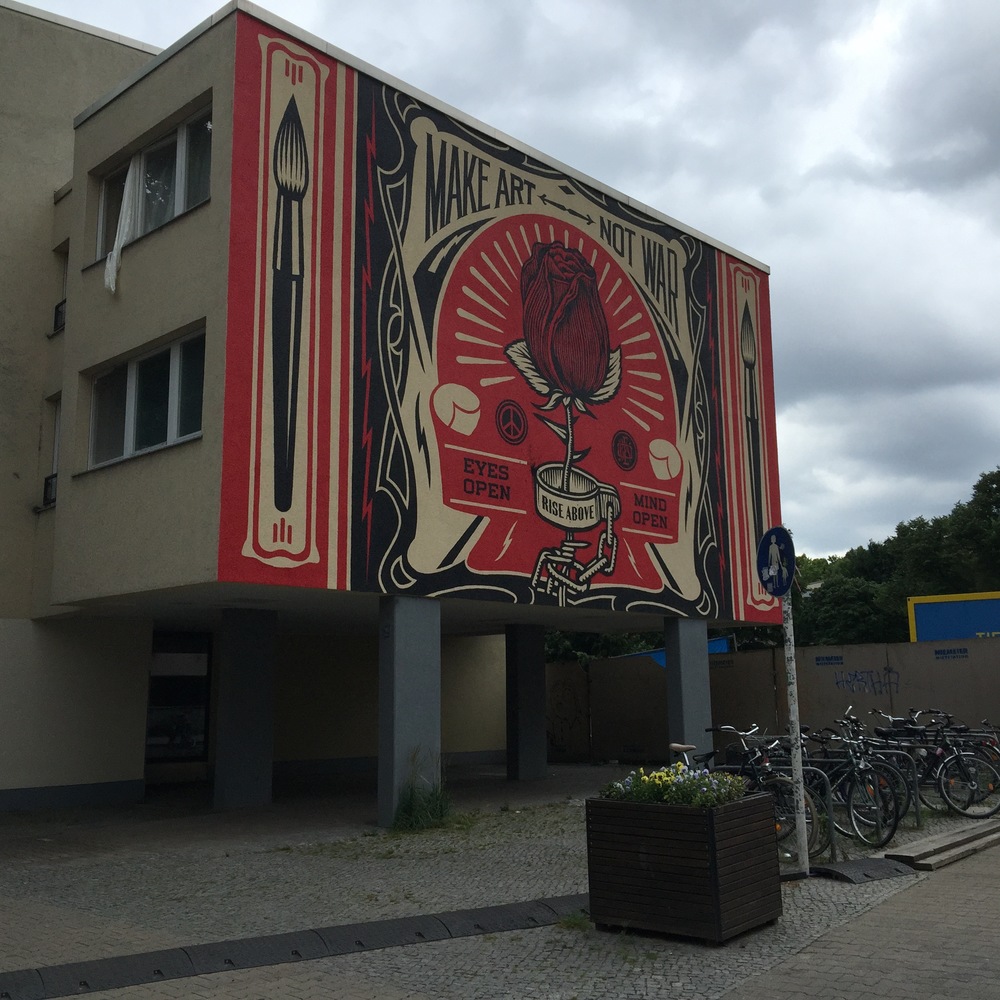
Step 4. ????
Step 5. PROFIT!!!!
Ten Things I’m Grateful for—Hack42 Edition
The first time I moved cross-country for my last job, from Virginia to LA, I made three lists every day for six months: gratitude, to-do, and doing/done. It kept me moored in positive thinking, next steps, and feeling productive.
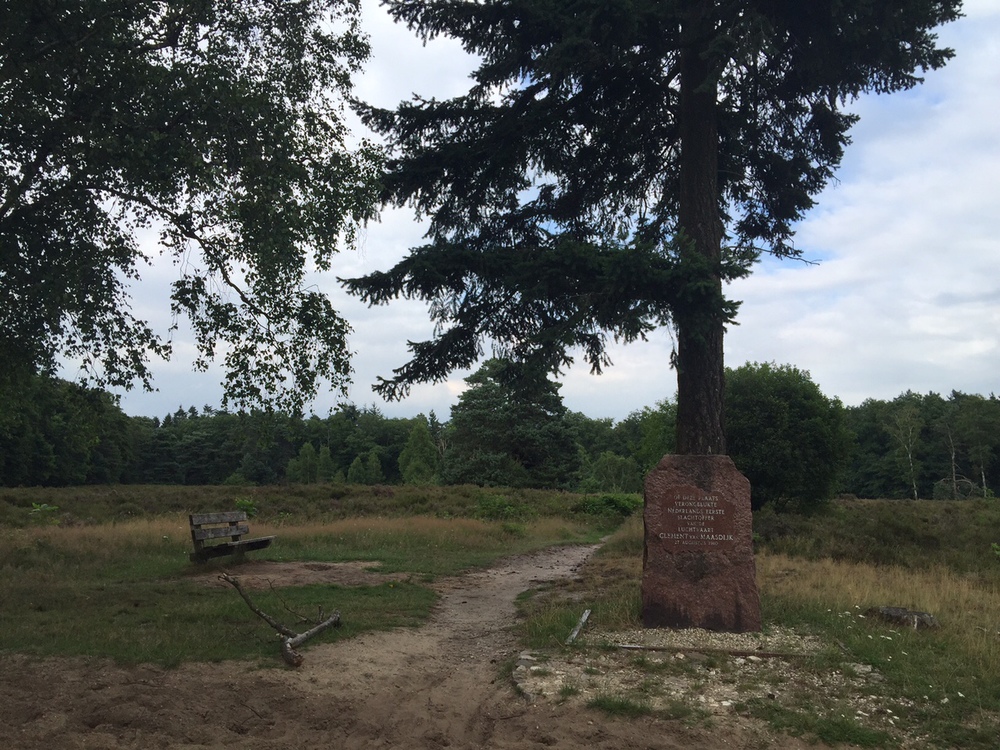
Since moving cross-country again for the job (LA to Boston), and then leaving Harvard to travel and make art, I’ve kept up the gratitude listing. It’s a powerful positive psychology exercise, like push-ups for the soul. But it’s been harder to figure out what I’ve got to do and have done—in part because this time seems to be like a thesis prospectus phase for my next career/life move. And in part because what I want more than anything is to go home, but I don’t know what that means or how to do it.
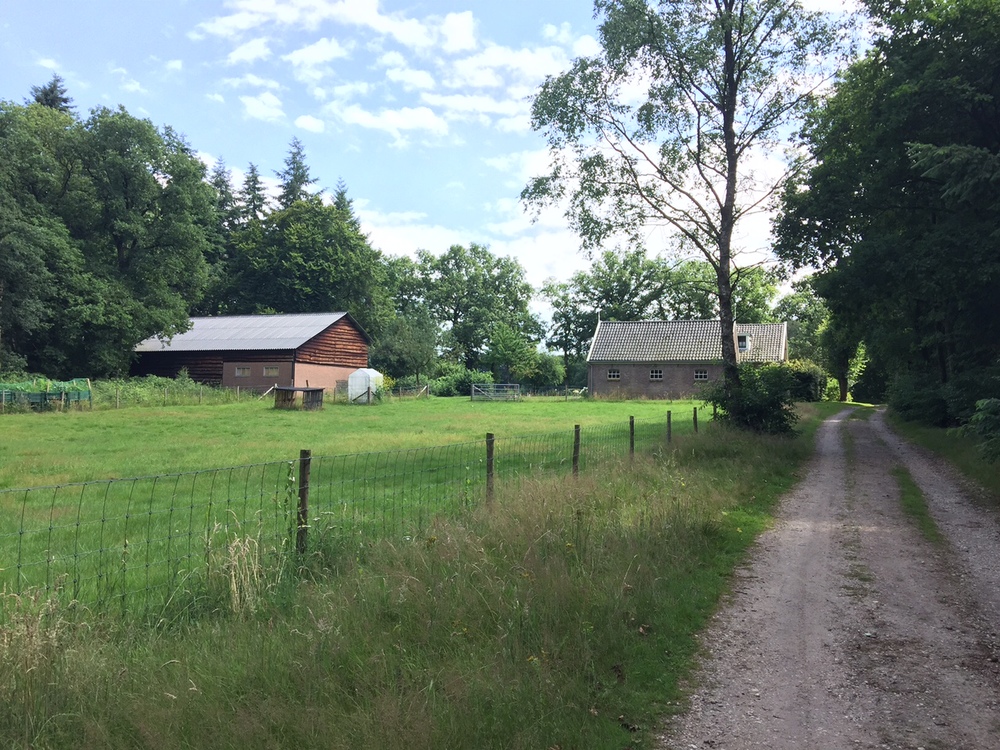
So I’m working on combining the gratitude-listing with the present-and-future orientation of the to-do and doing/done lists. That way I can feel grateful for already having some of the things I’m really only working towards. Also in control—ah, lists.
Here, then, are ten things I’m grateful for that also represent things I’m in the process of doing—and will be in the process of doing for quite some time.
Week before last, I was minding my own business, roaming the streets of London singing (softly). My friend George Maschke suggested I attend a Cryptoparty one night when I didn’t have an open mic or anything lined up, so I turned up. Fellow psychologist-singer Silkie Carlo happened to be co-teaching with fellow surveillance scholar Arjen Kamphuis, and they were both kindred spirits. So on a whim I signed up that night for the conference they were going to over the next few days…
2. Centre for Investigative Journalism Summer 2015 Conference.
We laughed, we cried, we got kicked out of the building by security in the middle of the night because apparently you can’t sleep there. (Maybe that was just me.)
Meeting other people who have made significant personal and professional sacrifices in the public interest because we believe in what we do was empowering and inspiring. It was weird to be introduced as a whistleblower. I don’t think of myself as a whistleblower. I think of myself as an artist. This led to lots of vibrant intellectual-creative exchanges—and my first artist-in-residence post…
3. Michael the Secret Producer and his angelic last-minute Couchsurfing hosting.
My penultimate night in London, two couchsurfing hosts fell through at the last minute. So I posted in the emergency last-minute group and waited at a Japanese café in East London, drinking cup after cup of free green tea with popped brown rice, frantically checking the site as the sun went down, and scribbling structure notes on my favorite albums as if to structure my own by example. Finally, when the waitstaff had moved me to a more out of way table and I had made a list of 30 original songs I could pick through, select from, and rewrite to construct an album I might like, I got a couchsurfing host. And after meeting a nice art dealer who was also waiting for a stranger outside the underground station, I met “Michael.”
Besides being an amazing couchsurfing host, cook, art aficionado, conversationalist, and fellow-traveler, “Michael” is one of the most successful music producers in the world. And he spent half the night listening to some of my terrible draft music recordings and helping me think about how to rewrite and produce my songs properly.
“Michael” could’ve told me not to quit my day job. I have gone through periods when I barely spoke, and still sometimes have trouble making noise in front of other people. I’m so acutely aware that it’s not that good—anything I can string together. Or at least, that sometimes the magic works and sometimes I should’ve stayed inside.
He encouraged me instead. It takes a powerful person to lift other people up in their dreams instead of pushing them down when they’re vulnerable and you’re powerful. And to do that while offering your hospitality wanting nothing back but community—that’s what couchsurfing is about, and the share economy, and life.
4. Graeme the Riverboat Vagabond and his developing Art & Agency School.
The night before heading to Holland, I slept on something like a partially constructed plank bed on a small riverboat on the Thames, thanks to Graeme the Riverboat Vagabond.
Graeme lives in a boat that is currently somewhere in or around London. He’s not only an amazing couchsurfing host, cook, problem-solver, and accordion player. But also a champion of amateur art across disciplines, and the way in which engaging in it symbolizes and encourages self-creation in other realms. Accordingly, he’s working on starting an art & agency school that I look forward to writing more about soon.
5. Artist Residency at Hack42.
I have space to paint, so I’m painting! I have a kitchen, so I’m cooking and eating! I have friends, so I’m playing!
Other than writing poetry and making lists, I’m writing and thinking a lot about my next possible larger project. It’s Portraits of Peace + Wtf Butterfly Kits, and I’m doing a lightening talk (maybe) at the CCC in Berlin in August (more on this next). On something like the latter piece of this. This blob.
Blob (Portraits of Peace) is evolving into two interrelated blobs celebrating and supporting everyday people who are part of the global refugee crisis or otherwise responding to political violence/oppression with peaceful resistance.
The first part involves painting and interviewing people who want to tell their stories. I’m especially interested in drawing positive selective attention to people who have done amazing things like fled Syria and opened their own business or otherwise found a way to keep moving forward on their dreams. How do I find these people to start piloting the concept, and how can the idea be honed/improved?
The second project or part of the same project, the idea is to make a reproducible (through 3D printers, USB drives, and such) art and information kit to aid peace-makers globally in keeping faith and sharing information security best practices. One of the things I’m really excited about including is a library of open source texts like canonical political theory and literature. But in translation as much as possible. And remade by people to their tastes as they pass it on…
I know Juan Cole’s Global Americana Institute does some awesome work translating American/Anglophone PT into Arabic… I’m on the hunt now for other translation project/bank analogues, if anyone knows of anything.
To be clear, I want more than anything to go home. This involves launching my art career and meeting someone, getting married, and having kids in my fantasy future. So my logical next step was clearly to run out into the Dutch woods, where I can make art with twigs and meet many different types of ants. While thinking about how to get bubbles and USB drives to peace-makers in Syria.
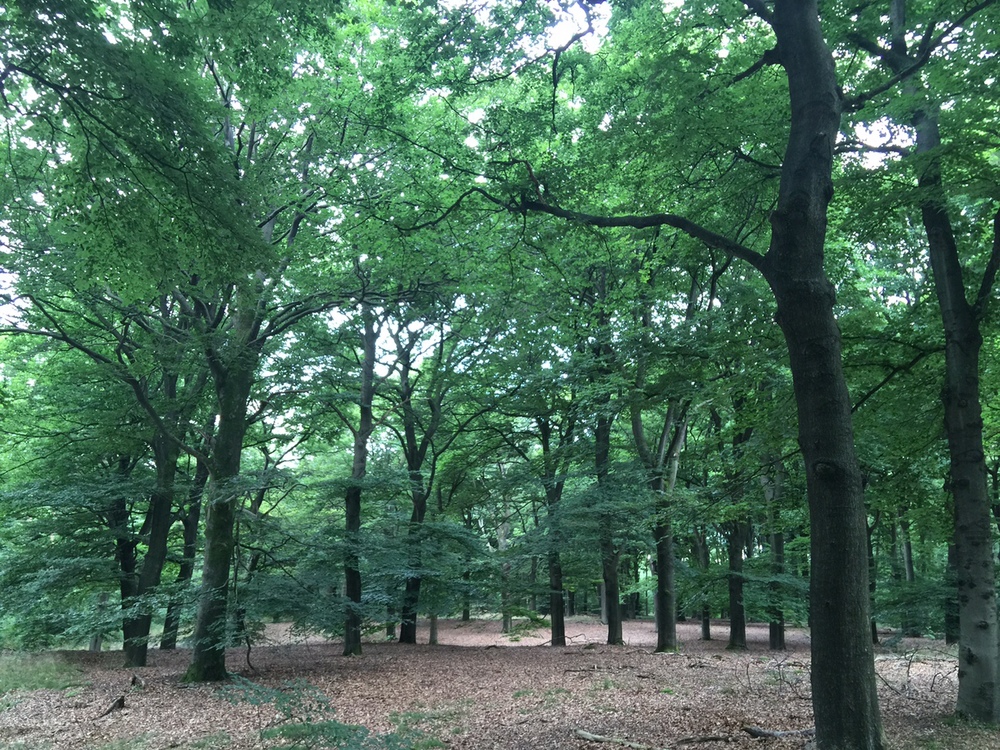
6. Upcoming Chaos Communication Camp and Lightning Talk.
CCC is in Berlin this August, and I’ll be giving a short talk on some of these ideas about rebranding the so-called dark web and spreading bubbles, infosec, and free books wherever people take risks for self-expression.
7. Jos the Lock-picking Master’s accidental lesson.
Last Friday night at Hack42, I scored an accidental lock-picking lesson with the best lock-picker in Europe. Lock-picking is amazing because it works on many levels as a metaphor for security and life. Locks—like any security measure based on mistrust rather than trust—don’t keep out anyone who really wants to get in. And lock-picking—like life—works best when you’re not thinking too hard about it. (Or so I hear when I’m not too busy thinking hard about it.)
8. Arnhem Nuclear Bunker Tour.
Yesterday at Hack42, SA007 gave me an amazing tour of a nuclear bunker here in Arnhem. I can’t post photos because they’re still not allowed—but I learned a lot about the history of public-private telecom partnerships that sheds new light on the context of mass surveillance—and the dangers of its costs in public trust.
9. A few good students—tutoring for InGenius Prep.
When I was in the process of leaving Harvard/UCLA to do my own things, a kindred Yale/UC Berkeley entrepreneur reached out to offer me a bit of work tutoring for his educational start-up. Noah Greenfield has given me his mentorship as a independent business-minded academic, the inspiration of his example as a start-up owner, scholar, and thinking religious person, and a few good students who remind me every week why I loved teaching, why I got a PhD.
10. Clarity of desires.
I worry that I don’t know what I want well enough to get it. That if I were to write something like a National Science Foundation grant proposal for my life, it wouldn’t get funded. The timetable isn’t clear. The budget is nonexistent. I don’t even know what hypotheses I’m testing. I want clear goals. One craft to hone. One dream to chase. Lacking this still, over four months after leaving academia to launch my own art business, I fire my ass. Then I remember I can’t fire my ass. I’m stuck with me. And I despair.
But I know that in one, five, ten years—I’m going to be a working artist running my own business, hopefully with a family and community that loves me. And when I look at what I’m grateful for that I already have, what I’m already doing, I can see that future budding. And I’m grateful.
I want to ask for help, but I want more to stay in this grateful space. And besides, who could help me know myself better, the better to check the baggage of an investigative series and postdoc at the art and entrepreneurship door?
Please. Help me if you can.
But I think I have to keep finding myself better by experiment, by ear and brushstroke. And remind myself I’m privileged to be on this adventure. Even, or perhaps especially, when I beg God to take me home and imagine that can mean something good of this world. That perhaps it already does. I can already be at home in the world, when I remember the world is our house.
Hack42 Artist-in-Residence Fun Has Begun
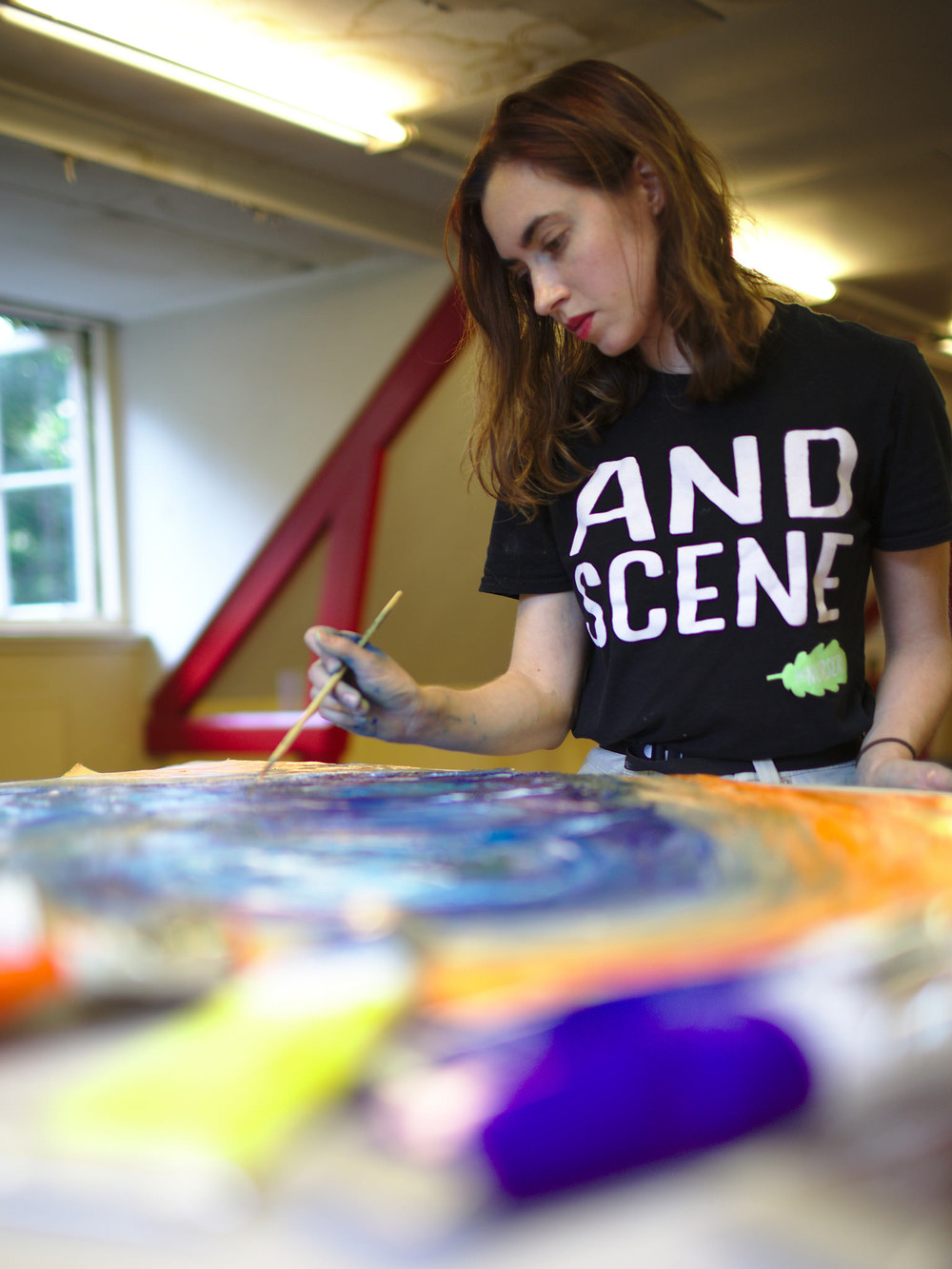
Happy Sunday from Arnhem, Netherlands, where I’m enjoying my first artist-in-residence post at hacktivist collective and general creative-intellectual sanctuary Hack42. Read more about my work here rebranding the so-called Dark-Web with technology & policy thought leaders, painting, and frolicking around in the woods with a notebook.
Heading into the Woods to Make Art
As I wrote yesterday in my latest email newsletter update, I’m heading out into the woods this week to make art and friends for three weeks as artist-in-residence at hacktivist collective Hack42 in the woods outside Amsterdam.
Blog posting will probably be lighter as flow state art production will probably be heavier. Though I still have yet to commit to what exactly that means, and welcome suggestions as always.
Thank you, again, to everyone who has helped me. Whether our paths crossed briefly or at length, in person or through literature or some other alternate reality; whether you had to tango with my awesome stubbornness and partial silence, or only caught the exploding joy that also studs the landscape of my life—I’ve learned from you and gratefully take a piece of our being together with me into the unknown next. Out of the woods and into the forest.
Brighton Paintings
Some people can tell you exactly how long it’s been since they had sex, ate, or cleaned the tub. I can tell you exactly how long it’s been since I painted, or sang, or wrote a poem. 03/27 oils/last Friday acrylics. Last Thursday singing, and I’m about to take that video down, it’s embarrassing. Yesterday, the snippet capture—”I have searched my soul for a singular calling,/The only answer a feeling of falling.”
Sometimes, I think artists are just collectors of stray thoughts and pictures. I read the Bible every day, and it’s all in there. Every bit of poetry and philosophy. I’m reading the complete Shakespeare this year, and it’s all in there. Every story, all of modern psychology. People think artists do something new, but it’s impossible to do anything new. (Even that is Ecclesiastes.) We just curate the universal deluge in such a way that a face comes through the forest.
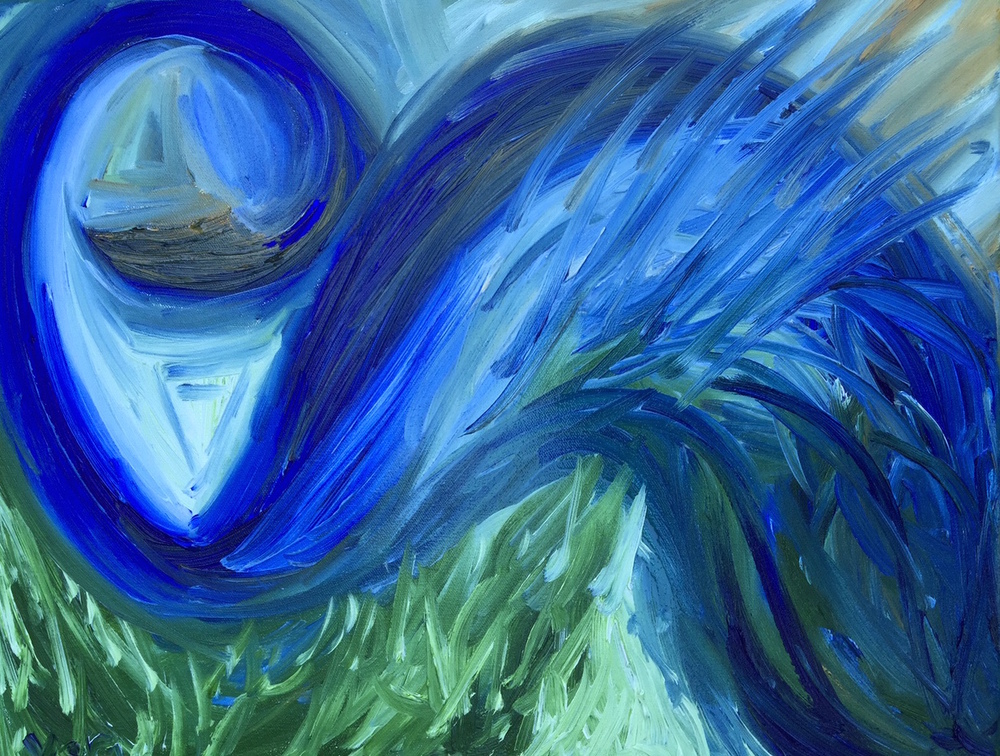
Anyway, the deluge got to me and I painted today despite not knowing where I’m sleeping tonight or where I’m going, when. Brighton is sunny and calm like that.
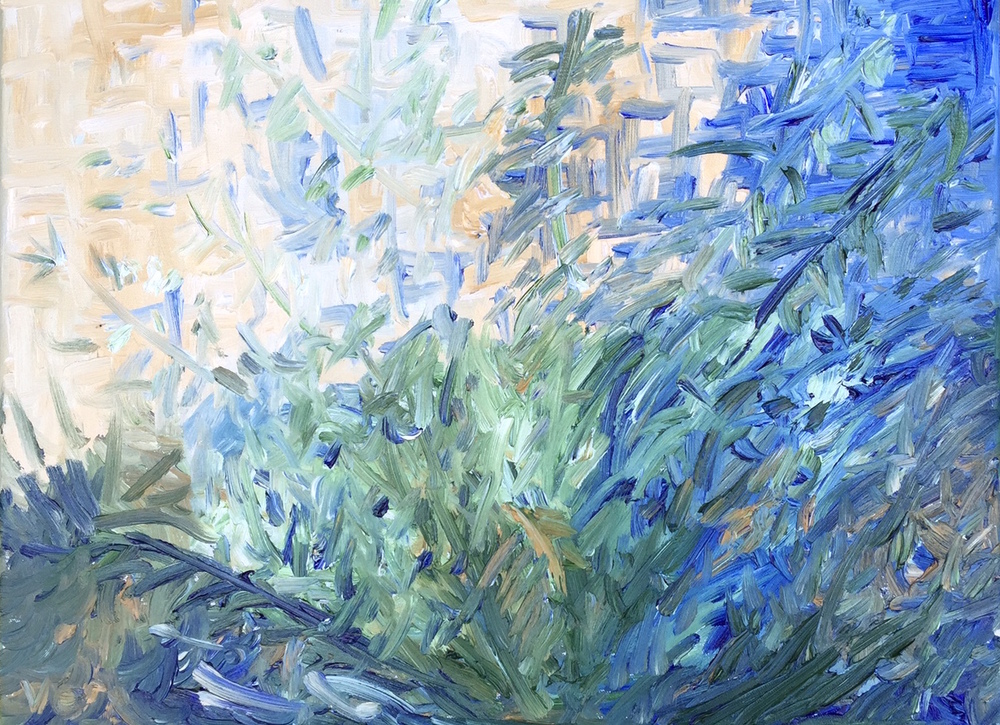
Now if I could just figure out how to sell oil paintings I make and store in random kind people’s homes around the world.
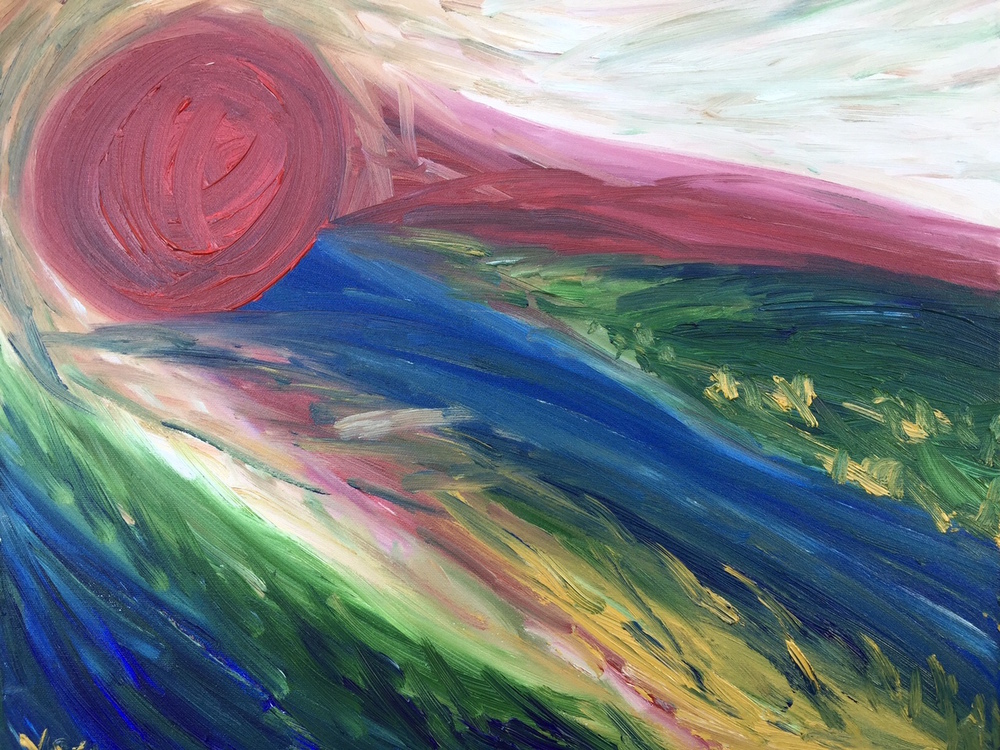
Or find more canvas.
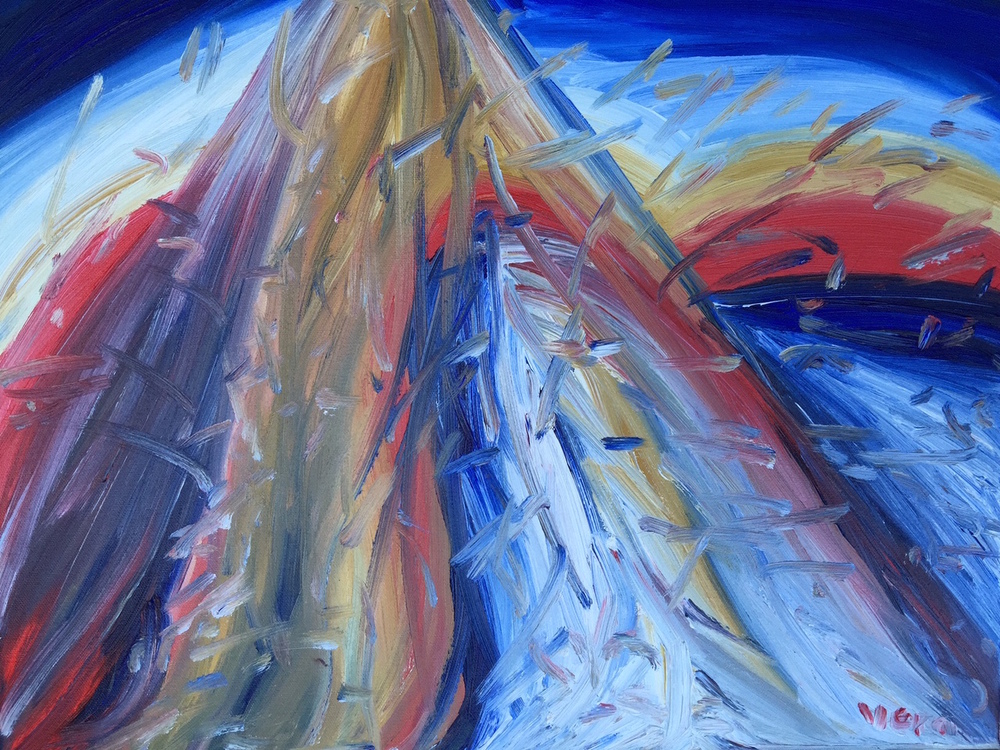
Options, Goals, and a Midsummer Work Schedule
I’m making good headway on all sorts of things, and I’d like feedback as I decide between four options, (re)set short- and medium-term goals, and formalize (for myself) a work schedule for the rest of the summer.
Pretend you’re my manager and tell me what I need to do differently or better. (Don’t worry. I listen but often disregard directions.)
Success
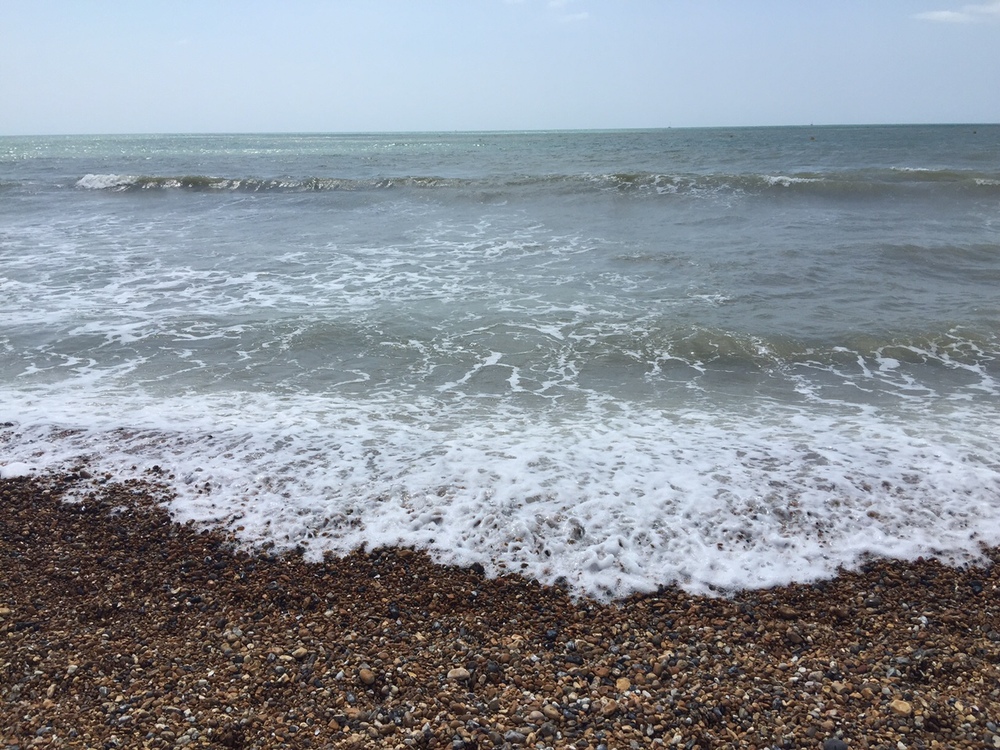
Tonight I’m sleeping on a lovely development studies researcher’s couch in Brighton. I met her on the Tube on the way to my last couchsurfing place. So technically you might say I am homeless and sleeping with strangers (but not like that). Not where I’d like to be after being in a new country for a whole month.
But actually, I am kicking butt. Here are five awesome things I have done in the past month:
1. Executed a transcontinental move alone with no job, partner, or place to go.
2. Done improv, stand-up comedy, and singing in public. With people watching and listening. On stages. Out loud.
3. Started couchsurfing alone… Going with the flow of people and places, beginning to learn the lay of the land. Left and right and all.
4. Painted in public. With people watching and questioning. On the Thames.
5. Realized what is the one thing I have to do when I’m upset or destressing, on a deadline or have all the time in the world, or happy and can do anything in the world. The thing is painting. It is so hard for me to admit I Just want to paint. I don’t know anyone who makes a living as an artist, a visual artist, much less a painter. So I had concluded that was the wrong model, the wrong way of channeling the impulse.
But that skips a few steps. Like, ten years of trying. Giving the world half a chance to value me for what I do. Getting better at knowing what that is and doing it well.
To be fair, I started exhibiting my paintings ten years ago. At my first opening, an unknown buyer (a woman, not a suitor) bought a 16” x 20” for almost $300. When I opened an Etsy store in May, I sold 9 paintings in 4 weeks (and then put the remainder in storage).
When I have taken my work to market, there has always been a market there for it. In the interim—the ten years since my first show—I didn’t take the work to market as much as I could’ve. Instead, I got discouraged on one hand, and distracted getting a PhD on the other.
But I kept creating and getting better while writing a dissertation, some articles, a poetry book, and an album’s worth of songs… And anyway I think now I have to value myself and what I do enough to try again to give the world half a chance to value me for it.
Or, in business parlance, make my elevator pitch clear. Pitch my goods and services to the right markets in the right way. Be sure they see the value and know how to pay me for it. Clarify the call to action. All that jazz.
Meanwhile, I have now identified one very specific thing that I do as an artist and entrepreneur—painting. And one very specific logistical problem to just doing what I have to do—space. I need space where I can make a mess and store wet paintings. (It would also be great if I could sleep there.)
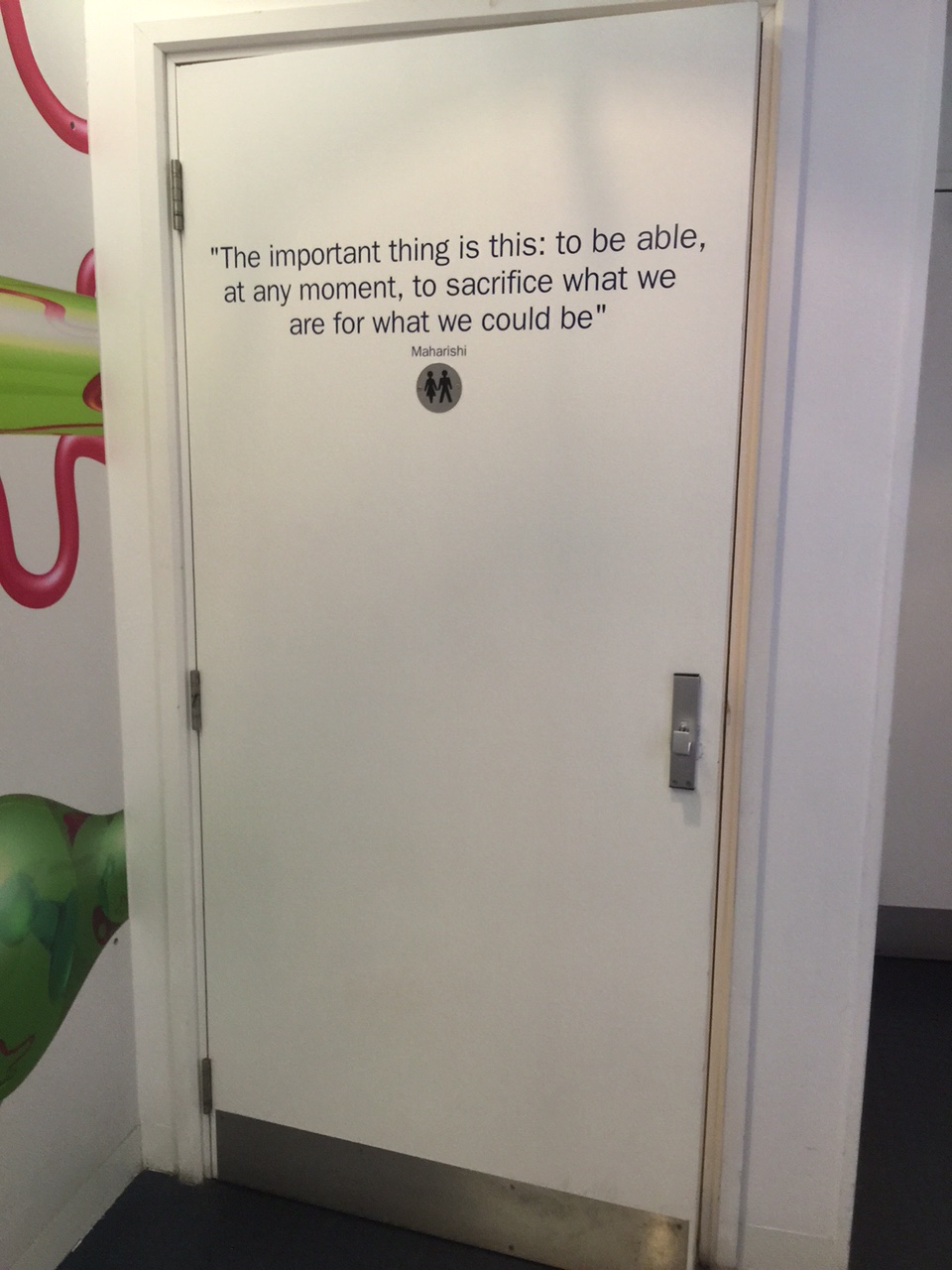
Since I honed my desire to be a jobbing artist and run my own business into this more specific desire, two specific and two general options for getting the space I need to do it have appeared or become clearer. I’d like feedback on those options, and on the goals and schedule I intend to implement once the space thing is at least settled for more than one night at a time.
Space Options
1. The South Galleries—a lovely art gallery near London, in Maidstone. I could keep the gallery open and use the space to paint. If I could get good enough advice from online message boards about how to teach at the gallery’s school within the terms of my visa, I could do that too.
Pro: Right field, nice people, free space to paint and store paintings, opportunity to learn how galleries work and sell work in one, close enough to London to take the train in for open mics, gallery openings, pitching, meetings, plays.
Con: I might be too messy (I oil paint and generally end up covered in the stuff). It might be too far from London to optimize networking. I don’t know where I would sleep. So it doesn’t give me my own artist hermit-hole in which to create undisturbed, which might be more specifically what I need. Even though another awesome thing I’ve done lately is be out of my hermit-hole all the time when I used to only go out for work and orange juice.
2. Hacktivist collective on the Continent.
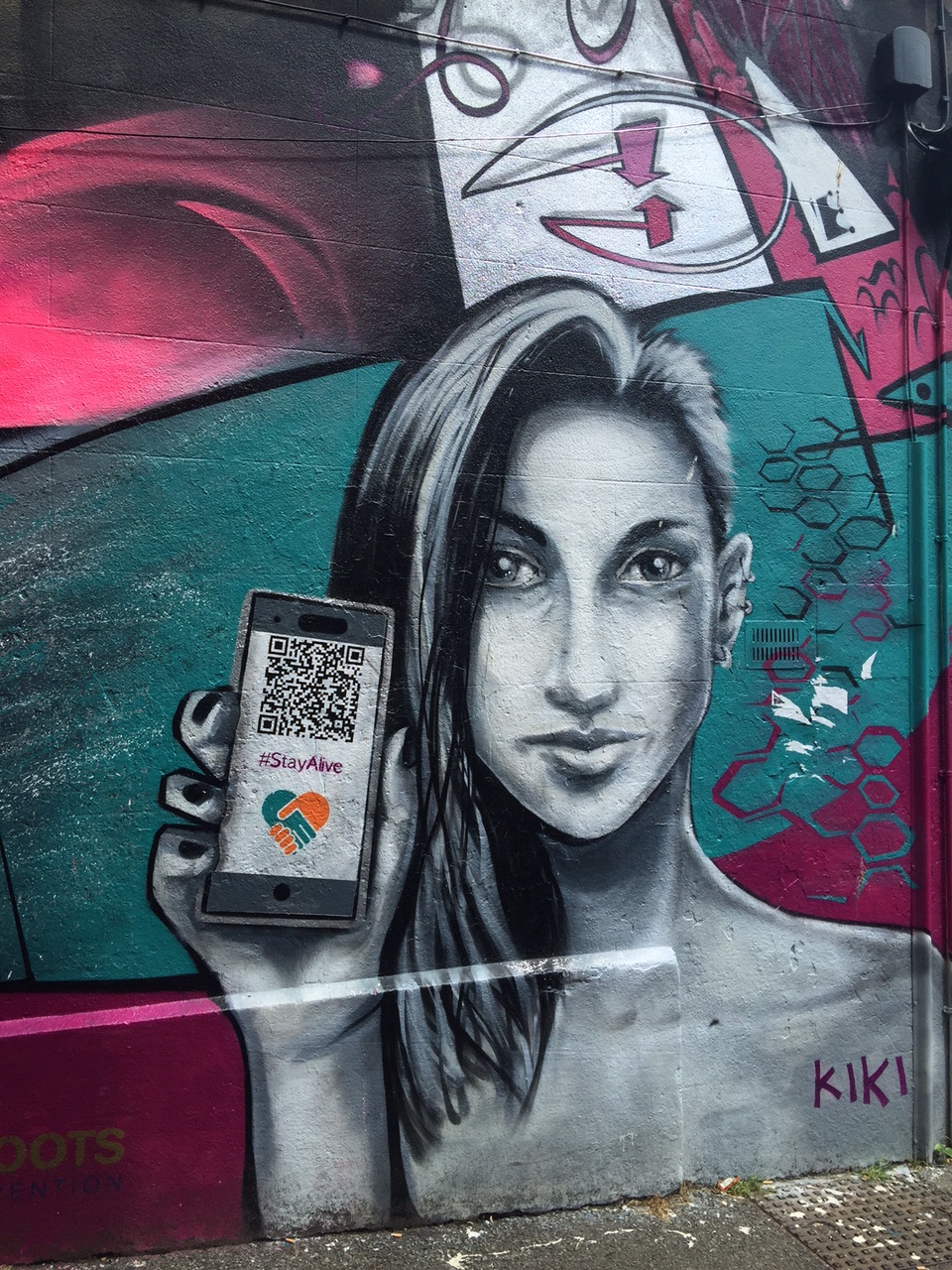
Pro: People I can talk with about my transparency activism and political philosophy, learn from about encryption and other infosec stuff I need to know for my germinating Portraits of Peace project, people who might like and know people who might like some of my relevant political art (e.g., the Too Big to Surveil series), probable opportunity to see more awesome Continental painting, learn more languages, do different public art experiments, sing at different open mics, and enjoy lower cost of living.
Con: I might be more isolated outside of a big city, in a country where I don’t speak the language, with a group I don’t really know (but trust). I might not be able to ship paintings as easily if I got an online painting business up and running again.
3. East and outer London. These are the best areas for a London artist of no means to live. I could research studio and live-work space shares in these areas. I’ve banged around talking to people and trying to figure it out, but not approached this one thing like it’s my #1 job.
Pro: Big city market. Vibrant arts and culture scene. Lots of open mic, gallery opportunities. Busking is legal in public spaces. Probably tons of options I don’t know about here. Felt good enough about London to haul myself here. Must be for a good reason, right?
Con: Cost of living is high. The city is not known for being particularly forgiving. But I keep finding nice people and safe couches, so I can’t complain. No specific anchor of person or place. This is such a general option…
4. Brighton and surrounding areas. Ditto.
Pro: Largest number of working artists I’ve ever seen, from the railway station—where I talked with a nice corporate businessman-turned-small shopkeeper with the most beautiful cubist tattoo, and played and sang with a bunch of strangers on the horribly out of tune piano—to the beach and city center. This must be the Santa Fe of Britain.
Con: Smaller market, more supply of artists than demand for their work (such is an artist haven). No specific anchor of person or place. Less known about this one than London—starting over in terms of reorienting, beginning to learn lay of land. But it feels good, too. These options actually all feel good. But it’s a little hard to know exactly how I feel. I need to paint to know that.
Re-Setting Short and Medium-Term Goals
My work schedules are typically not feasible. I keep making them anyway, attempting them, failing, remaking them… And stuff keeps getting done. Now with 80% less saturated fat and self-loathing!
6-7 AM exercise, eat
7-9 write
9-11 sing
11-12 eat, email
12-5 paint
PM: target 3-5 open mics a week, singing my own songs plus some covers; online art business stuff
This schedule serves these short- and medium-term targets:
– Minimum 1 gallery pitch, opening, or new public art experiment a week—starting next week, so by July 15.
– 100 paintings in a month à reopening active online store for ecommerce—by August 9.
– Secure space to create those paintings within a week—by July 15.
– Minimum 10 painting sales in a month—by August 9.
– (Re)Write, (re)illustrate, self-publish first two of the illustrated children’s book series Where the Wilde Thinks Are within two months—so by September 9. At least on Kindle and CreateSpace, maybe on other digital platforms too.
– The apocryphal album recorded in three months—by October 9.
– Have a pilot/beginnings of a portfolio for the Portraits of Peace series within one month—by August 9.
– Have a product of the series within 1 year—by July 9, 2016—in book form, or an online series that’s a fuller portfolio I can use to get freelance art jobs, pitch galleries, and do other stuff with I can’t even imagine just now. (E.g., there’s a field experimental component of the project incorporating some positive psych stuff like from Pennebaker’s work on expressive writing that I haven’t hashed out yet. I want to listen deeply and see what feels right in the context of people’s stories first.)
Money as a target and how I will make it:
– This is the thing I have always been bad at so much as thinking about as an artist. Let’s correct that error now. Again. Or blog trying.
– I’d like to pay off my attempted business launch/move debts and have money to make art and travel. Ideally I’d make something like $110k/year. But most businesses take years to turn a profit. So setting a short-term goal that’s specific feels really weird. Overly optimistic. But I have to get better at doing it or it’s not going to happen.
– There are six relatively immediate ways to monetize my art:
o 1. selling paintings online and in person, getting a better sense of my market and pitching to them better,
o 2. making prints and postcards to sell at markets or openings,
o 3. properly illustrating and self-publishing the Wilde Thinks children’s book series,
o 4. teaching (although I start to worry about the visa issue with this—there has to be a way for people to legally teach in other countries as they travel, but I’m not sure how this all works and want to follow the rules),
o 5. working on the Portraits of Peace peace-maker interview and painting series, perhaps starting with Syrian refugees or folks who have come back from the war in London (Eliot Higgins says he can try to get me in touch with some relevant folks to do a pilot/get started on this—I’m happy if other folks can too), and
o 6. offer painting-photography portraits
Clearly formatting is not one of the things I will be getting paid for in this life. Also modeling.
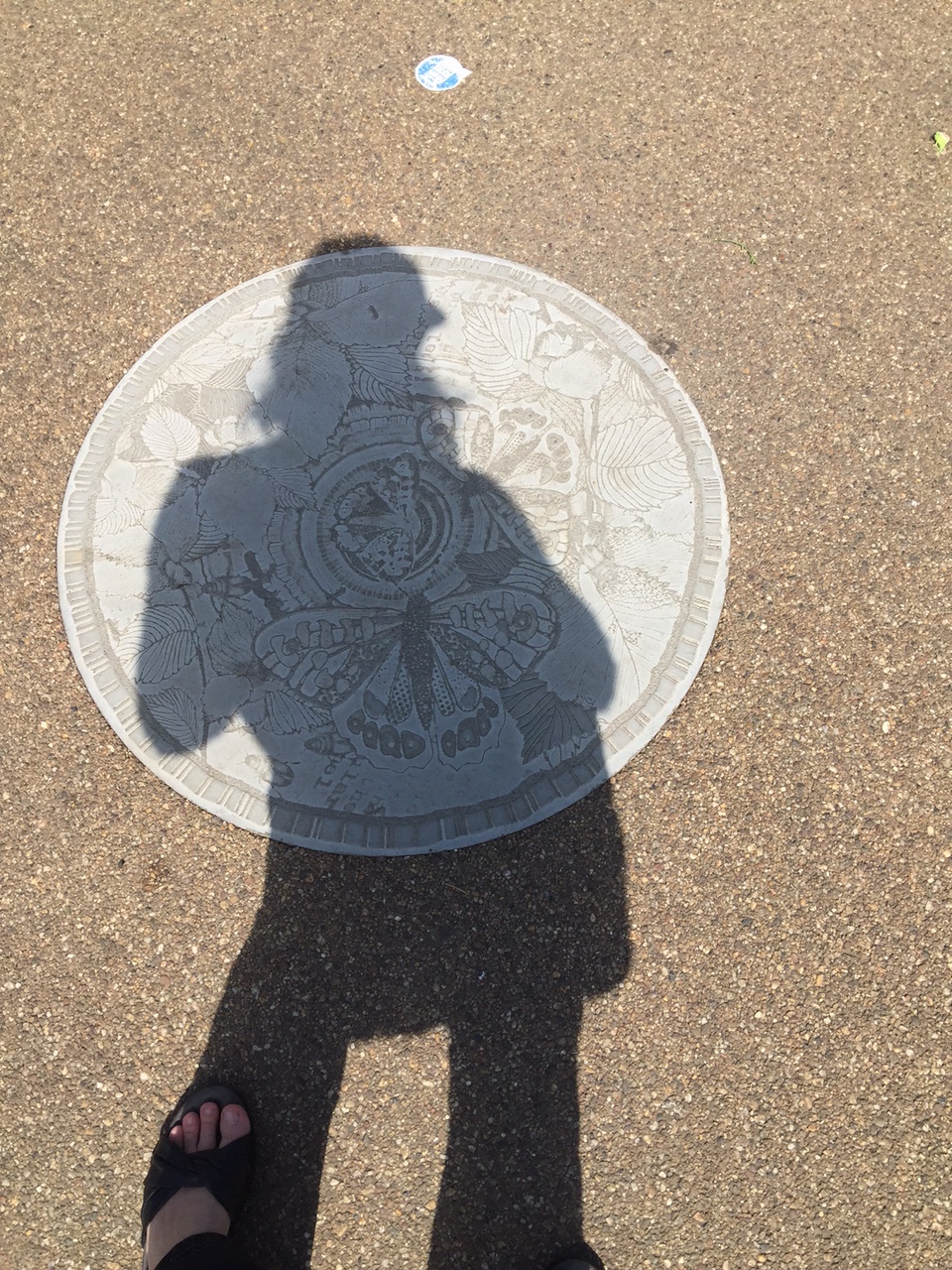
Just painting and selling the paintings online as best I can seems like the simplest, most obvious thing here. Re-launching an online oil painting store has got to be the most analogue, weird, inefficient way possible to be a digital nomad. But it’s what I think I have to try next.
I don’t know if I’m doing it all wrong, but this is what I’m doing. I want to be a jobbing artist, run my own successful business, and be loved. Just doing what I have to do as an artist in a space where I’m allowed to make a mess—but keep getting out plenty meeting nice people like I have been—seems like a good place to start.
Let me know what you think in the comments, via Facebook, or send me an email.
Full Song Performance Video
At last! My full song performance video has come along. From the lovely open mic last week where I got three nice people to film five songs on different devices, and still didn’t manage to walk away with a video. I am a multimedia mastermind.
Now someone else please watch/listen and critique this so I don’t have to. That was the whole idea, and it’s gonna be so painful. I can’t right now. Just tell me how to be better.
Story, Emotion, and Action
Story causes emotion causes action. Or so I think, in the continuing thought experiment in which I recognize how thought shapes reality and make a new life for myself accordingly.
So I’m trying to get my story straight so I know what to say when people ask me who I am and what I’m doing. Instead of immediately thinking to myself, That is such a good question.
Story
Narrative is tricky. What is going on? What am I doing? What was I thinking and how did I wind up feeling closer to being at home than ever before, with the exception of driving and camping alone across the U.S.—but perhaps technically homeless, or more accurately, housing insecure, in a foreign country with no job or ability to legally work?
Possible narrative spines include:
1. Artist leaves stable academic life to become self as artist. Suffering and adventure ensue. Will our brave (or not so brave) protagonist succeed in identifying, articulating, and honing her desires into discrete goals with concrete timetables and outcomes, to generate means-specific yet adaptable plans for attaining those goals? Or will she perhaps try instead to deny that painters need a place to paint and poets need to write poetry, because those things are impractical?
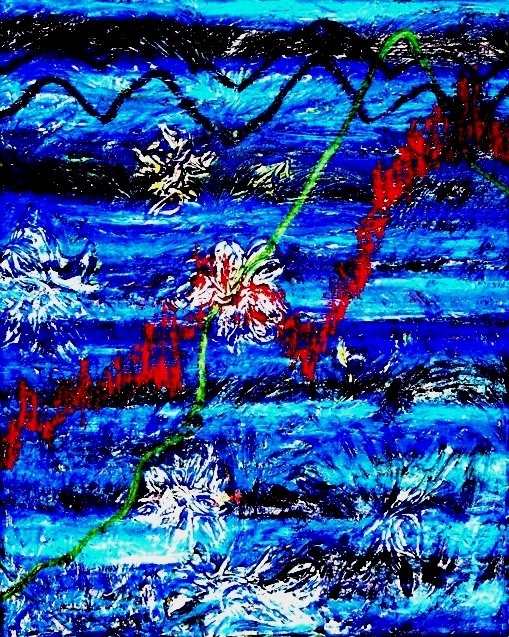
2. Researcher angers Defense establishment by loudly and repeatedly pointing out she proved by releasing and distributing open-source documents that they lied to Congress about their interrogation programs—and it is very bad to lie to Congress, very bad to lie to Congress, very bad to lie to Congress—outs self as the person who did that (how did they not already know?), and is subjected to the technically legal version of contemporary domestic psychops.
The Stasi used to break into people’s homes to move stuff around, to convince them they were going crazy. Defense stops short of breaking and entering. Also, they’re kinda cute. Xo.
Then what? You have to show not tell how this works to even begin to sketch what happened, and that requires playwriting or screenwriting, story-making. Maybe they win if you’re defined by that kind of experience though—and you have to invest in the telling to tell that story, because you have to do it really well and really carefully or you sound crazy and it compounds the burn—instead of just walking away going huh, good game. I abhor evil, but who doesn’t appreciate a good punk? I mean, maybe people who value effective freedom of the press? All five of them. And they’re still busy reading the Snowden documents.
So this is isolating. It’s called a burn because it burns your social network and assets. But lots of life experiences are isolating and isolation doesn’t kill you if you get up and move on. And I can, because I didn’t break any laws and I left. And thank you for showing me my vulnerabilities. They’re just normal human vulnerabilities like the desire to be loved and the wish to keep other people safe. I’m not the one who has to live with playing on them to hurt someone else in the name of security. When we know from evidence-based research that actually, compromising liberty degrades security.
3. Beyond broke, underweight, unemployable in her area of expertise, and lacking the kind of perfect clarity really successful people seem to have about their goals, mercilessly impractical waif of dubious pedigree and intolerably sad eyes who changed her name to Wilde and read The Complete Wilde moves to London to read The Complete Shakespeare. Runs out credit trying to figure out what’s next, following the law by not working without a work permit, trying to figure out how to make art and travel while making money online (because that’s legal and lets me be free). (I’m working on the eyes.)
4. Smart, nice, attractive lady—former model, non-profit leader, and Harvard postdoc—starts a new life by changing her name and moving across the country a few times. Then gets back in touch with all her family after years of silence—clearing the way for connection, yet remaining isolated and disconnected. Turns that weakness into a strength—the complete freedom of nobody caring. Starts a new life again by leaving her day job and country to travel and make art. Goes where she wants to go, does what she wants to do, finds friends and her way.
5. Poet deigns to languish./Water doesn’t need sunlight or fish.
Feelings are supposed to help you choose between narratives. Research on motivated reasoning suggests, in fact, people can’t make decisions without emotion—it’s feeling that helps us decide. But feelings are tricky, too. How do I feel?
Emotion
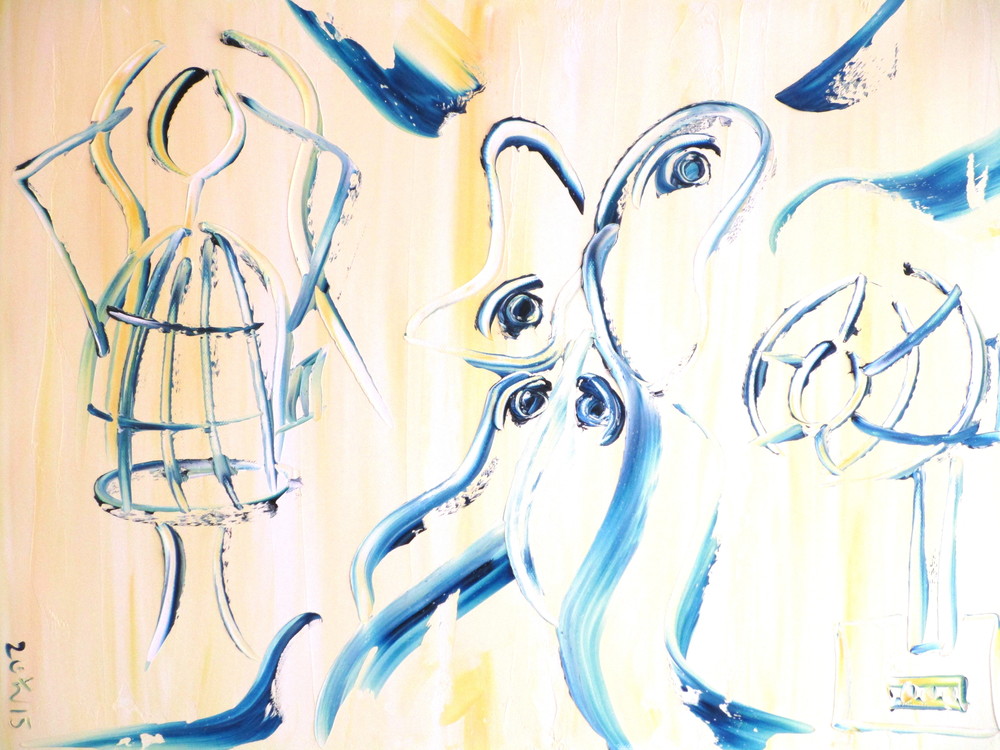
Possible emotional ecosystems of truthful resonance include:
1. Grounded elation. I’m a funny-looking little girl from Alabama in the Europe making art and friends. This is exactly what I’ve always wanted. I need more of a social justice component to what I’m doing to be happy, but first space, and I think I’ll work on that next. I like the anti-surveillance, secrecy, repression underground, so I think I’ll pitch to that niche market in my art next. Maybe the dark net needs an artist. I certainly need the dark net to talk to people who bureaucrats arbitrarily classify sometimes as terrorists and sometimes as freedom fighters, when I’ve already been under surveillance myself. So I have good direction and next steps.
2. Resigned despair. I’m thirty and I haven’t published a book or had a baby. That officially makes me a non-person as a writer and a woman. (Feeling not belief, mind you. Thank God today I have no manuscript to edit on deadline and no butt to wipe but my own.)
3. Crushing fear. What if I have nothing of value to offer the world? What if I can never articulate or put to use my big-picture insights because I am so visual and big-picture, yet so dyslexic I can’t take the IAT or find my way around my own neighborhood without a map—which is it, brain, high or low visual intelligence? So non-verbal and yet so hypergraphic, I’ve gone months at a time barely speaking yet routinely write thousands of words a day as if it’s how I think—but which is it, wordless or wordy? I make no sense as a character. Call the editor to complain. First be sure to freeze in worthlessness with me. Now mask it. Smile. Bring in the eyes, too. Good.
4. Impatient frustration (with myself). What about that poetry book I was trying to get published, or that performance anxiety I was working on overcoming in my music, or that pipe dream of acting outside community theater I was going to explore in the big city? Maybe I should re-timetable all the things and worry more about doing little next-steps than planning outcomes I can’t control or honing desires I’m not done exploring? Is that immature or is that facing reality head-on? Is it unfocused or is it showing up to what it means to be an artist?
5. Relaxed gratitude. What an adventure I’m lucky to be on now. How I’m shining although I don’t see how it helps the world, where my passion and caring are going to meet people’s needs to make their lives better while building something of my own. Something that lasts.
So What?
That emotions list is supposed to help me with that story list in a way that helps me make better goals and plans. But I don’t know how.
This is what I know. Time is money and I’ve bought mine on credit. It’s terrifying. But it was the right thing to do. I don’t know what I’m doing. But it was the only thing to do.
If I was burned—and perhaps one shouldn’t speak of such things, in particular if one actually has faith in the power of good ideas and people to triumph in decentralized information systems over their lesser competitors; and if they are also probably true and can happen again; but it’s part of the context of my heart—I got a spark from the fire.
If I never figure out how markets work in practice because I’m really smart in some ways and really stupid in others, at least I will have trusted the system, the idea of the universe of abundance, the goodness of other people and potential worth of what I might offer—enough to have tried.
And if I wind up sleeping in the gutter, at least I’ve read my Wilde and I know where to look.
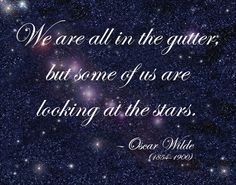
But—shock, surprise!—I don’t want to sleep in the gutter.
I really, really don’t want to sleep in the gutter. I hesitate to admit this because I think things never turn out as badly as I’m afraid they will, and so probably sleeping in the gutter would be fine. But I am, in fact, actively afraid of sleeping in the gutter. I’m afraid I’ll get in trouble. I always seem to be getting in trouble. I’m afraid it will be dirty—not good, outdoorsy dirty, but disgusting, city dirty. I’m afraid of people who find other people sleeping in gutters and see opportunity. I’m afraid of being afraid and thereby creating the world of scarcity in which Hobbes was right and I better be grateful for the Leviathan that protects my property rights sometimes, or I’m gonna get the anarchy in which I can’t protect them myself.
I’m also afraid to give it a go with a rented art studio space I surreptitiously sleep in while letting myself get back into my painting flow state groove where I inexplicably want to be (inexplicable London, inexplicable painting), and giving the art ebusiness thing—that sort-of worked in May, when I sold nine paintings in four weeks via Etsy from Boston—another go, from London. But I don’t seem to have a better idea. I’m an artist and I need to make art. So I’ll do that now and see what happens.
Thou Shalt Make Art (and Other Messes)
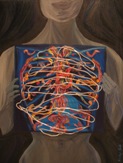
Slowly, a subconscious synthesis grows. I see pictures. I draw them. I paint them. I write. A lot. I sing. Softly. Sometimes, I say a bit. Then a bit more. Until, when I try to talk about what I’m doing next, instead of looking puzzled—people start to get excited, animated, smile or look dumbfounded—and tell me they think it’s a great idea. This happened with my dissertation. (Some of the oil paintings—and the eventual haiku summary—ended up in the UVA Library copy, available on my LinkedIn profile. Some are on display in that same library.) I like to think it’s happening again now.
But I’m still not sure I know what my next project is well enough to have these very conversations. Which is exactly when they’re most important. So I‘m having lots of them at the Centre for Investigative Journalism Summer 2015 conference. I found out about the conference the night before it started, at a Cryptoparty before a poetry, more poetry, and music open mic. God bless London.
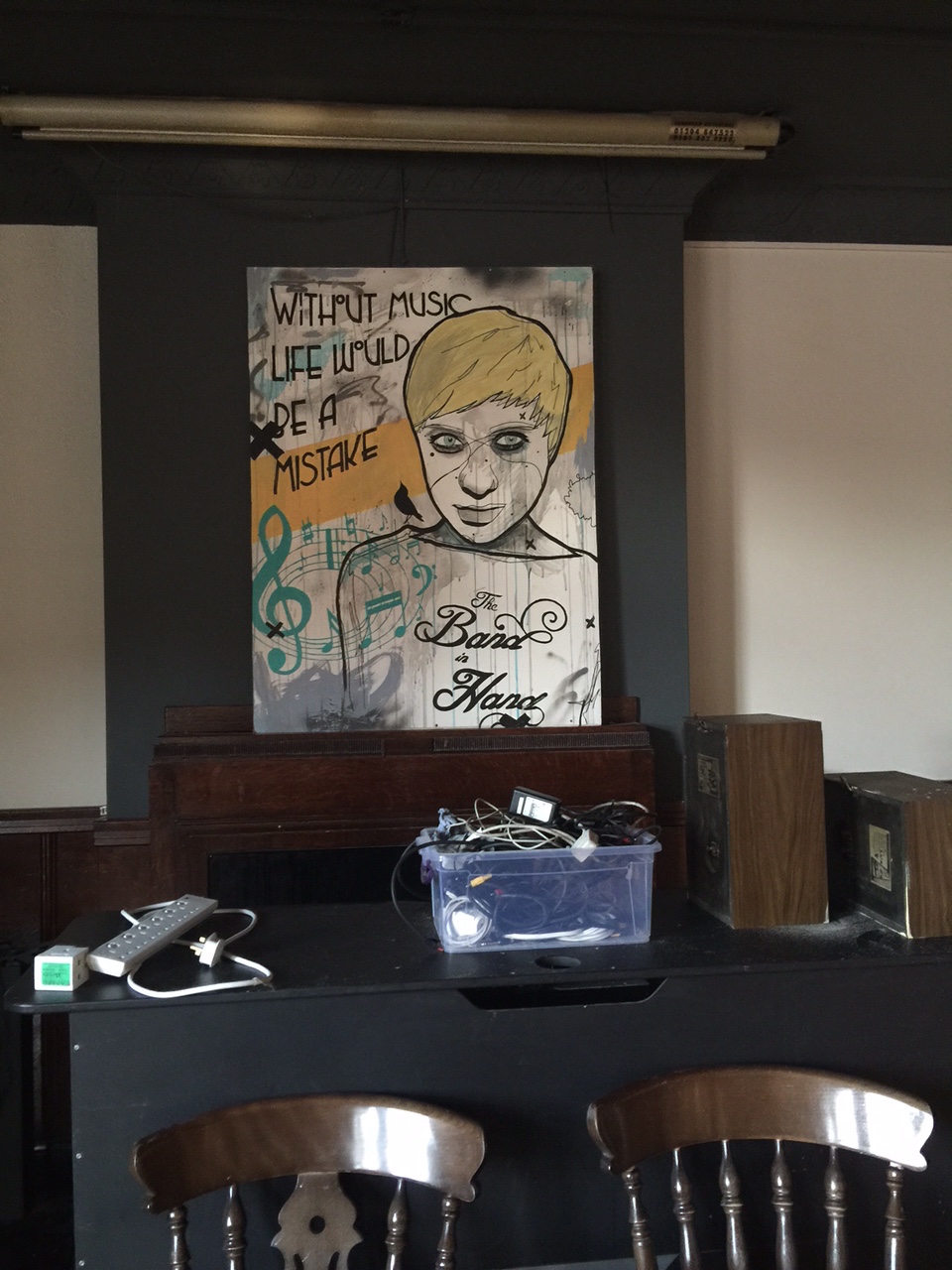
That was a very fast and indirect plug for my first original poetry performance—which was not much of a performance—and my singing, which was neither properly prepared nor recorded full through. I’ll have to critique and take down those videos soon. I really just made them to get a baseline to get better. Hard but essential to look at oneself with that kind of hopeful detachment. This is a tangent.
Wandering Not Lost
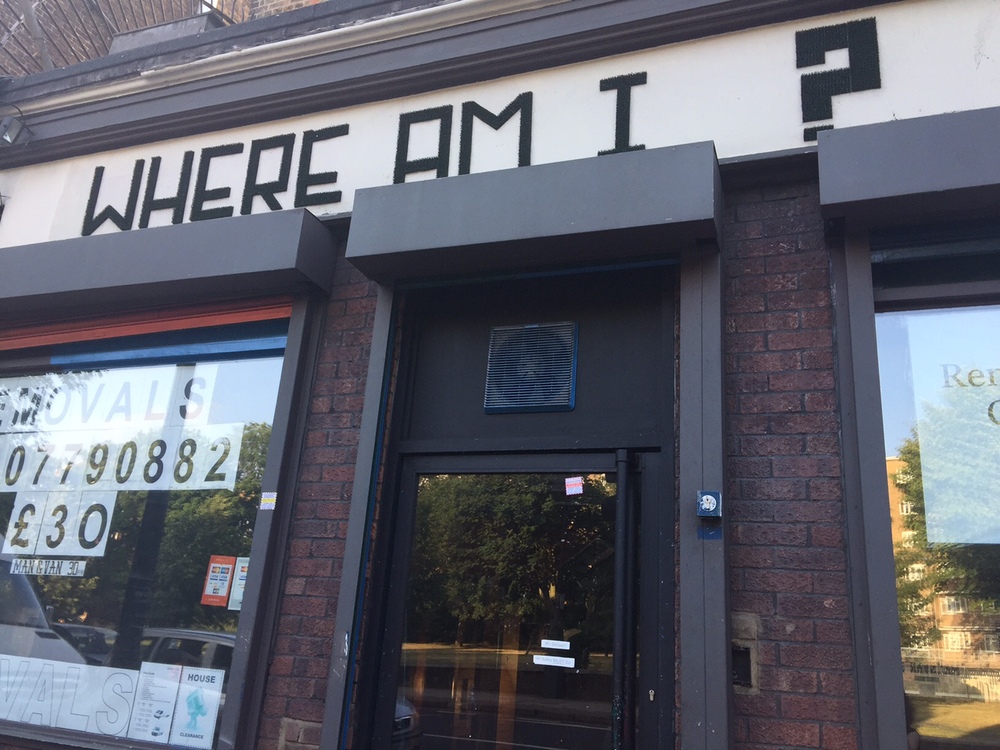
But not.
It’s all about showing up to the process where you are, so you can take it forward. Identifying and expression desires in order to better hone them into timetabled goals with means-specific plans to try, adapt, try again. And yet, needing to hone the same desires it’s a struggle just to express. The freedom of expression. The constriction of honing and concrete planning. Big soul. Small steps. Big ideas. Small voice. The tension.
Sometimes, talking with the right people—usually accidentally, through the magic of elective affinities, positive selective attention, and dumb luck—eases that tension. For example, talking with Charlie Glass helped me see that I have a very specific public art installation idea he and his collaborators at Anything to Say might be interested in working with me on, or know someone who is.
Interactive Public Art Installation Idea
“They suddenly recognize that God is a living, personal presence, not a piece of chiseled stone. And when God is personally present, a living Spirit, that old, constricting legislation is recognized as obsolete. We’re free of it!”—2 Corinthians 3:17, MSG
“Thou Shalt” is a sculpture highlighting the power of positive selective attention and the conceptual linkages between freedom of conscience and freedom of expression. It’s a huge stone tablet that looks like one of the contentious Ten Commandments monuments in the US. But instead of Thou Shalt Nots, the tablet is full of Thou Shalts. And the spaces after the 10 Thou Shalts are blank. The tablet is made of or those spaces are painted with a chalkboard material, and chalk is available. So people can interact with the installation in celebration of their dreams.
Technology Combats Racial Bias in Diagnosis Idea
And then sometimes, I think about how I still haven’t written an executive summary of how my dissertation research showed medical diagnosis decision support tools might help combat racial bias in diagnosis. This for a company that gave me free research access to their amazing tool. A tool I found playing around on a computer in the med school library when my mom was really sick. A tool that helped me diagnose her (insofar as a teenager can do that), look up patient support groups for her rare disease, and find a doctor they recommended who could stabilize her.
Too Many Ideas Idea
This might seem like a problem of rational prioritization in the sense of needing to manage time better, do more work and less play, or otherwise act like a grown-up instead of not knowing or caring where I’m sleeping tonight. But it’s actually another Mona Lisa smile problem in cognitive terms.
Pascal and other creative problem-solvers found that working on different problems in different places from their priority problems in familiar places helped them make breakthrough connections. I didn’t even realize the potential importance of some of my dissertation research findings until now, years after I collected the medical diagnosis decision support tool data. Only now would talking with the right folks help me summarize it in a way that might be useful. Now I have to think who the right folks are, make the findings accessible to them in haiku summary form, and reshape the write-up for the right audience(s) if I want to share it with the world. Seems kinda important. But I have lots of other important stuff to do. And then the occasional urgent issue to address, like where I’m sleeping any given night.
Attention
Everyone makes attentional choices all the time. It’s the only way we make sense of the world, is to pick out a signal in the noise. I keep talking, thinking, and writing about this, because learning how to do it better has changed my life. It’s like I finally realized I’m a radio. I can tune myself to the signal I want to pick out in the noise. The tuning is the ideas in my head. The noise is the whole, wide world of stimuli and possibilities. And the signal is what I pick out through selective attention—how my ideas shape my perceptions and behaviors, and in turn reality, creating self-fulfilling prophecies.
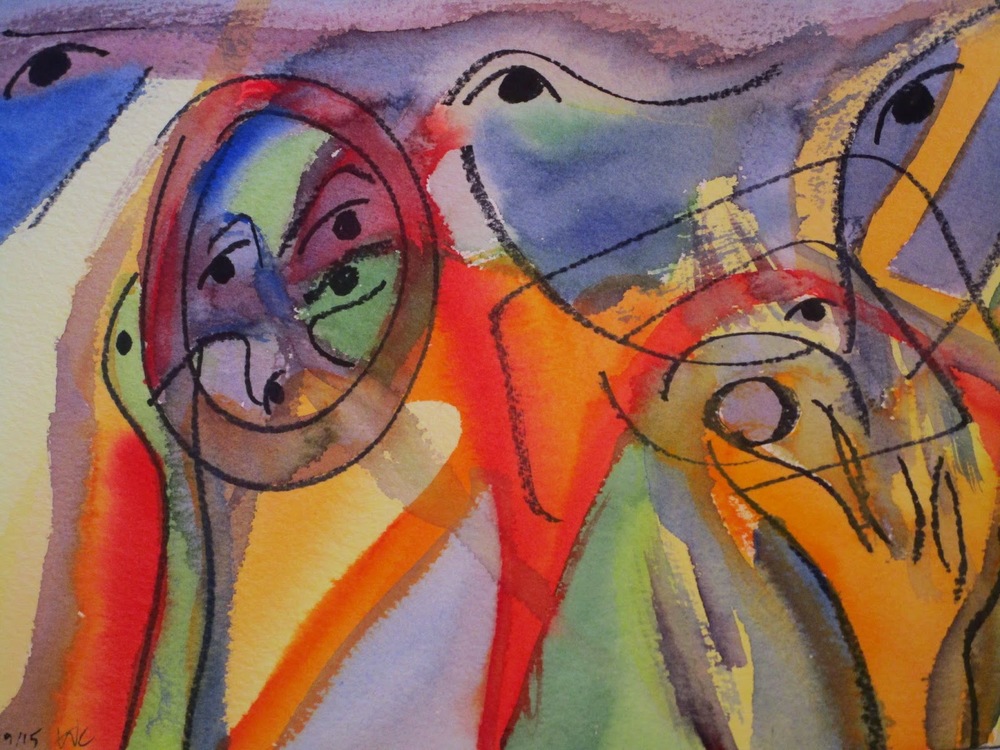
So. Here is one step forward towards a written articulation of my next priority project.
Portraits of Peace: Celebrating Life in the Global Refugee Crisis
In the global refugee crisis of over 50 million persons displaced due to political violence or instability—the largest number since World War II—people are starting over. They’re choosing to live not like refugees—unmoored people who have lost everything, victims of circumstance, lucky people in an unlucky world—but like ordinary people with extraordinary hopes and dreams. These are their stories.
This is where I launch into sample stories the portfolio of samples of Portraits of Peace that I haven’t created yet.
These are the things of value the series offers:
– Meta: Positive selective attention focus. Drawing attentional resources to a negative crisis in a positive way, so people don’t look away, have empathy fatigue, or get discouraged. Instead they can learn more about the crisis while gaining hope.
– Goods: Portraits of refugees. I’ve exhibited paintings in dozens of venues. I want to be drawing people’s souls shining through their faces, painting the spirit of places where people find peace in motion, adventure, adaptation.
– Services: Teaching refugees. I’ve taught children’s dance, art, drama, music, reading, and more. Also college-level political theory, public opinion, political behavior. It’s not my calling, but I could probably also be of service in this way in the course of traveling around learning from refugees. Learning should always be reciprocal… I have a lot to learn, and I have a lot I can teach, too. The tough part getting that cycle started is figuring out how to do it within an art-for-world-peace business plan that works towards longer-term goals.
Here is why I love this idea: it combines my hunger to make art and travel with my big idea that we can make world peace through art. It (in theory) gets me talking with lots of inspiring people, sharing their stories. And it uses all the skills I have plus a bunch I don’t have yet. So in theory, it gives me a way to be of service while making art, learn while helping learn, and become a successful entrepreneur, making my own dreams come true, while focusing attention on how other people—under the most challenging circumstances—are also successful entrepreneurs.
What Is This All About Now?
Here are five totally different ways to frame Portraits of Peace in elevator pitch parlance:
1. It’s a project about success. I’m the Napoleon Hill of refugee storytelling—studying, making art, and writing about how some of the people with the least material and social network resources in the world are still becoming successful as artists, entrepreneurs, dream-makers.
2. It’s a project about hope. I’m applying what we know from political philosophy and cognitive psychology about the power of positive selective attention (a.k.a. setting the terms of the discourse) to help draw more and broader public attention to the global refugee crisis while making people’s lives better instead of ticking off empathy fatigue.
3. It’s a project about truth. I fit in at the Centre for Investigative Journalism because people here understand and celebrate truth-seekers. (You don’t get much more serious about truth-seeking than doing a dissertation on lie detection and changing your name to Vera.) But sometimes, the under- or untold stories are the positive ones. The places you have to go where no one else is going, the people you have to listen to who have no one else to tell their stories—they’re not always the darkest possible places or people. Shining a light in the darkness can also mean walking in the light.
4. It’s a project about faith. You have to believe we live in a world of abundance and not scarcity (though it can be both), that people are basically good and not evil (though we can be both), and that you yourself are basically improving (learning not static) in order to make reality from ideas. To know your dreams and actualize them, or self-actualize while trying. That’s about faith, secular or religious.
5. Above all, it’s a project about peace. Tim O’Brien and others have written about the ambiguity of true war stories. The pain and suffering. Not enough attention in and around war zones gets paid to the everyday, the basic human desires and dreams that people still strive for and often attain. We make peace in ourselves under a range of conditions. Learning from people who make peace in themselves and their communities despite facing violence helps us learn about the shared human resilience that is so much bigger than the boxes of prejudice, deprivation, and other constraints. We don’t actually know as much as we could about resilience. There’s a lot of funding for and attention to studying depression and trauma, and less for positive psychology and resilience. Pbbbbbbbbbb I say. (Ok, so the elevator pitches need work.)
Is This the One Thing?
If this is the one thing, I have to do it first and pitch it second. If this is the one thing, I have to plan where I’m going when (sort-of). If this is the one thing, I have to be absolutely certain it is the one thing before I can do it. Unless I have to try it first to know.
I have faith in my ability to know my own desires, hone them into timetabled goals, make means-specific plans to achieve those goals, try to implement those plans, adapt, try again, and again, and again… And succeed. But is this the one thing I’m doing that with next?
I could chart an argument for yes, no, and I don’t know. But ultimately that kind of analysis doesn’t tend to help me as much as stopping long enough to listen to my heart. Trying new and different things to get out of my own head. Being in my body where I can feel the intelligence in my own blood and guts, the knowledge before words. And yet also being detached enough to see myself, not as I am when I look critically, analytically, to see how I can be better. But I still don’t have a recipe for doing that. Other than talking with people before I’m ready. Better a bit of sound and fury (and mess) than unproductive silence—although a girl’s got rights.
Painting on the Thames
This analysis paralysis is dumb. I’m an artist. I need to make art. All I want is to paint, I thought.
Yet! I’ve never painted in public around other people. Artists have to make our work, which can start out intensely private—especially when one feels the honing of the craft to be early and lacking—public. We have to do that to get recognition of value, to make it work. We have to do that to get feedback to increase the value, to make it better. A lot of artists, like me, don’t like to do it and then complain that we can’t make a living doing it. That’s a self-fulfilling prophecy.
So I bought canvas and acrylics and set up on the Thames yesterday.
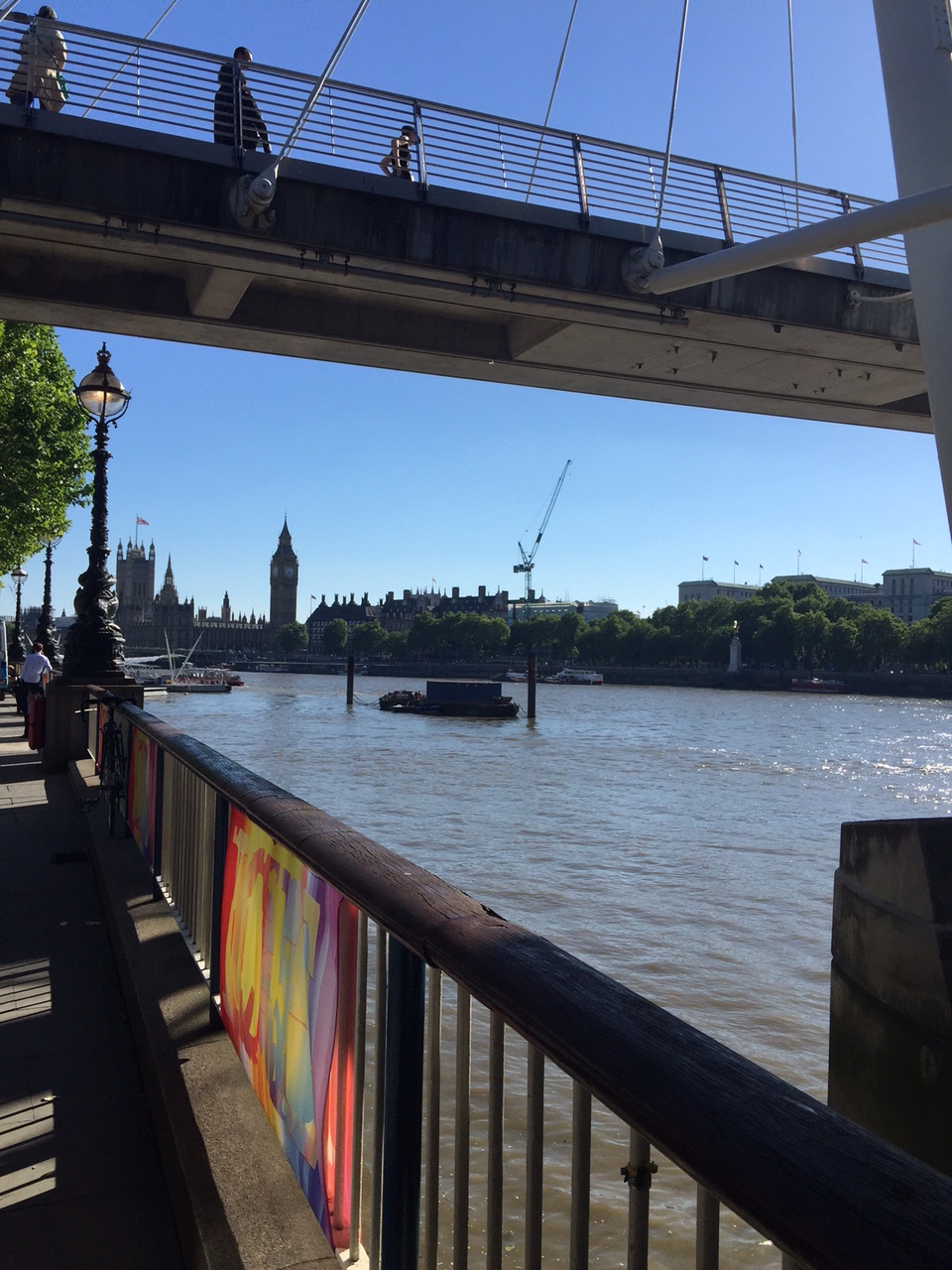
Passersby mostly ignored me as I grooved to a nearby busker’s lovely sound. It was like being invisible under a bridge with the sounds of water and music, the London skyline, and a vibrant market nearby at the South Bank summer Festival of Love.
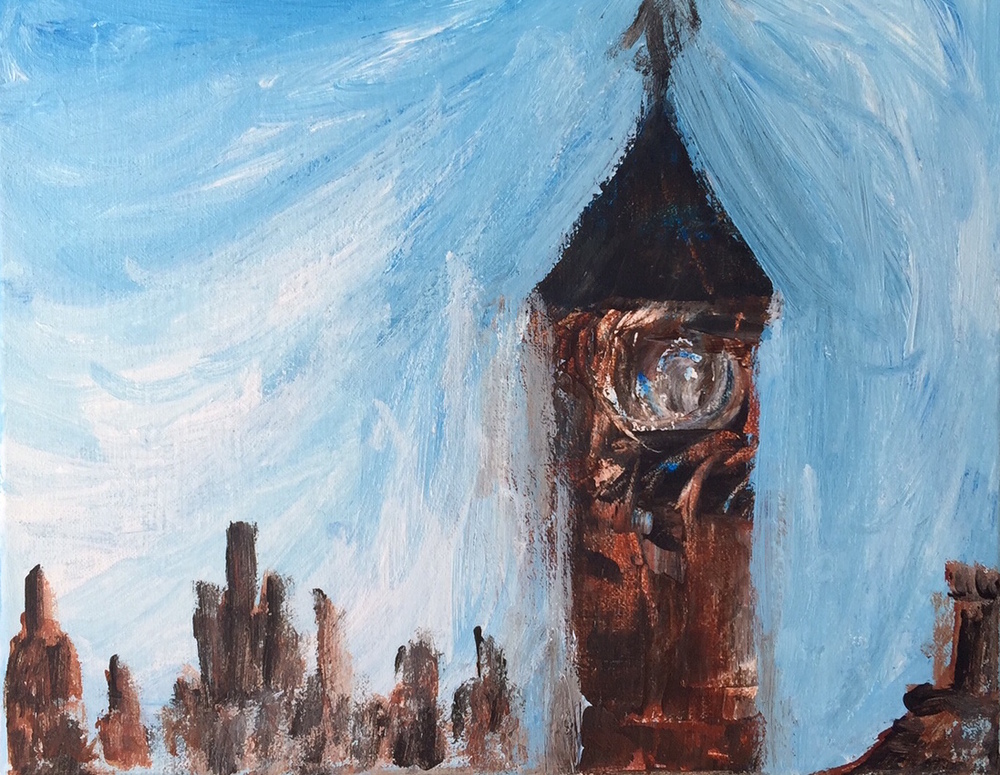
Until I had made a few paintings, and then people started to notice.
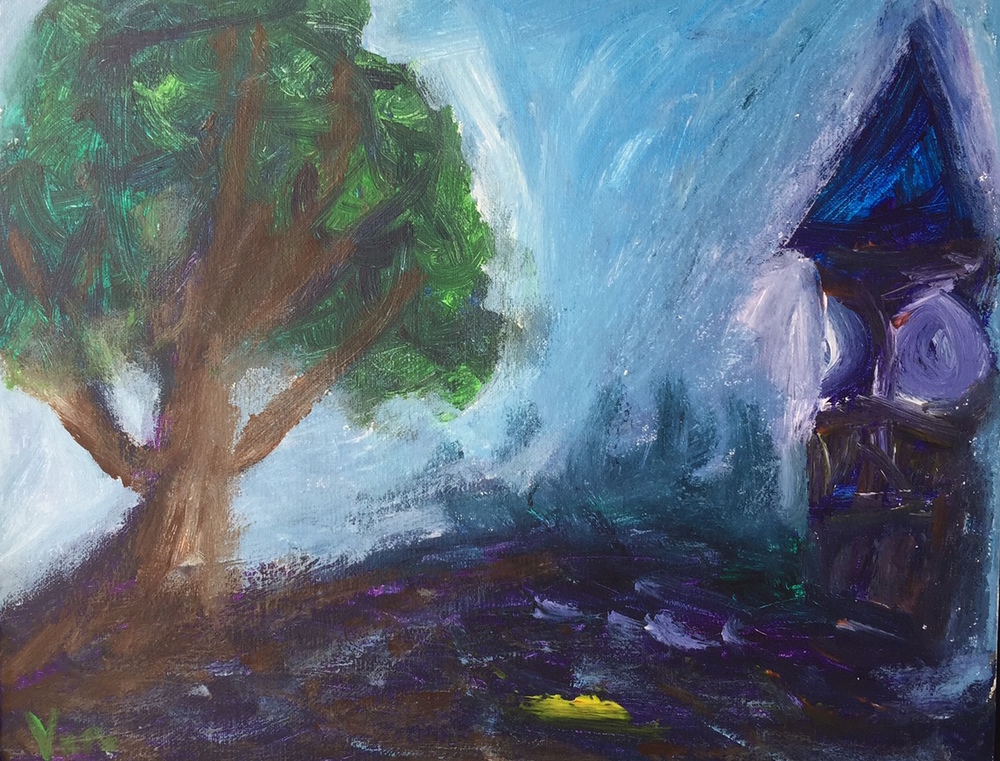
“Are you selling those? Where did you train?” a group of passing art students wanted to know.
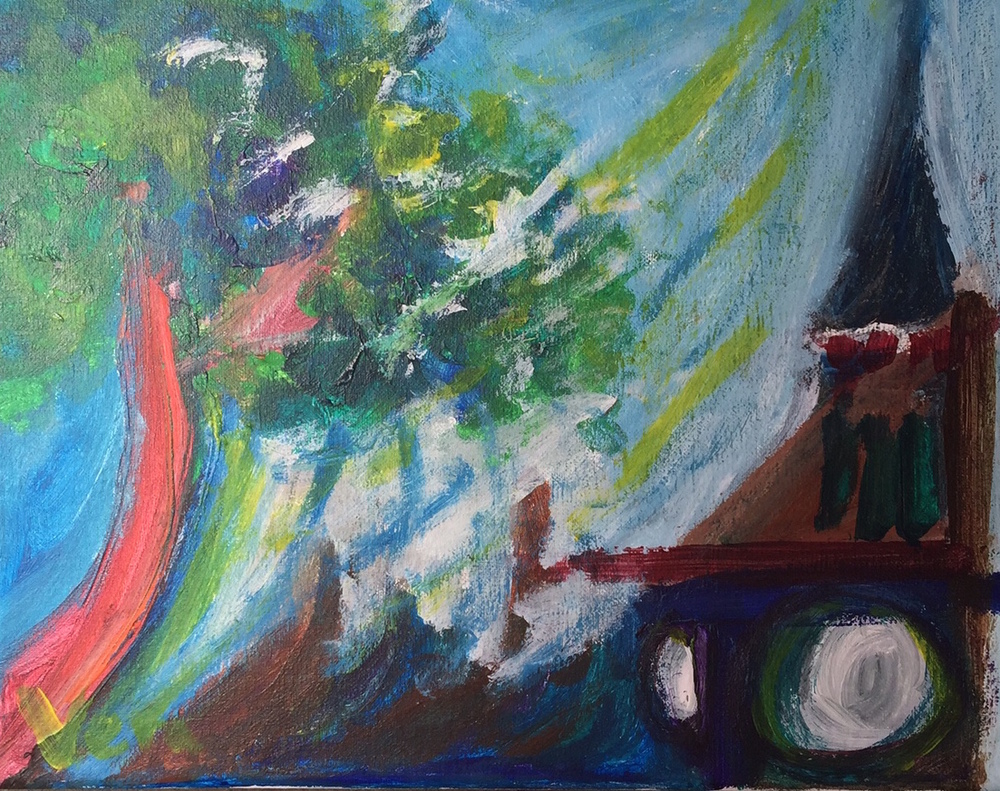
“I wish I could paint,” a man with a beer can lamented, too close to my ear.
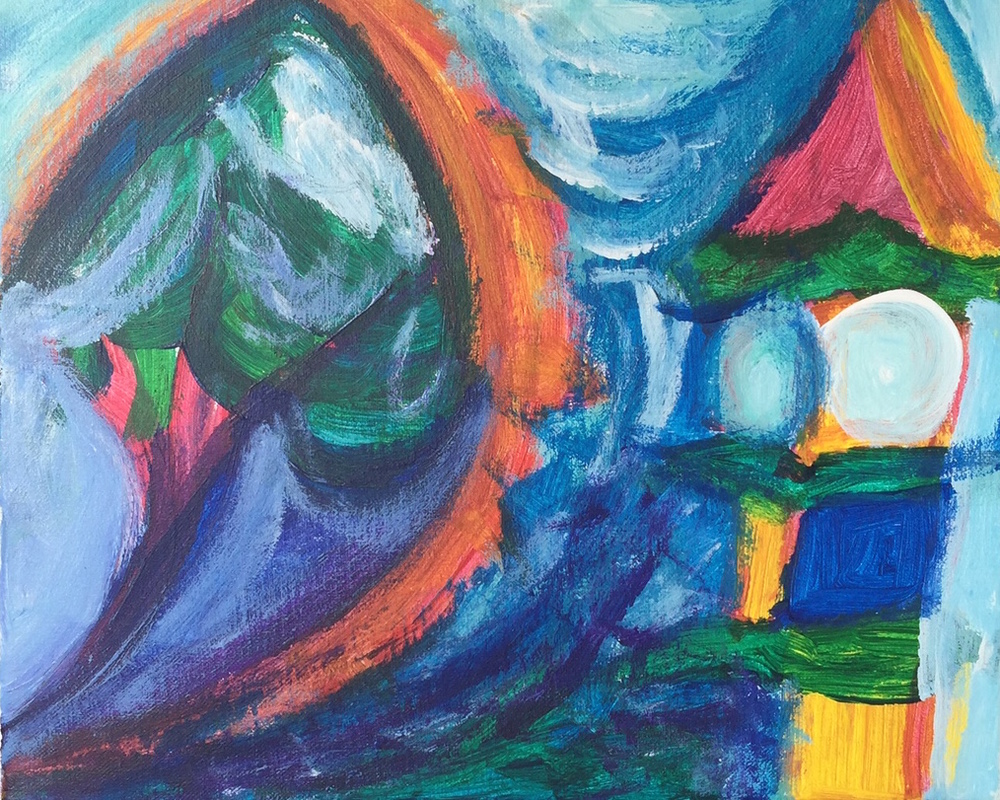
“Would you paint our caravan? I’ll give you 15 quid and a coffee” another dude working the bank offered. But I was already out of canvas.
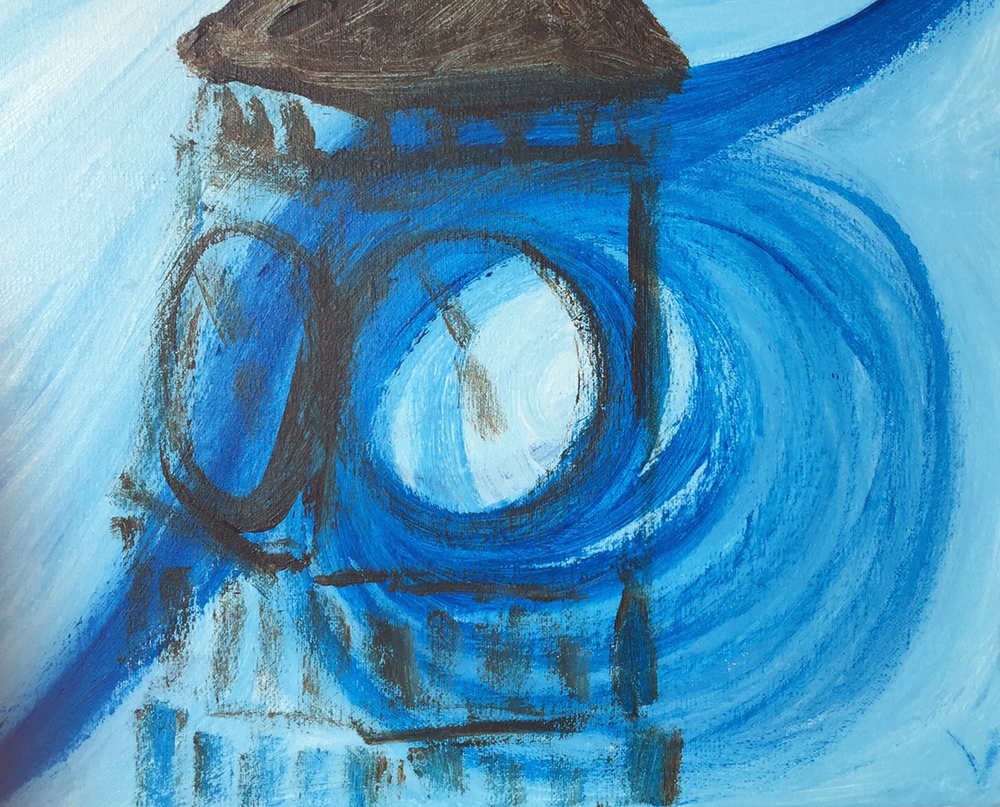
“Are those children’s paintings?” a passersby asked, earnestly.
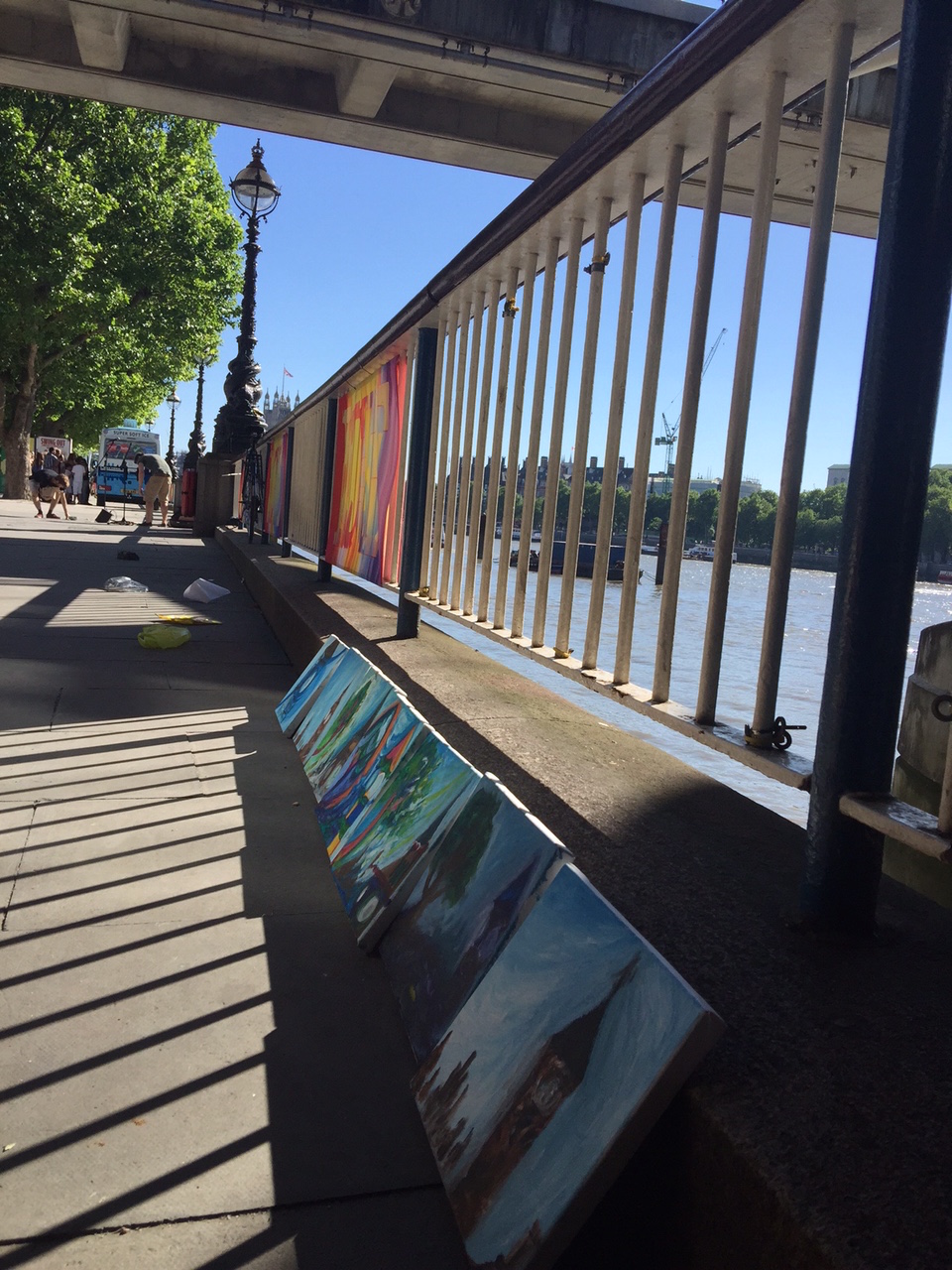
“Are you selling those? Do you know that’s illegal?” plainclothes private security smiled.
And so my first-ever public painting experiment concluded with no sales and a private lesson in London public art laws.
London Public Art Laws
This was useful as an information-gathering exchange—if this is right. And the nice plainclothes security men were very nice.
Performance art in London: Ok if it’s music on public land, need permission on private land.
Art as goods selling in London: That’s peddling, and you need a permit for it on public or private land.
How do you know what’s public or private land? Ask other artists. Or set up and see if you get in trouble.
How do you groove when you’re being judged? Man (or woman) up and do it, because that’s how artists survive. Or so I gather.
And how do you distinguish between art as service or performance (painting, singing) and art as good (selling the paintings you just made, or the CD of the songs you’re singing)?
You play nice with security and don’t look like a Romanian gang member, because that’s who the legal regime surrounding public art in London is really designed to keep off various turf.
Because like in Mexico City, there are formal and informal systems at work here. Mexican police issue informal tolerancîa for people who don’t have the right permeso but aren’t causing trouble. When they feel like it. London private security tell you where artists go to break the law to not get caught… Making art in public. Because the laws at work deterring commerce and public art creation here aren’t really intended to deter commerce and public art creation. They’re really intended to deter crime and uphold property owners’ land rights.
This still puts a damper on my desire to go test public art-making modes. It’s hard enough to figure out how to market poetry as a service and a good without worrying I’m gonna draw heat offering streetcorner haiku summaries.
Does that work? Can a poet make a living doing that? Is that a thing?
Probably it doesn’t work. But I don’t know, I haven’t tried.
Do I want to risk hundreds of pounds of fine or detention finding out?
Not really. And I shouldn’t tempt fate thinking about the pro’s of getting first-hand experiences of different countries’ justice systems.
Other Experiments
Most of the last few nights, I stayed in a mixed room at a hostel. I’ve walked out of those before, but this one felt safe. Although it wasn’t what I booked, and I got the hostel to give me money back on that count.
Last night was my first solo Couchsurfing night. Dinner was amazing—we all tried rabbit for the first time (yum). The young married couple I’m staying with are incredibly kind, creative, well-traveled, positive. Normal, vibrant people giving back to other normal, vibrant people in the share economy—for community, not for profit.
Their lovely mother/in-law told me about the amazing Indian food and cheap labor she misses, and we talked about how wonderful the public transportation and clean air are here. And came up with a hilariously perfect description of what’s different about the West, the infrastructure/community trust trade-off: “nice, neat, no one to talk to.” I like to think the share economy movement is changing that. Art changes that. Deciding that we can change that, changes that.
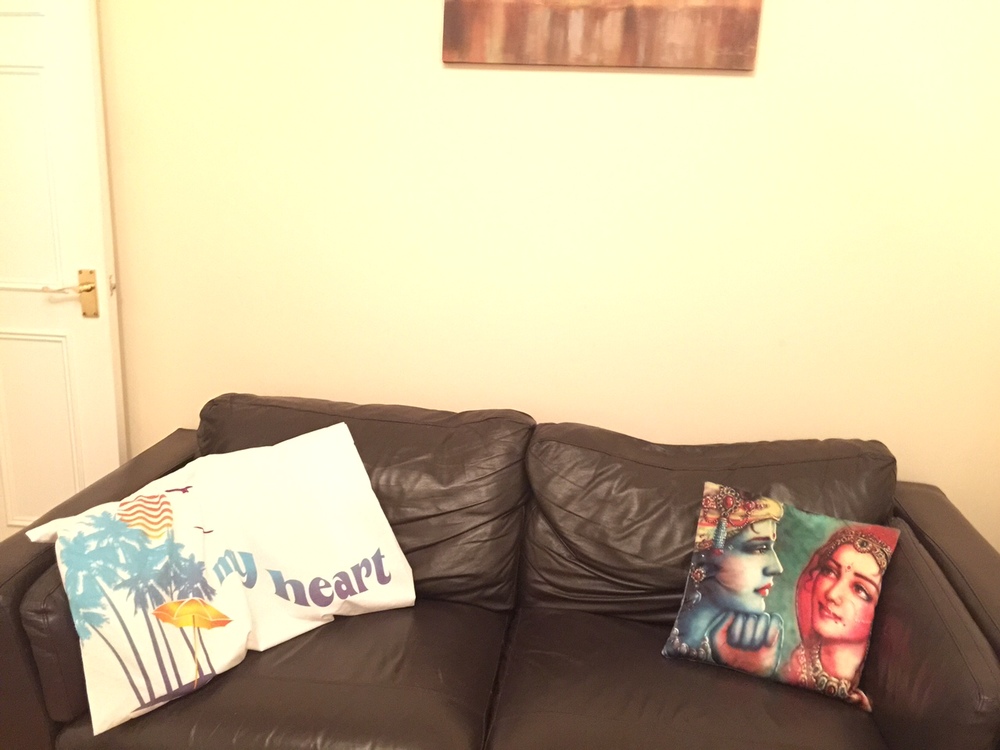
This morning I attended an amazing Daybreaker (drug/drinking-free morning rave)—another first—with some fellow Google London Campus start-up starting-up folks. It was so good to be among fellow-feeling freaks who can’t sit still but don’t need another high. It made me remember how much I loved teaching children’s ballet, jazz, and storytelling through dance a few lifetimes ago. Like I need another dream floating around my head. But I could get used to early morning dance parties.
Tonight, another new party of a different kind—Cryptoparty (hacktivist computer security class) with fellow world-peace-through-art weirdos. Probably a good idea to know something about computer security if I’m going to keep trying to figure out how to defeat ISIS recruitment on social media with art and positive selective attention.
But in-between? I’m not sure what job to show up to next. I know social media is supposed to be business—all message, all the time—according to a lot of advice. But I have to write to synthesize information and figure out what I think, what’s next. Or even what the hell I did yesterday. So I rationalize: Part of my message is authenticity, and this is authentic. I’m learning. I’m showing up to not knowing a whole lot, especially (so it seems to me now) for a 30 year old with a Ph.D.
My public painting experiment was a success insofar as I made some paintings, had some nice conversations, and learned more about relevant laws and not so relevant but interesting public safety issues. But the art didn’t sell and I can’t do it again. I’m not sure where I can try more active, in-person market validation experiments in art-making, playing nice within the public-private, goods-services matrix.
Stuff I Could Try
In true recovering academic fashion, my priority is to prioritize. Continue honing my desires into concrete goals with attached timetables, and means-specific plans for achieving them. To this end, I’m continually trying to be better focused on one main thing. But to me the one thing is world peace through art, and that’s too broad. Too weird. Too meta. It’s an idea. A form. Not on this plane. That’s good in some ways (purpose) and bad in others (process).
In line with what I’ve been learning about the power of positive selective attention—butterflies are @#! everywhere if you are tuned into butterflies—what if luck and success work the same way???—I’m reorienting from this as a weakness I need to worry about fixing, to thinking of it in positive future ideational terms. I know my one thing that I’m about, that is the artistic process I show up to for hours every day, losing time, enjoying the flow state of that creative work-play.
If the one thing is painting, as it was in Boston in the fall and winter, when I filled my home studio with hundreds of oil paintings—then I need to be better about buying supplies, securing a studio space of some kind, getting on a UK online selling platform, finding art fairs here, pitching to galleries here, and hanging out with other painters here. I need to figure out how to make travel and oil painting as ecommerce compatible.
If the one thing is poetry, I need to be trying more market validation experiments that might build brand for my illustrated poetry book before self-publishing it and/or the illustrated children’s books series I’m developing. For example, I could set up shop in an art market or square where it’s legal—I’m not sure where, but can find out by trying and asking and trying again—and try selling 10 minute, 5 pound (buck) illustrated haiku summaries of people’s life stories or dreams. Try it in a few areas for a half a day each at this point today. I’m not ready—I don’t have a sign, I don’t know where to go, I don’t have a draft pitch written and memorized—but this is improv-able as a set of experiments to pull off today to learn more by doing.
If the one thing is performance-related—I’ve always loved reciting poetry and singing, but been afraid for a long time to make the imperfect noise—then there are fractal sets of next steps for being good/getting better at niches within that realm. And I keep experimenting with things in this vein even though I don’t feel like I’m that good at making noise. Plays and stand-up in grad school, a bit of singing my songs here and there, an invited open mic tomorrow where I can try combining original poetry recitation with my songs, in pairs of works on related concepts. And then rejoin the crowd to sketch the other performers and dance. Because I am a successful, focused, productive, jobbing artist. But art is not one thing.
